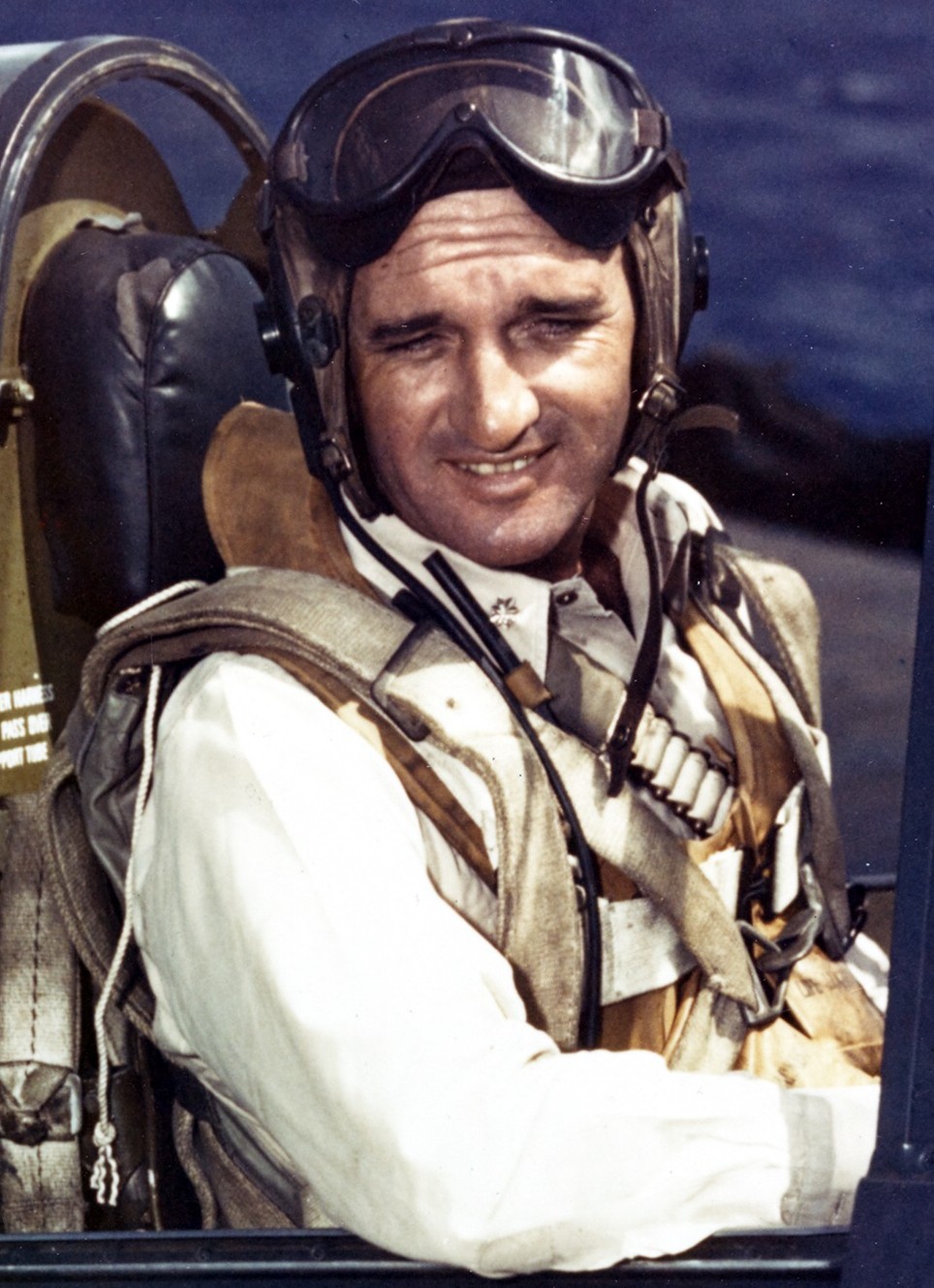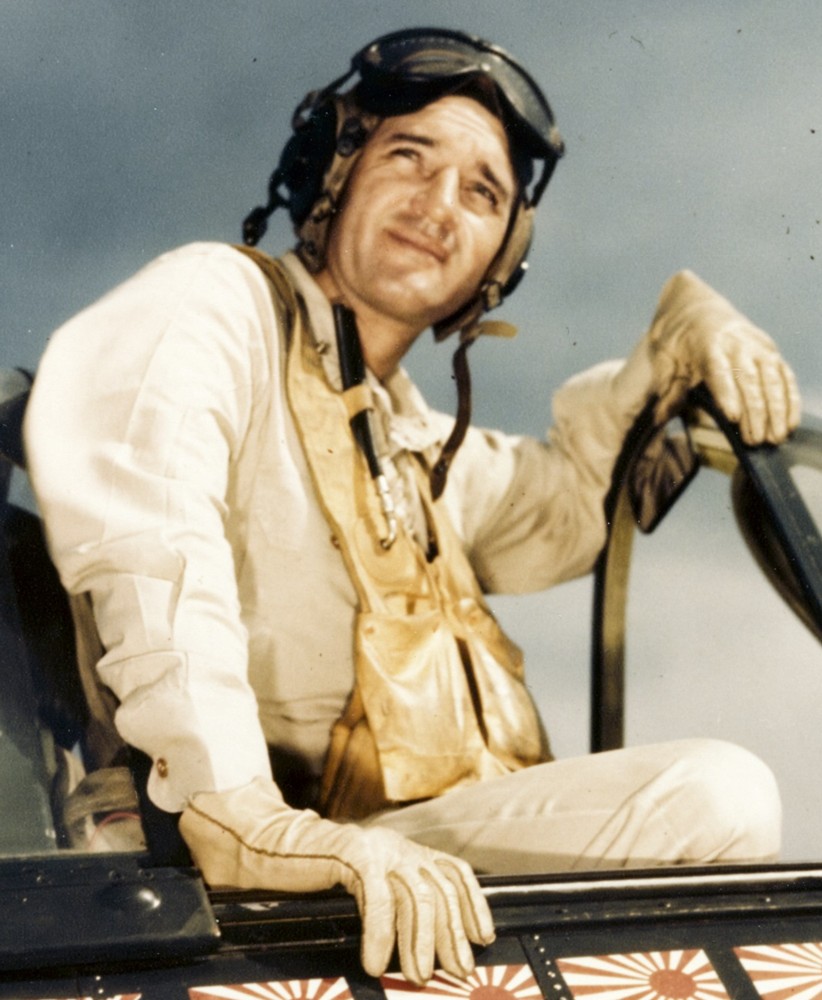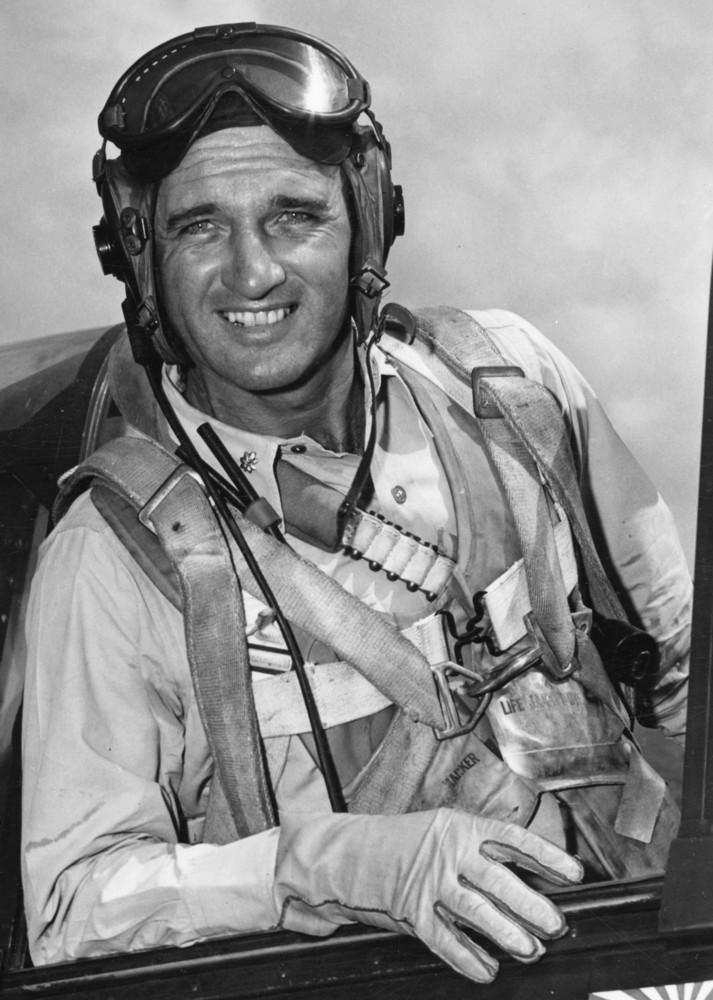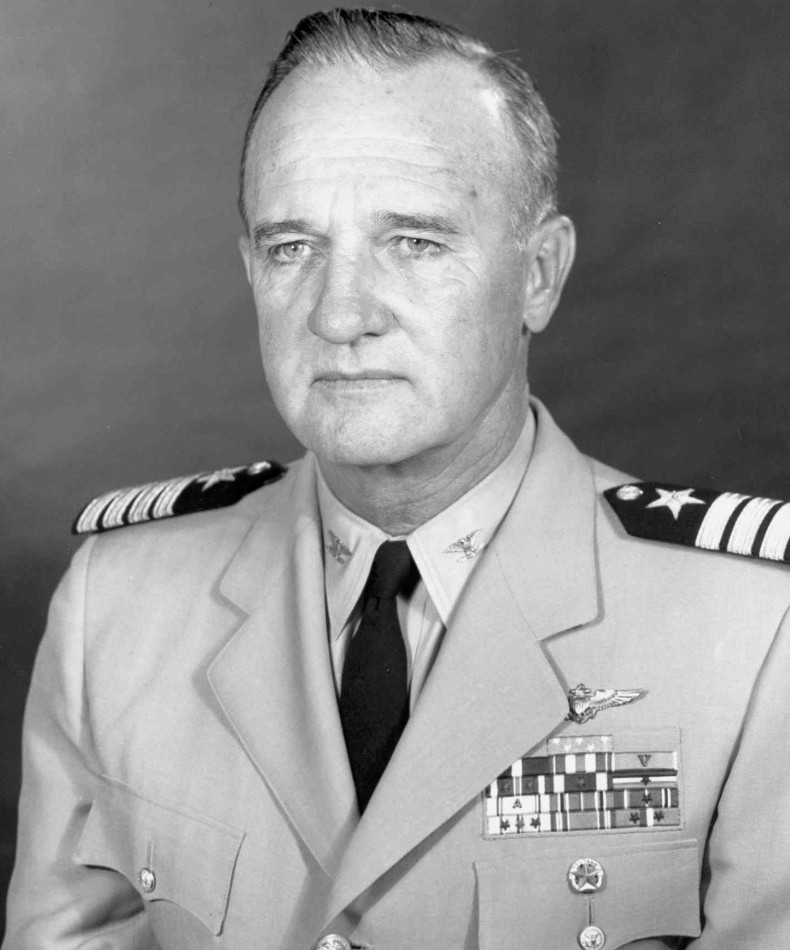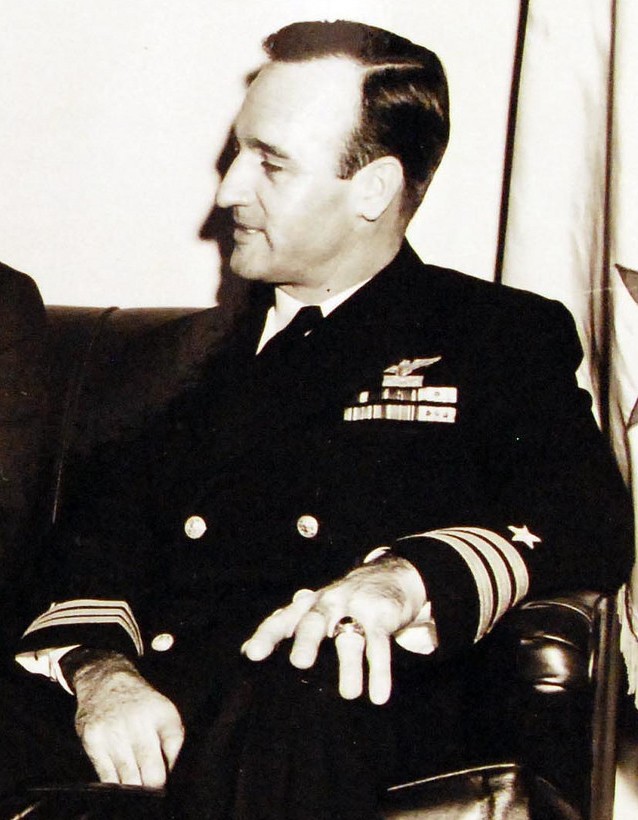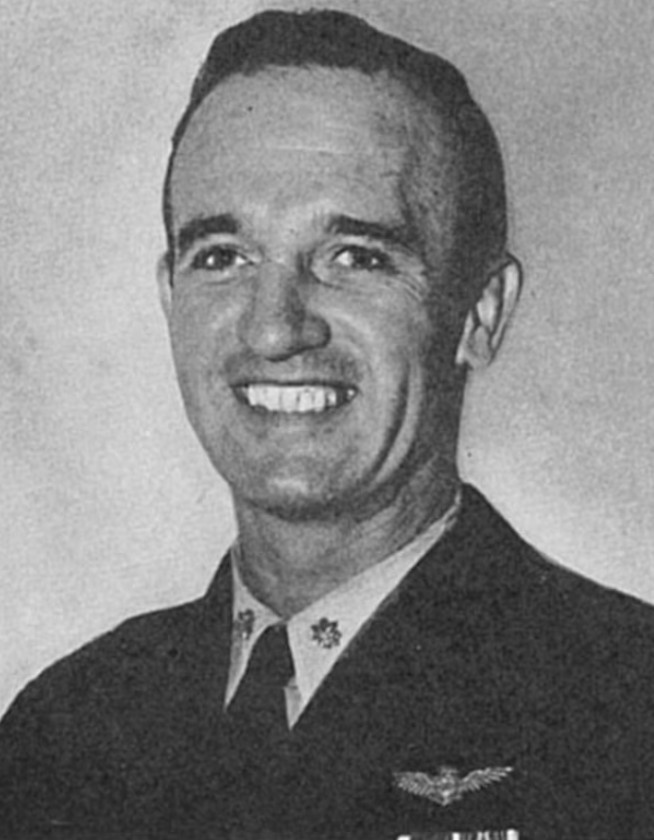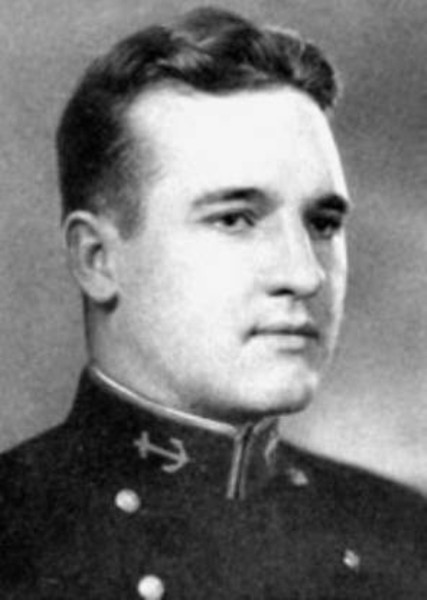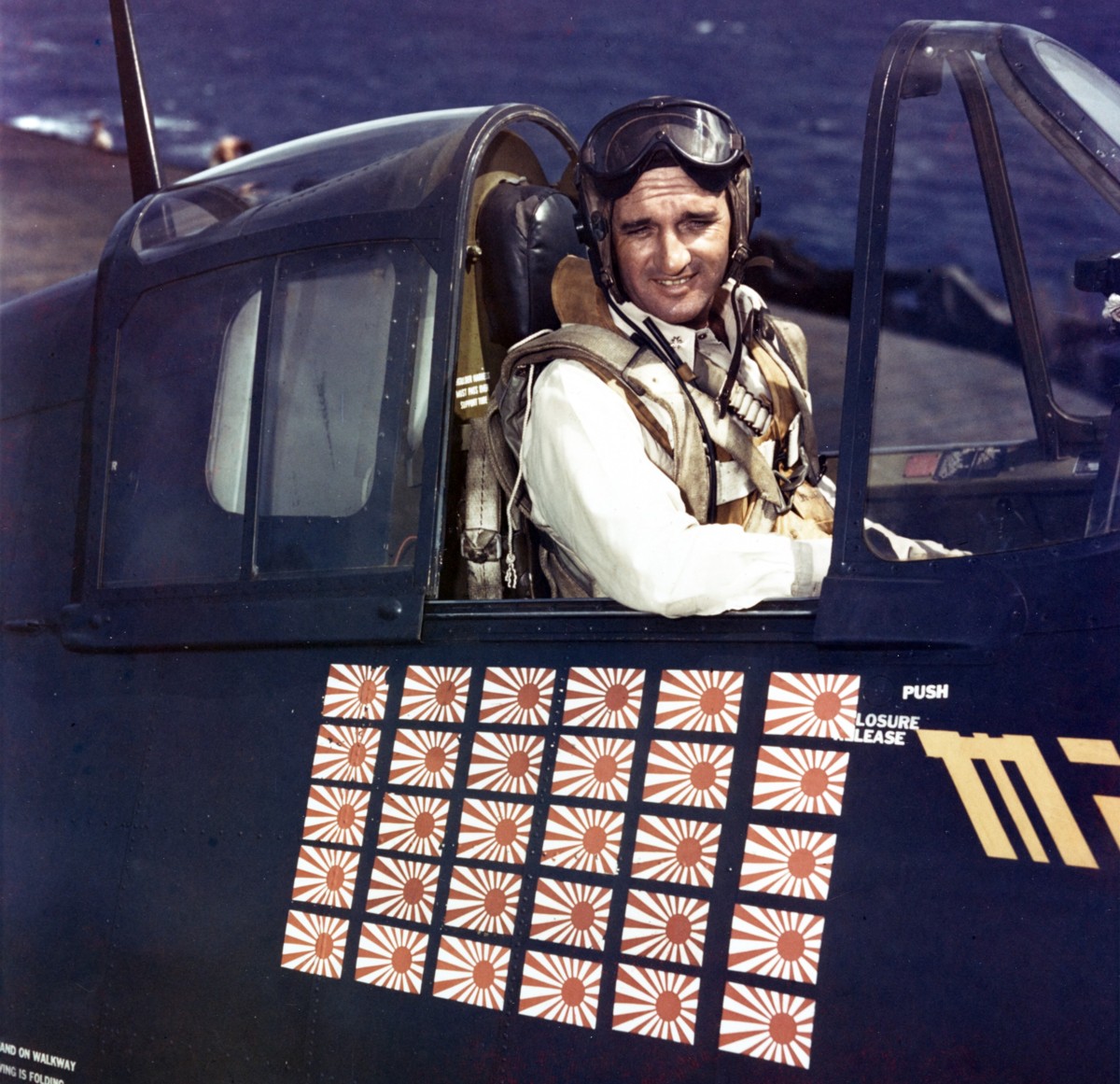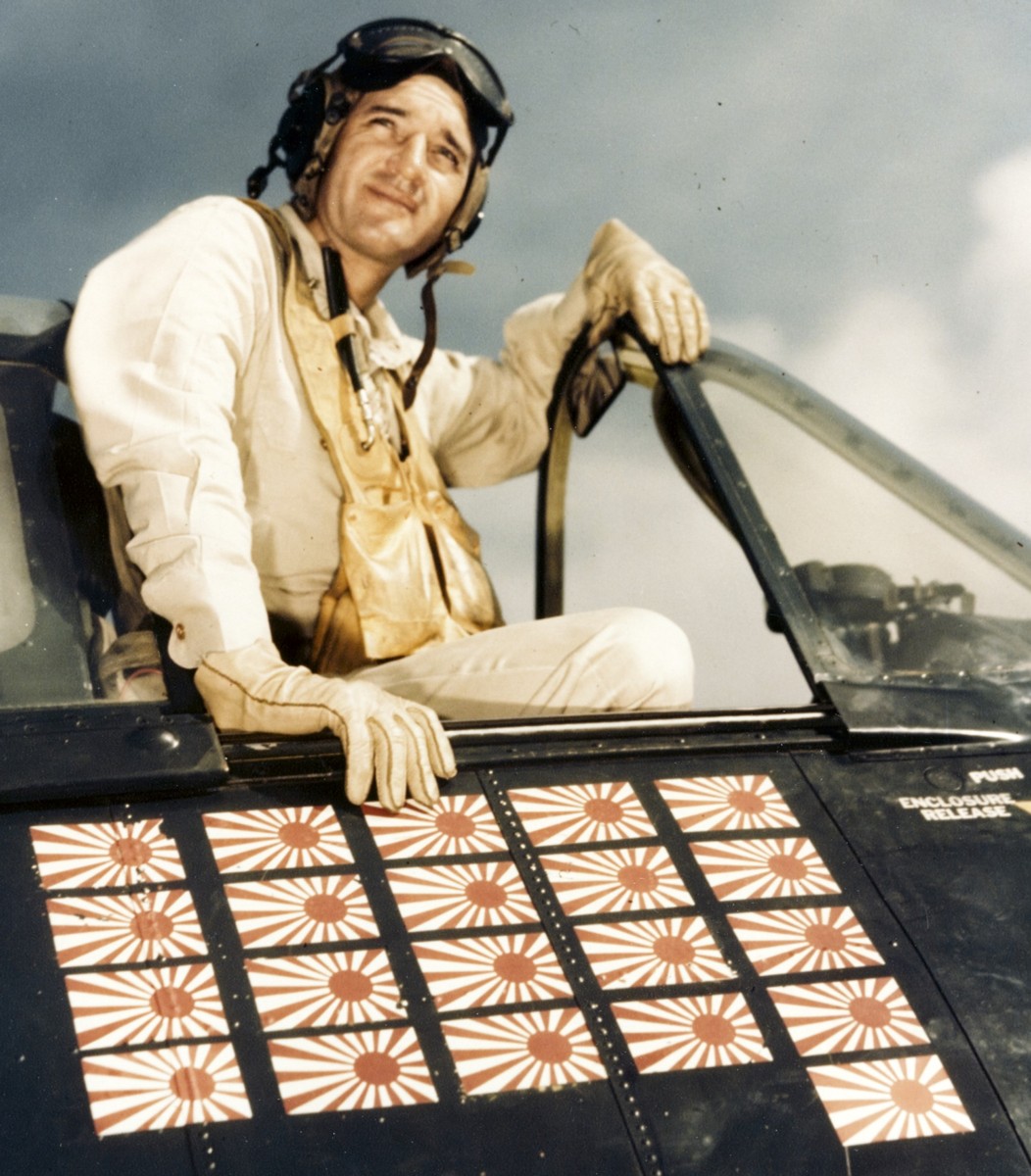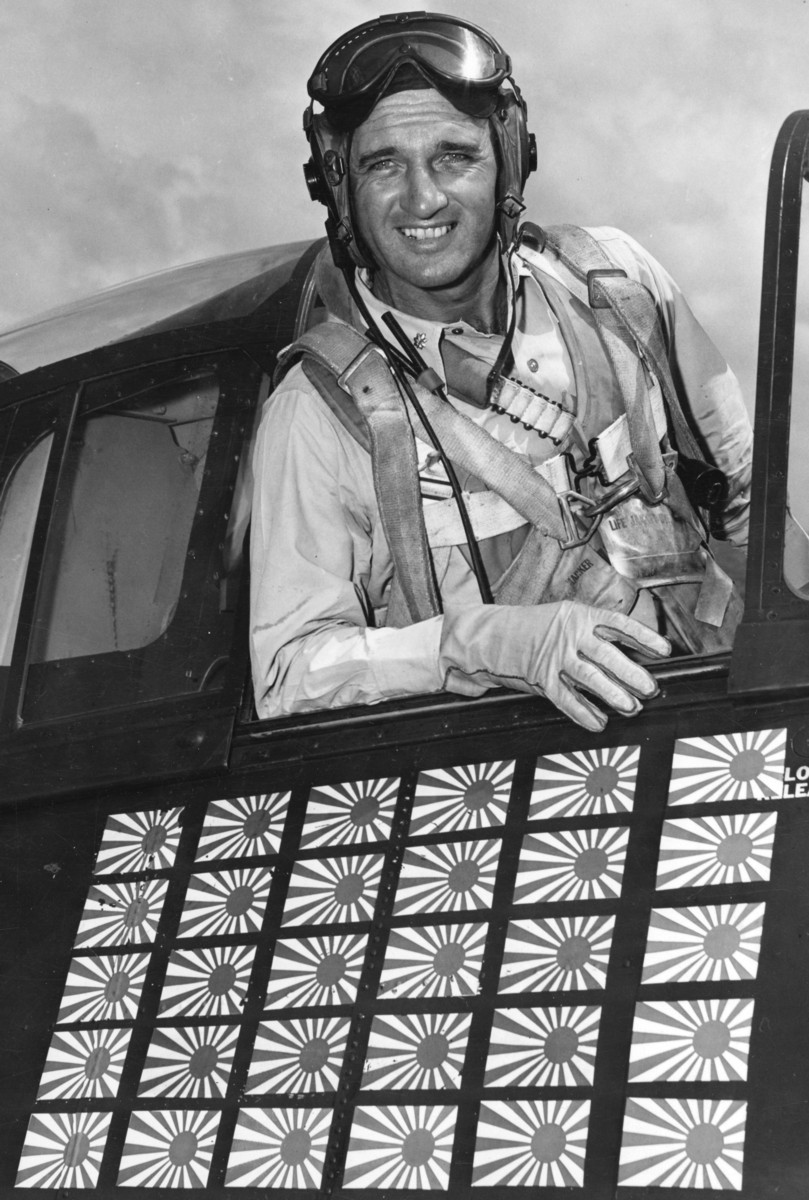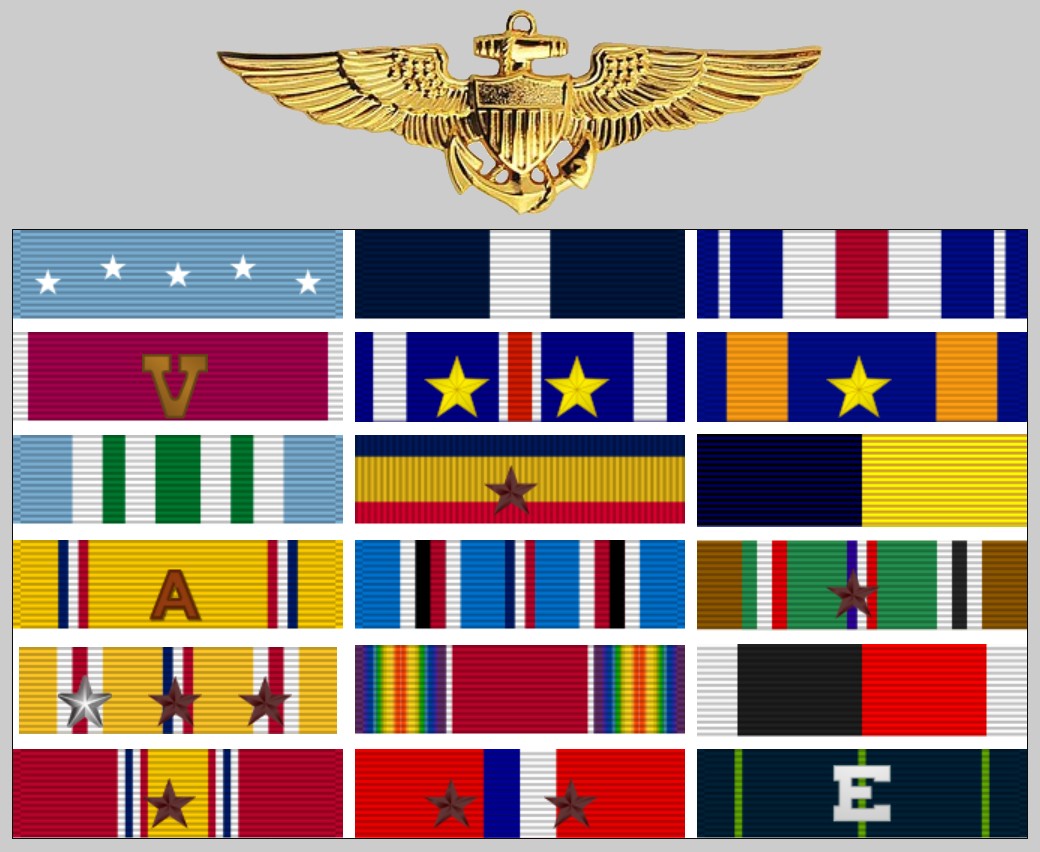 |
||
|
HOME
|
US Navy -
ships
|
US Navy - air
units
|
USMC - air
units
|
International
Navies
|
Weapon Systems
|
Special Reports |
||
|
US Navy - Guided Missile Destroyer DDG 85 - USS McCampbell |
||
|
||
| 09/24 | ||
|
Type, class:
Guided Missile Destroyer - DDG; Arleigh Burke class, Flight IIA Builder: General Dynamics Bath Iron Works, Bath, Maine, USA STATUS: Awarded: December 13, 1996 Laid down: July 15, 1999 Christened + Launched: July 2, 2000 Commissioned: August 17, 2002 IN SERVICE Homeport: forward deployed to Fleet Activities Yokosuka, Japan Namesake: Captain David S. McCampbell (1910-1996) Ships Motto: RELENTLESS IN BATTLE Technical Data: see: INFO > Arleigh Burke class Guided Missile Destroyer - DDG |
||
| images | ||
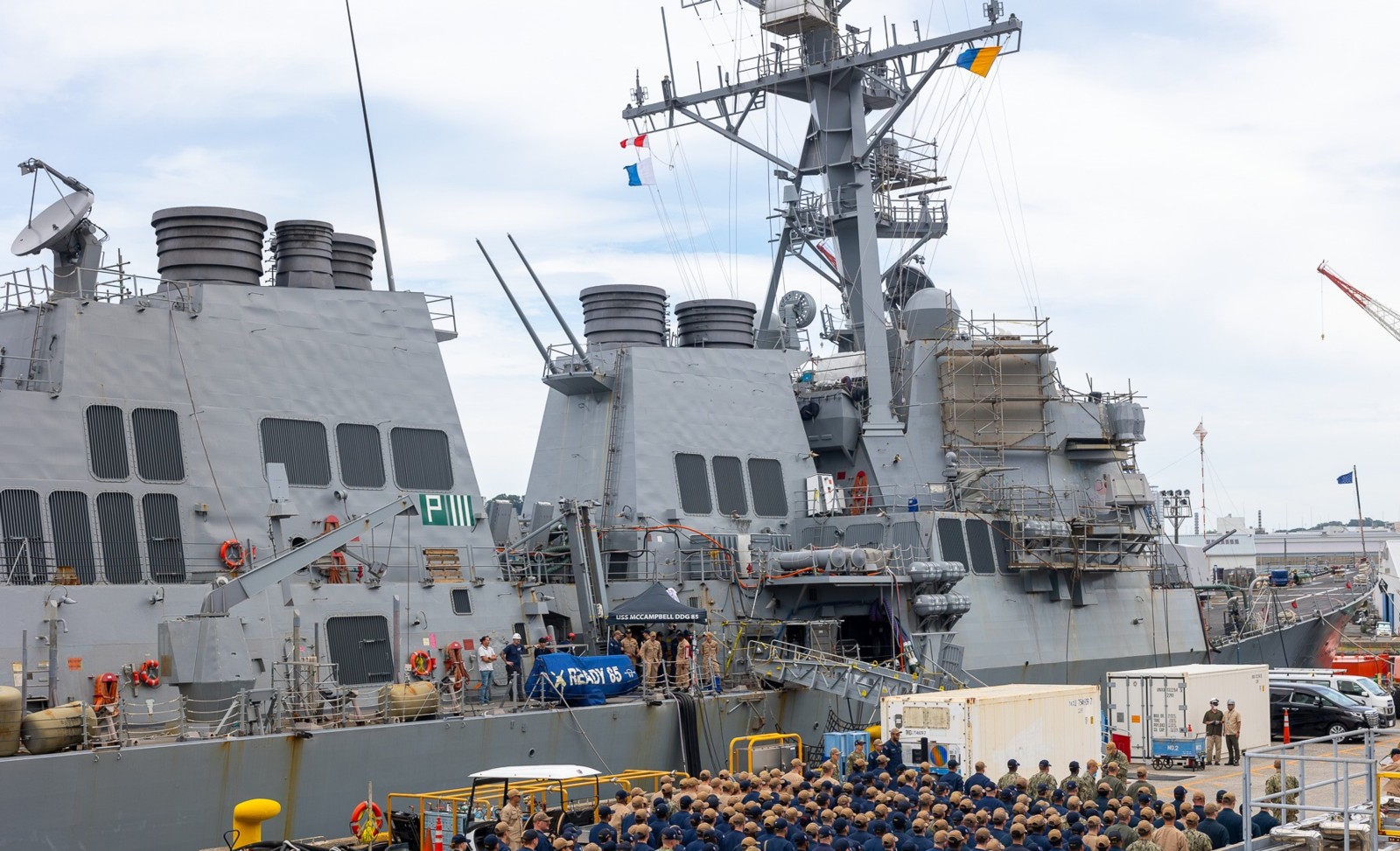 Fleet Activities Yokosuka, Japan - July 2024 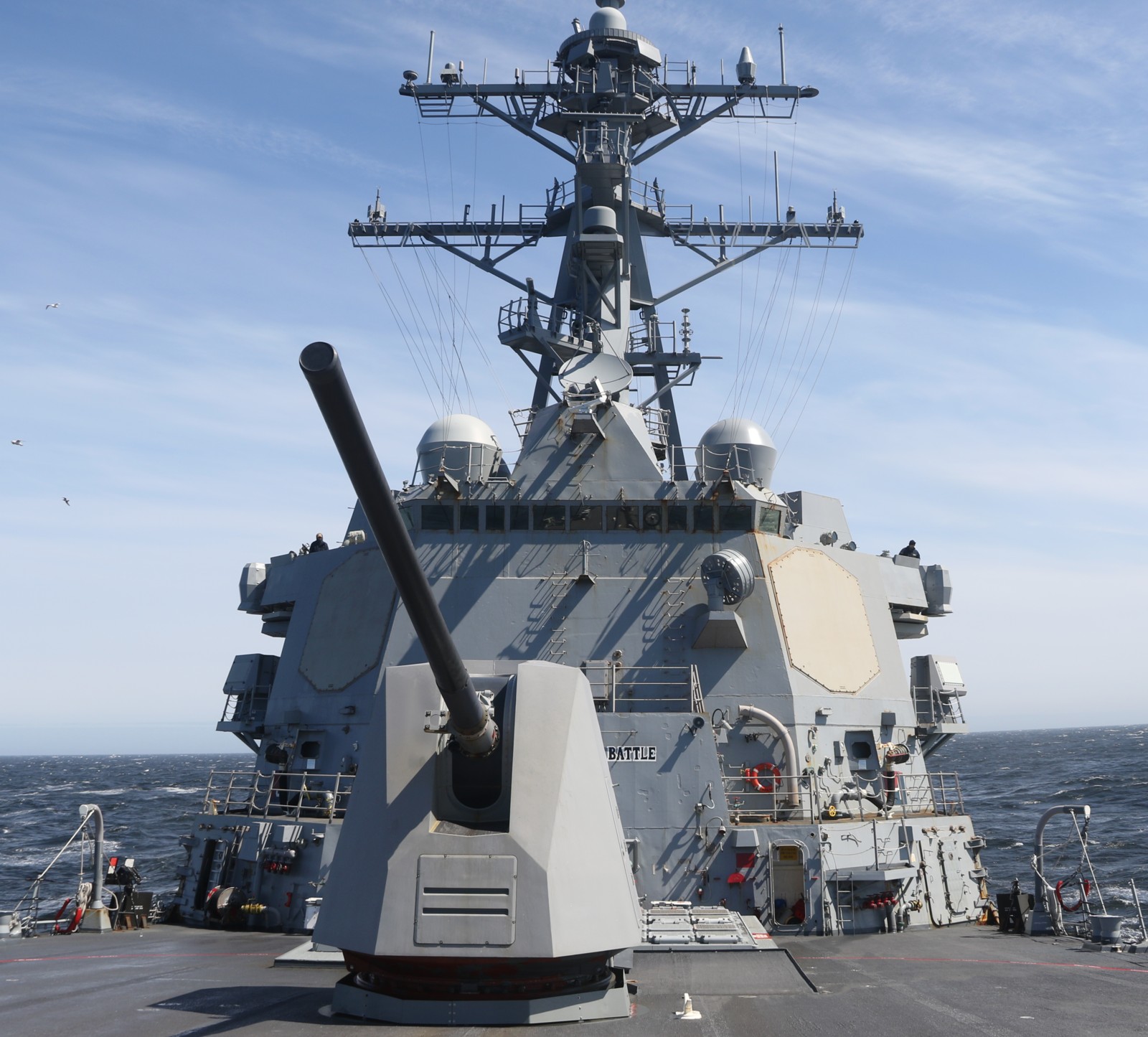 in the vicinity of the Northern Kuril Islands - April 2024  arriving at her new homeport, Fleet Activities Yokosuka, Japan to replace USS Antietam (CG 54) - March 2, 2024  arriving at her new homeport, Fleet Activities Yokosuka, Japan to replace USS Antietam (CG 54) - March 2, 2024 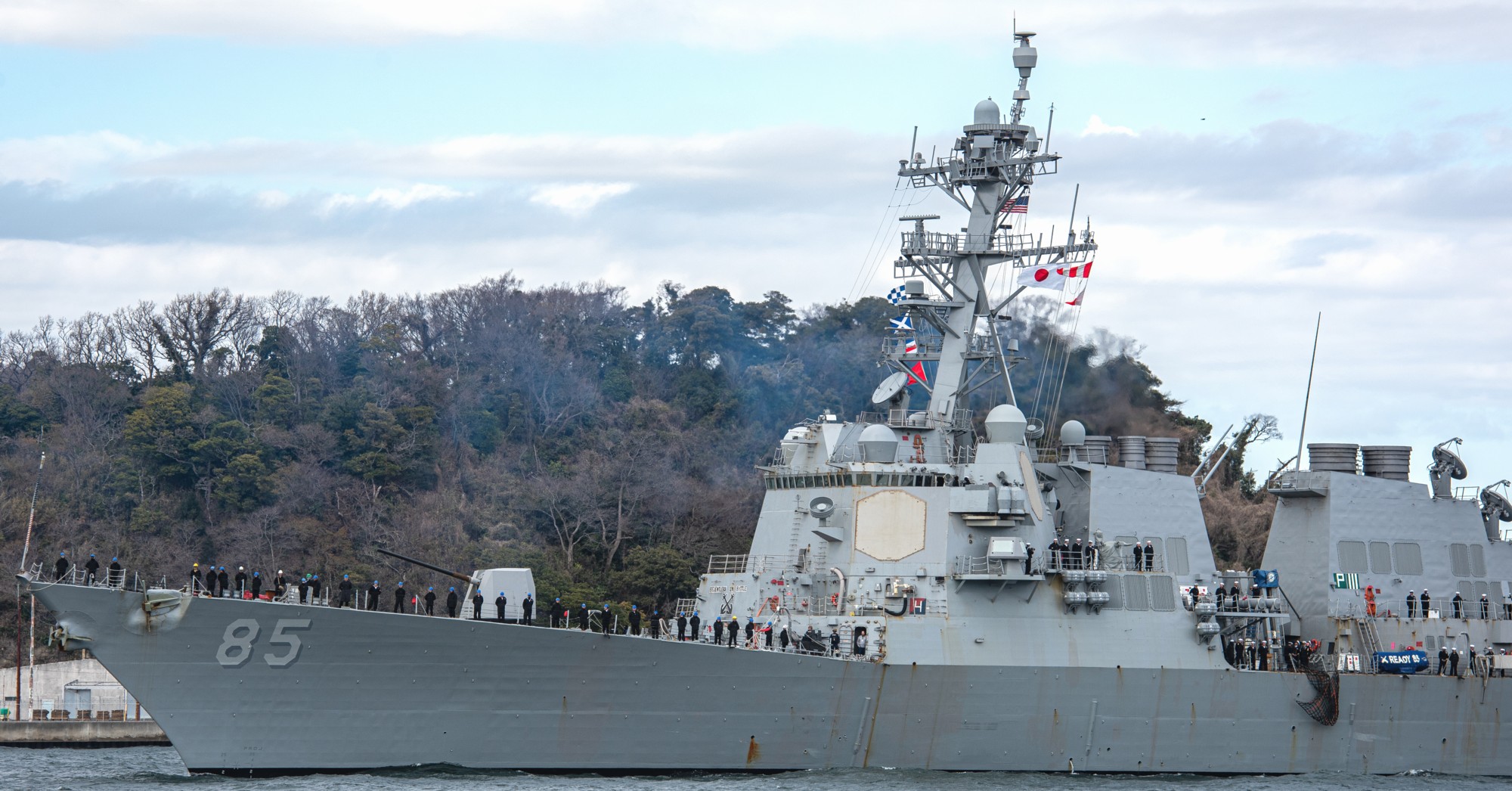 arriving at her new homeport, Fleet Activities Yokosuka, Japan to replace USS Antietam (CG 54) - March 2, 2024 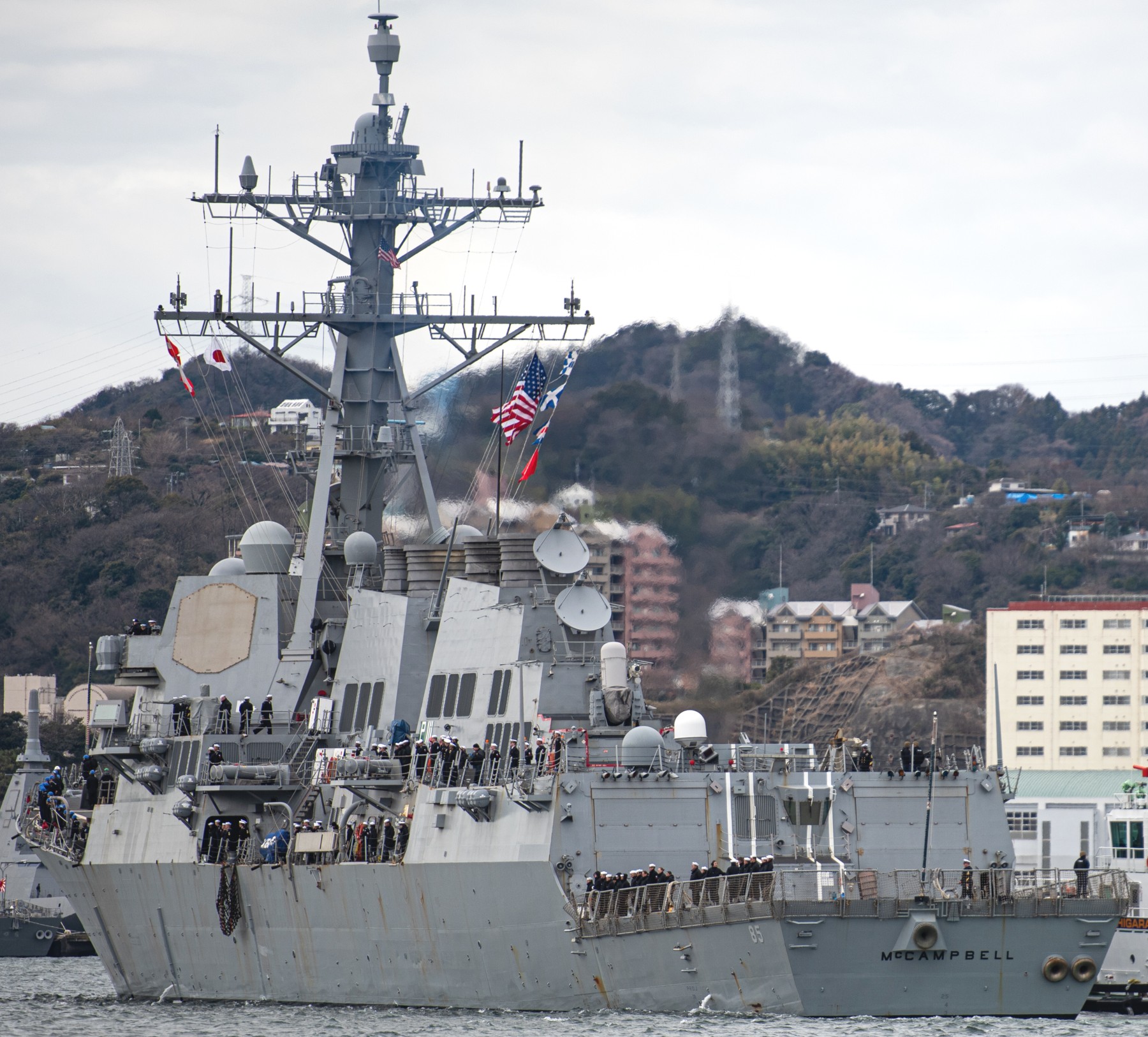 arriving at her new homeport, Fleet Activities Yokosuka, Japan to replace USS Antietam (CG 54) - March 2, 2024 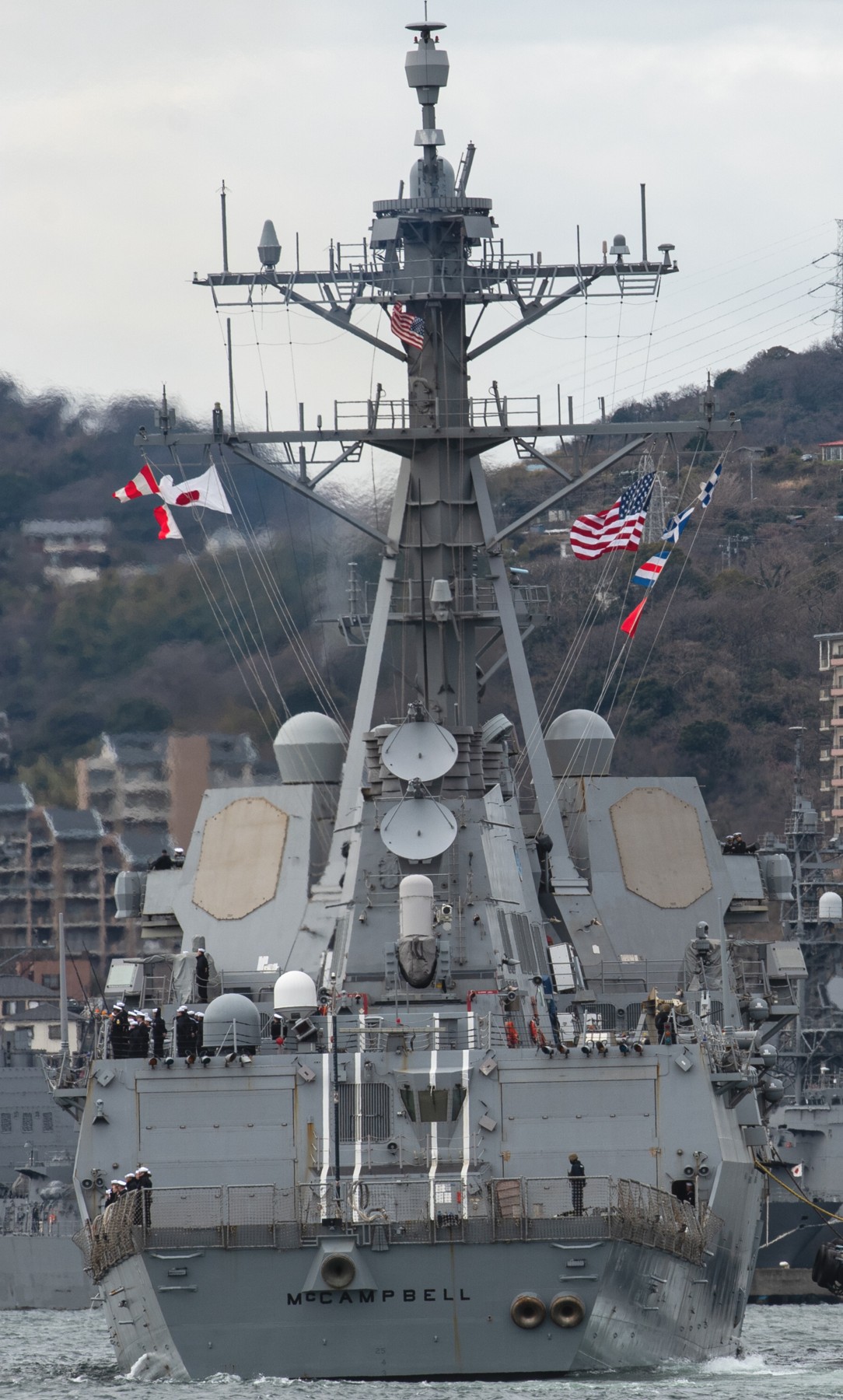 arriving at her new homeport, Fleet Activities Yokosuka, Japan to replace USS Antietam (CG 54) - March 2, 2024 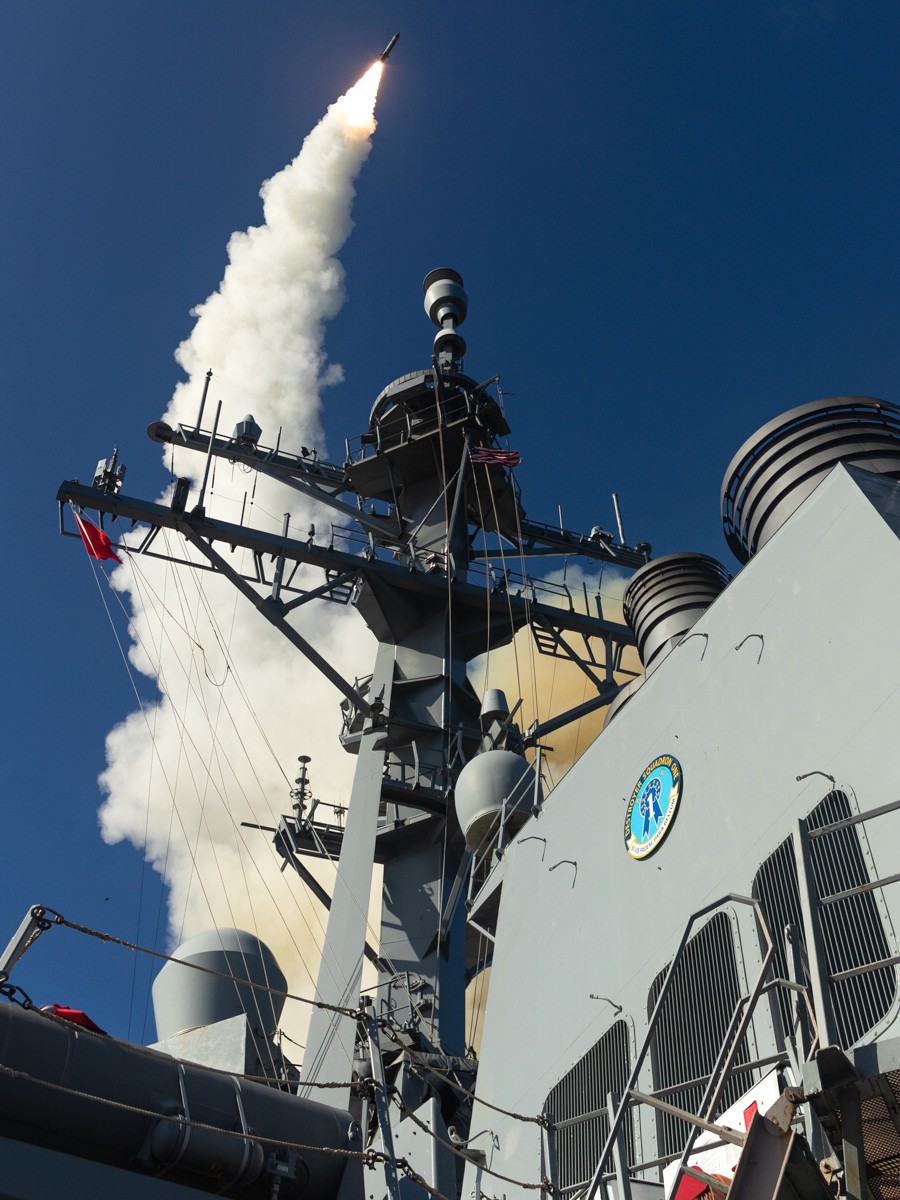 A RIM-161 Standard Missile-3 Block IIA (SM-3 Blk IIA) is launched off the Pacific Missile Range Facility, Hawaii - February 2024  A RIM-161 Standard Missile-3 Block IIA (SM-3 Blk IIA) is launched off the Pacific Missile Range Facility, Hawaii - February 2024 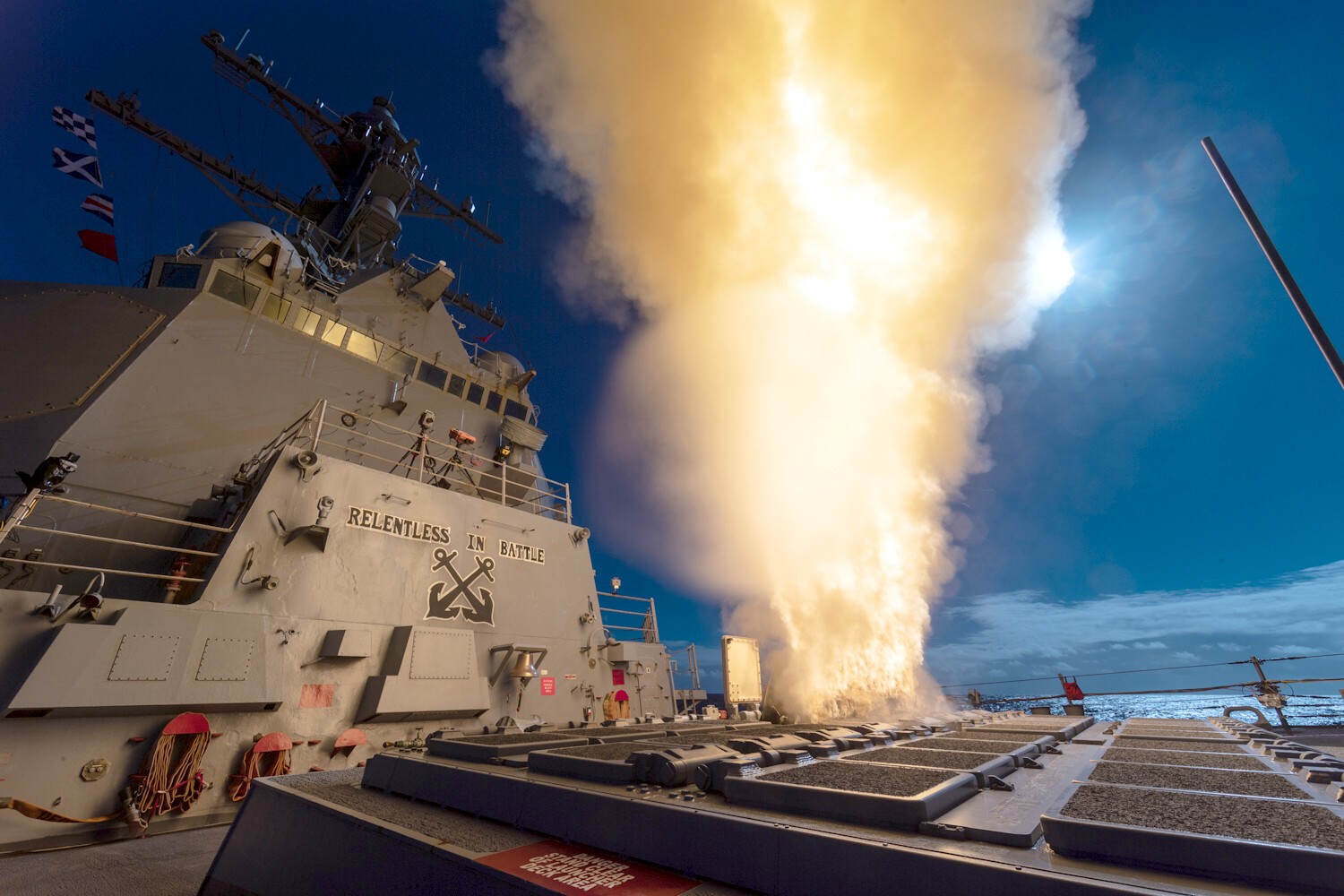 A RIM-161 Standard Missile-3 Block IIA (SM-3 Blk IIA) is launched off the Pacific Missile Range Facility, Hawaii - February 2024 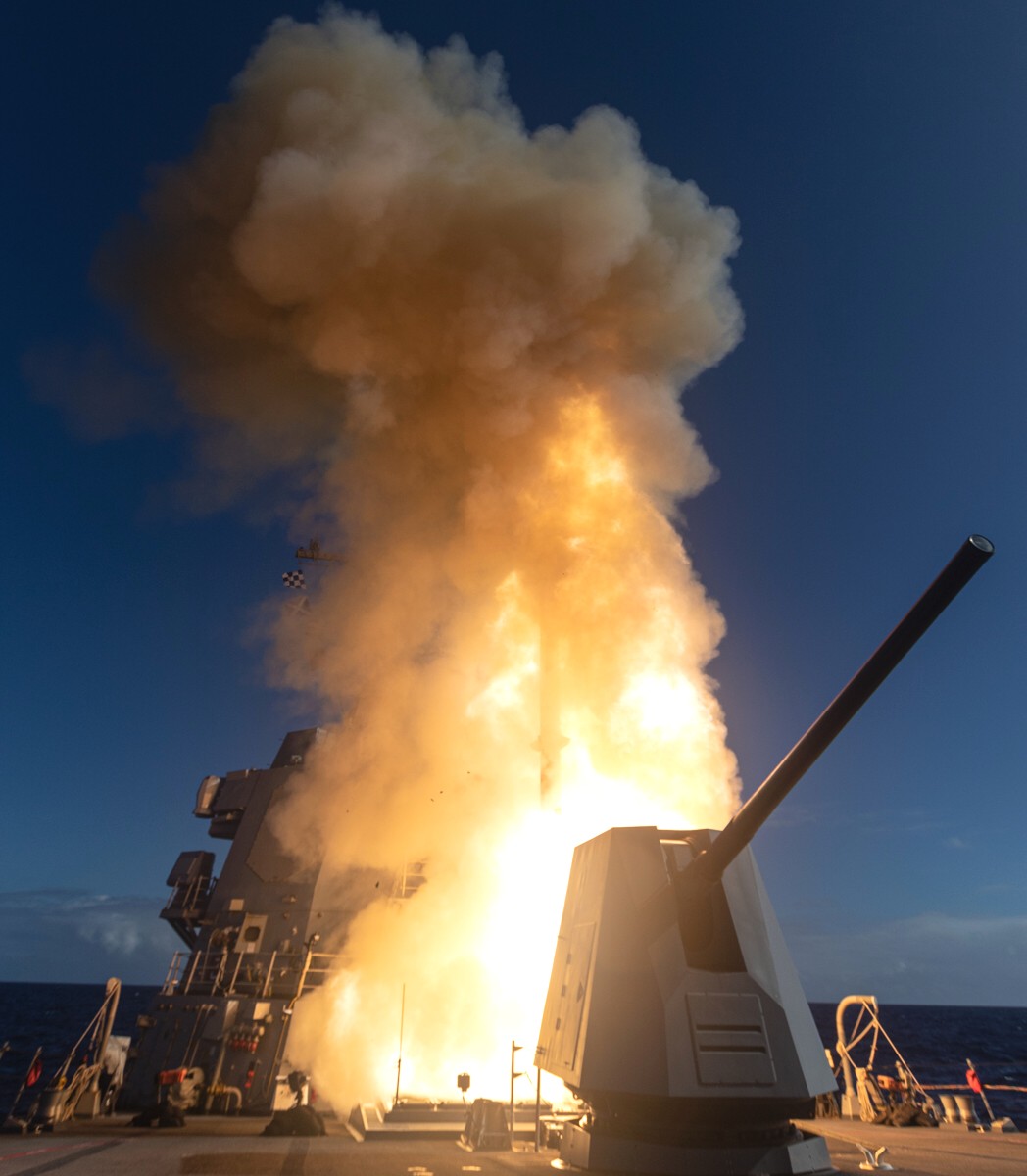 A RIM-161 Standard Missile-3 Block IIA (SM-3 Blk IIA) is launched off the Pacific Missile Range Facility, Hawaii - February 2024 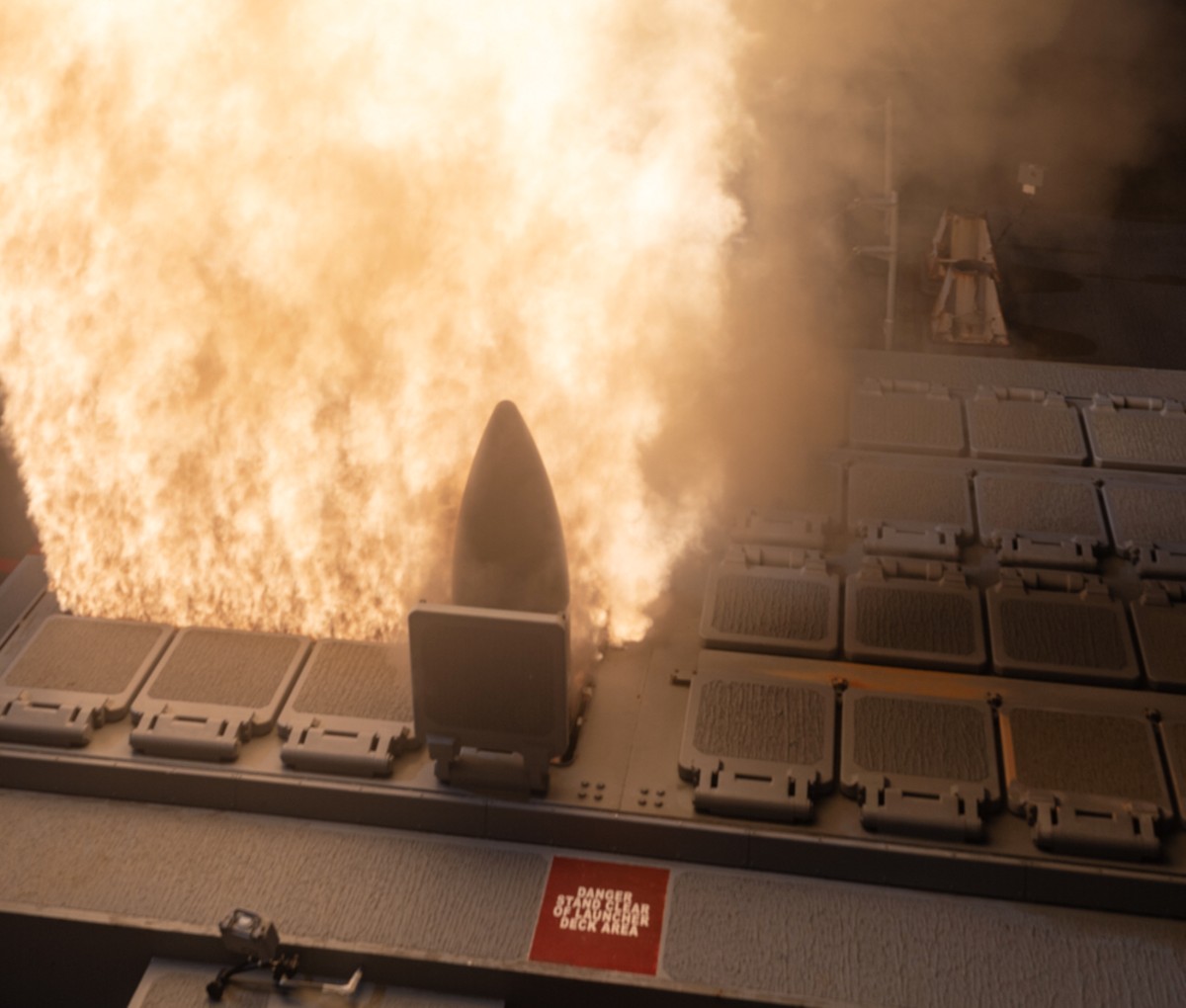 A RIM-161 Standard Missile-3 Block IIA (SM-3 Blk IIA) is launched off the Pacific Missile Range Facility, Hawaii - February 2024 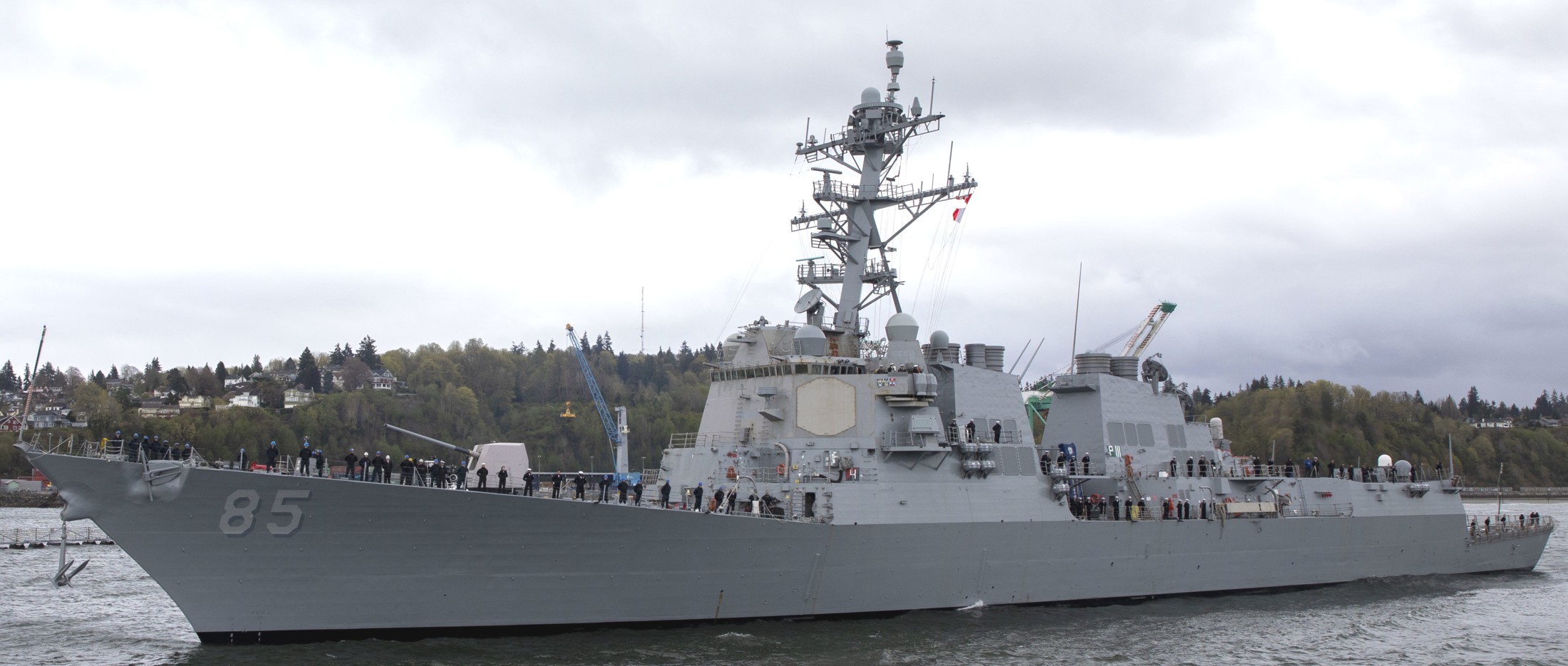 arriving at her new homeport, Naval Station Everett, Washington - April 8, 2022 Prior to relocating, the ship underwent an extensive Depot Modernization Period in Portland, Oregon that spanned more than 18 months 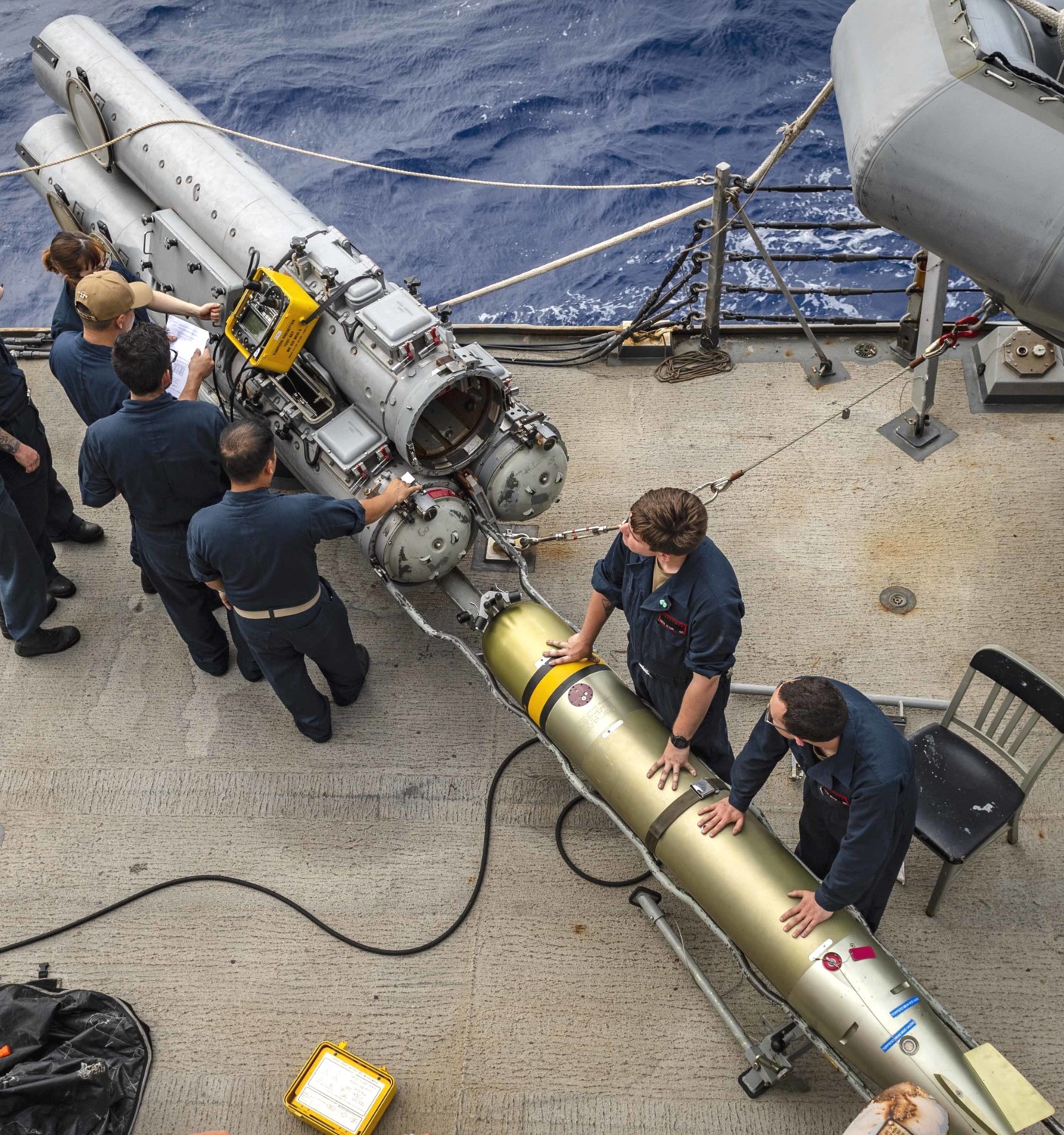 torpedo exercise - East China Sea - March 2020 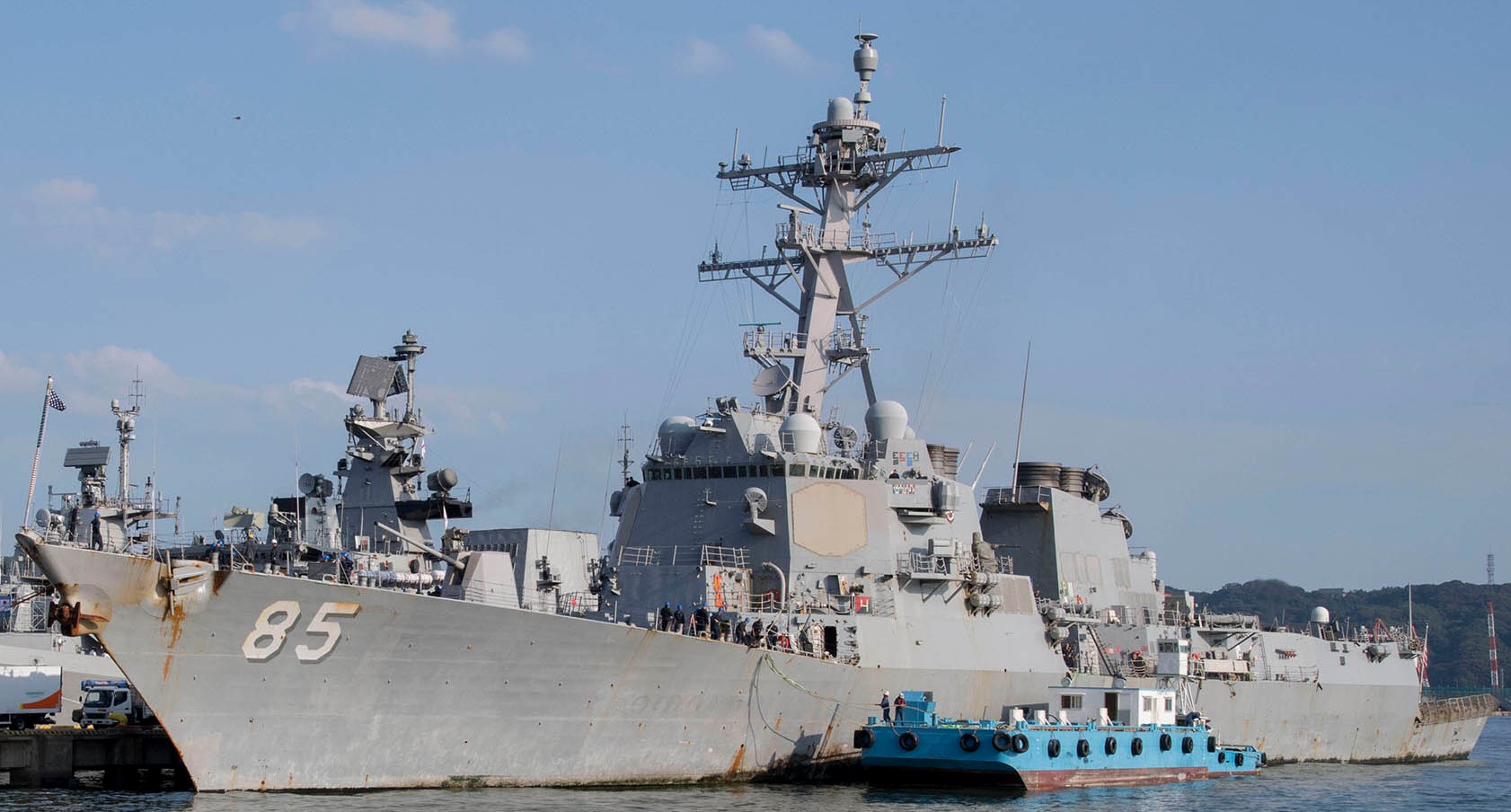 Fleet Activities Yokosuka, Japan - September 2019 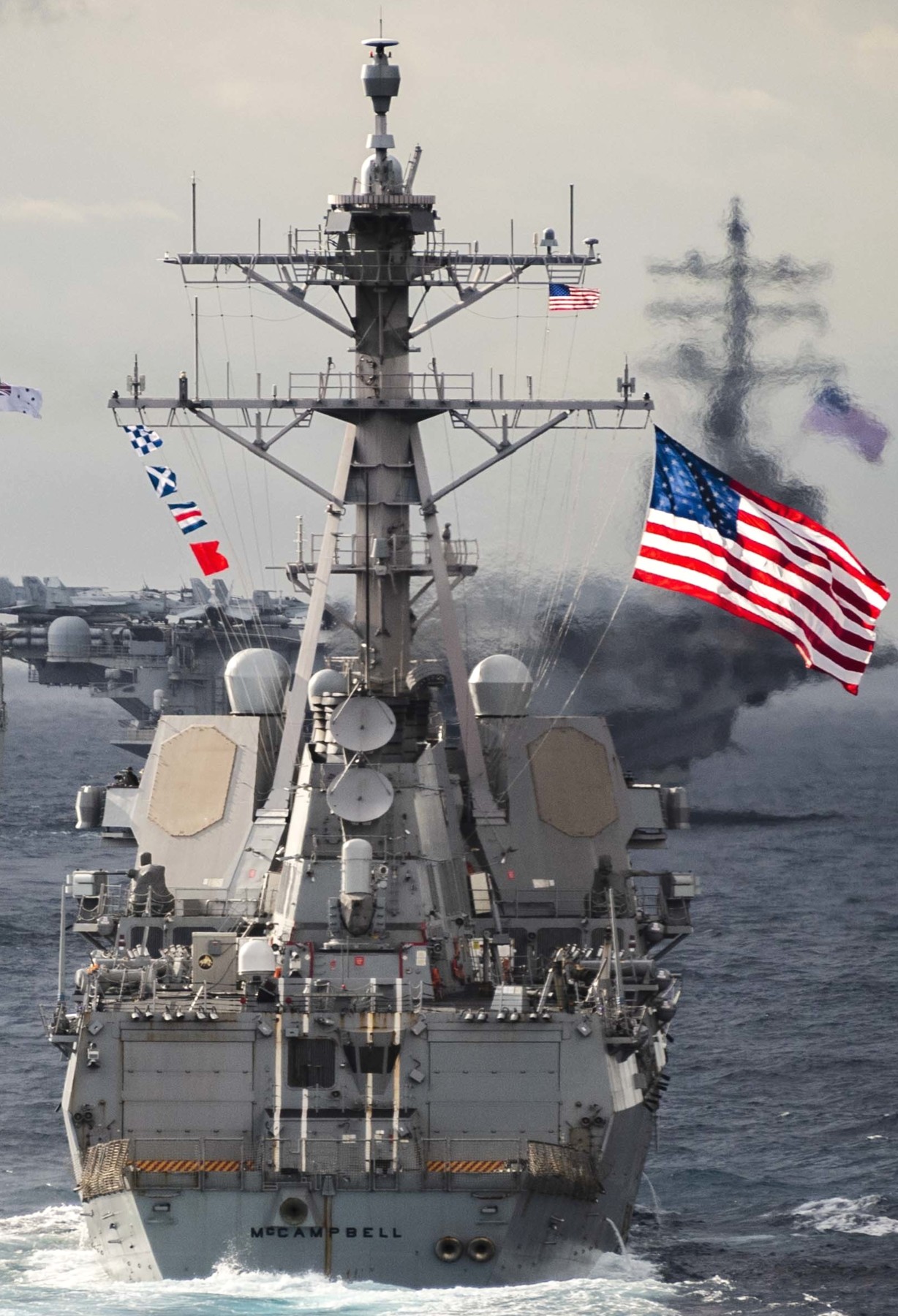 during Exercise Talisman Sabre - Tasman Sea - July 2019 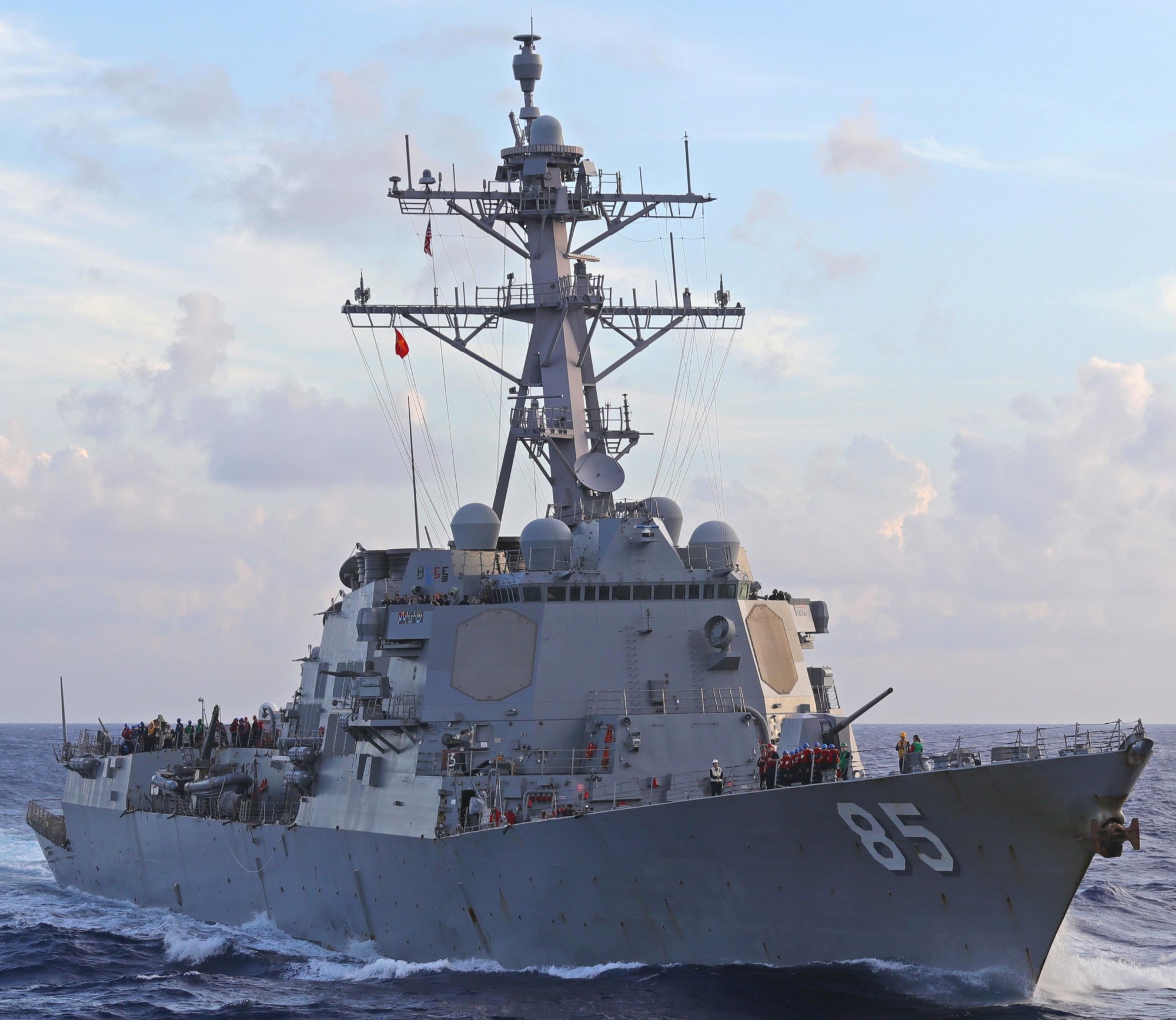 Philippine Sea - June 2019 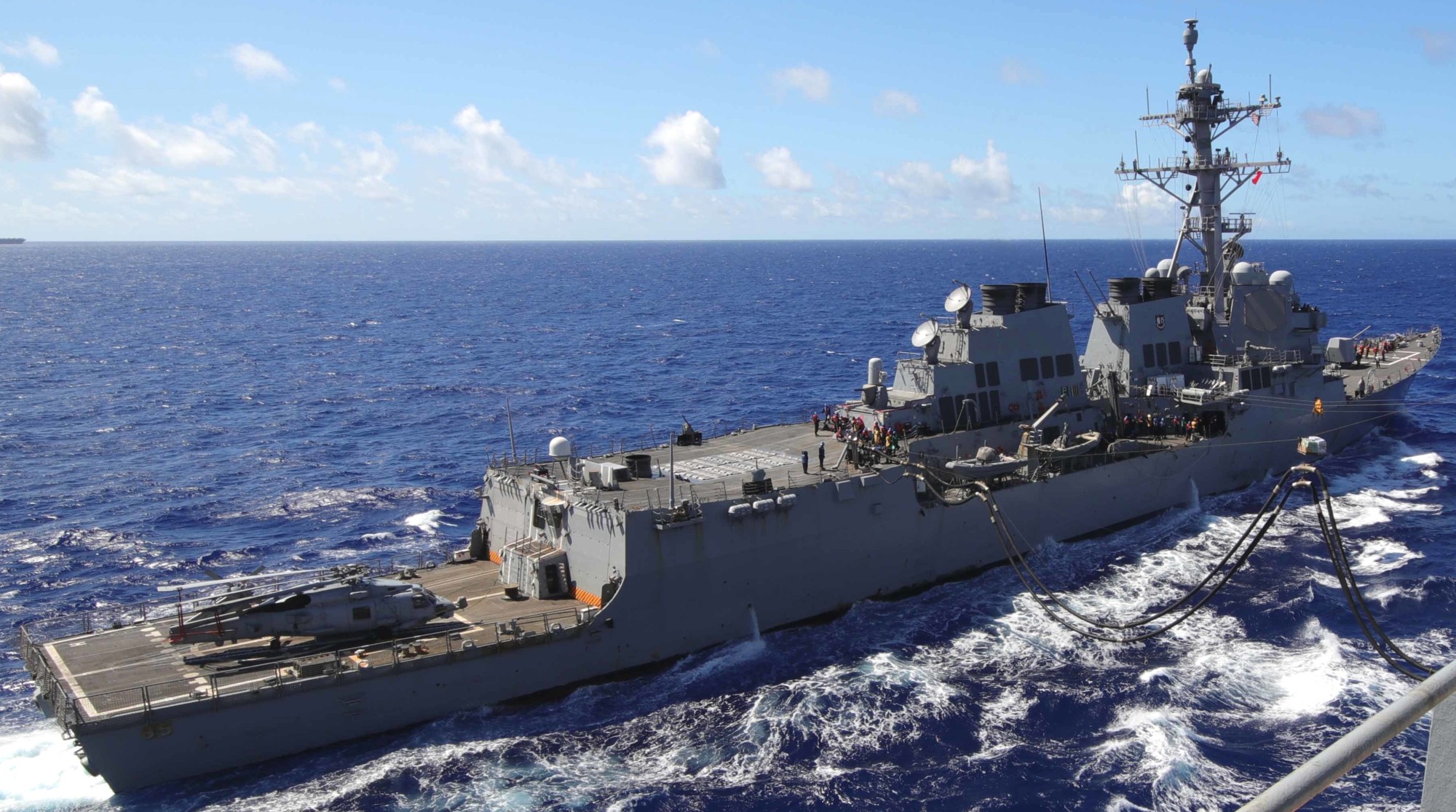 Philippine Sea - June 2019 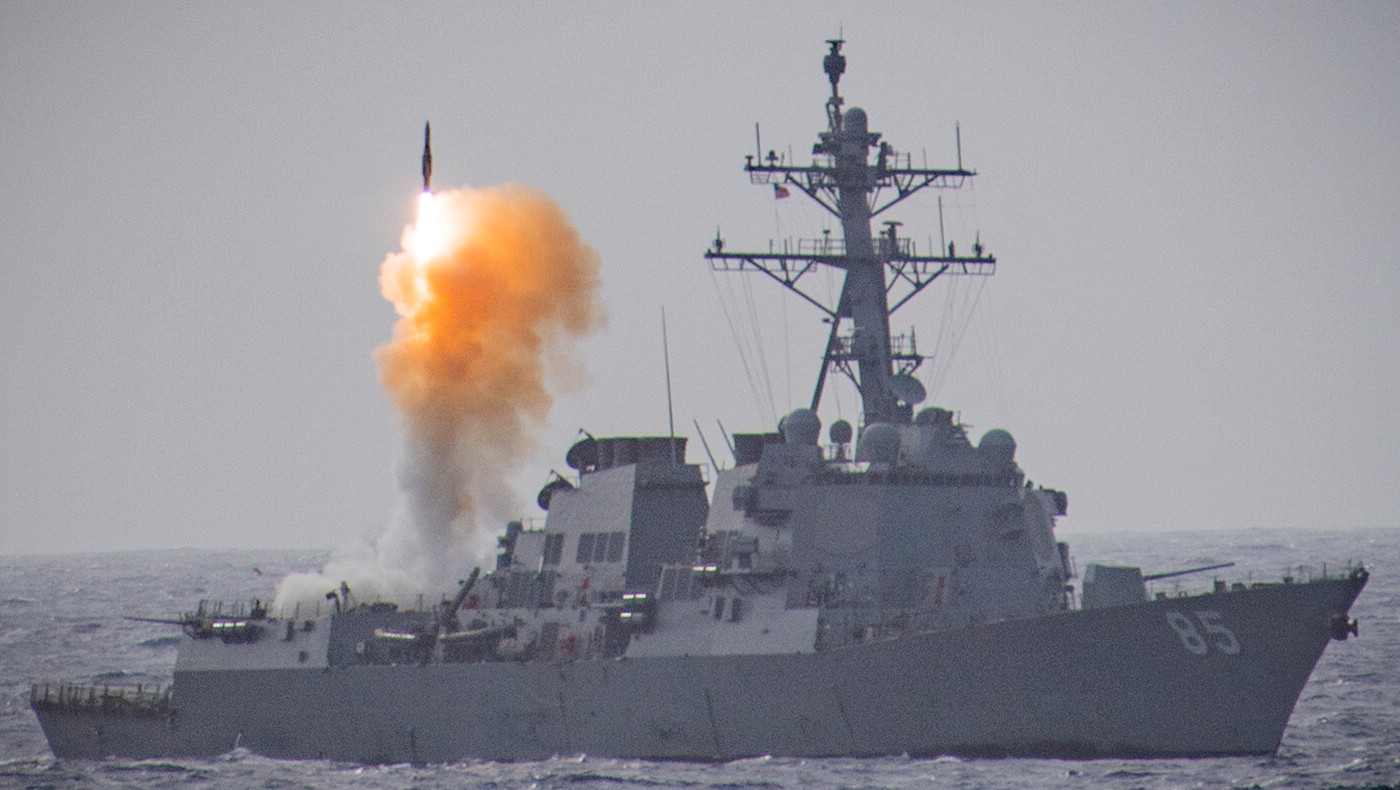 firing a Standard Missile SM-2MR - Philippine Sea - March 2019 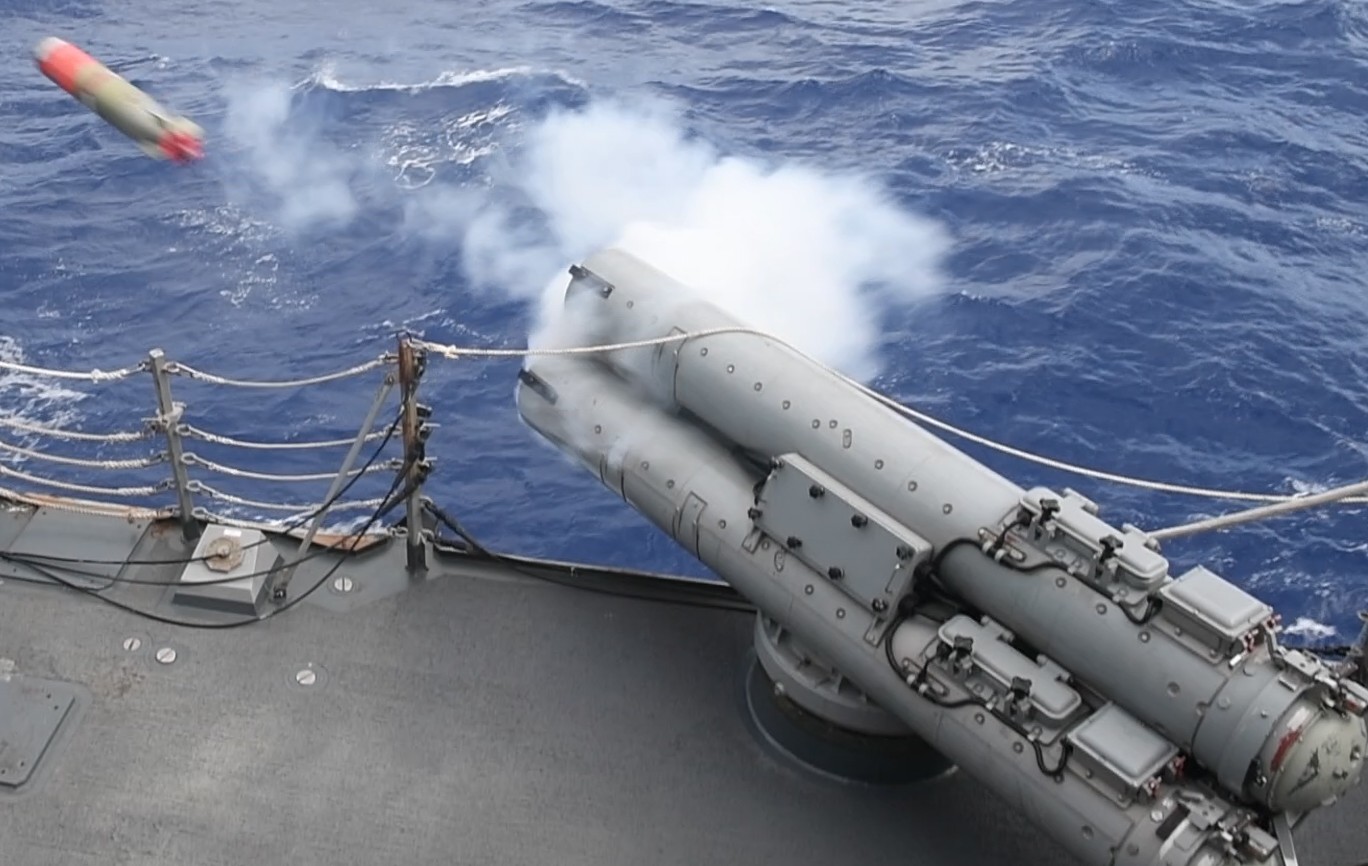 Mk.46 torpedo exercise - Philippine Sea - March 2019 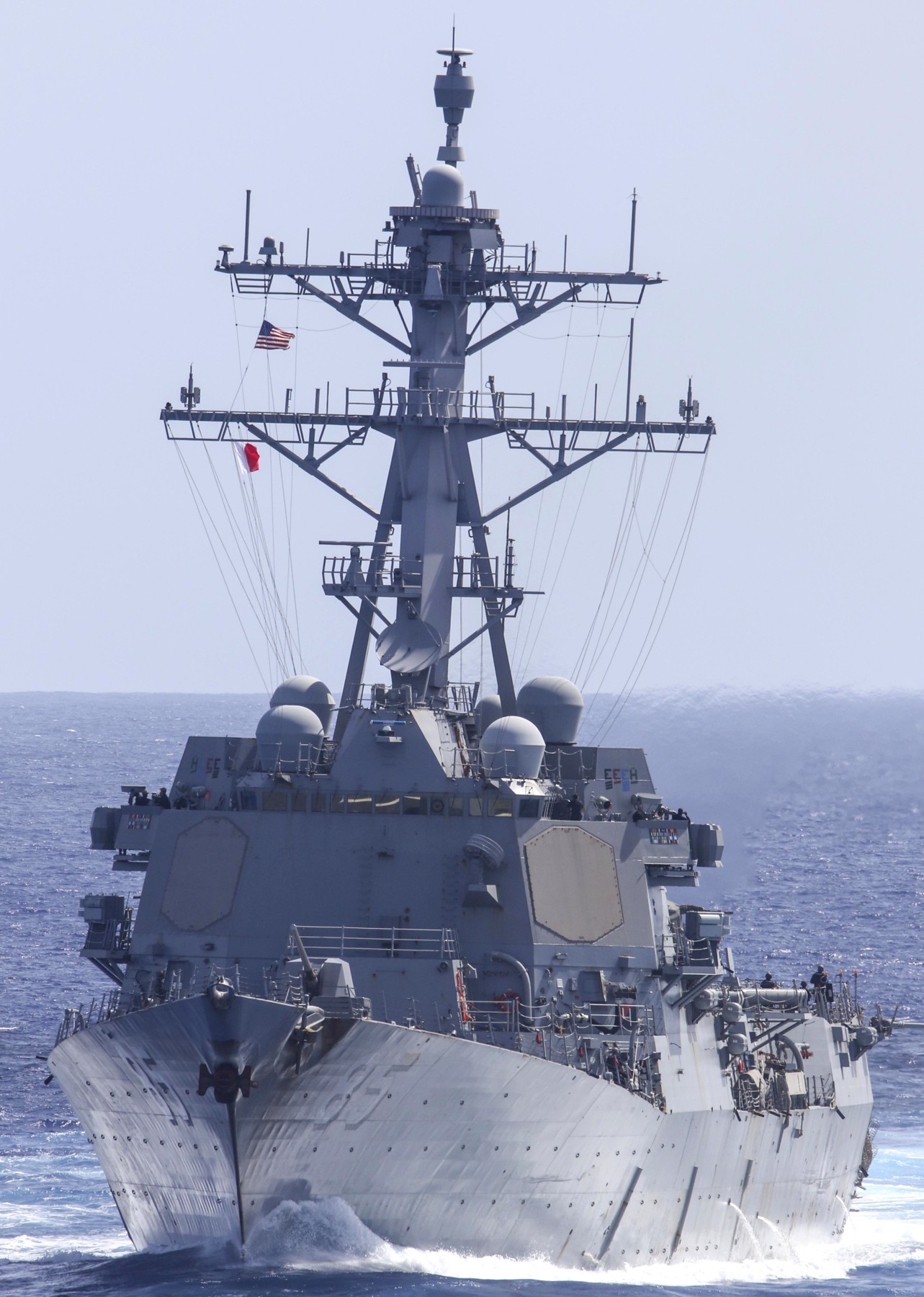 Pacific Ocean - March 2019 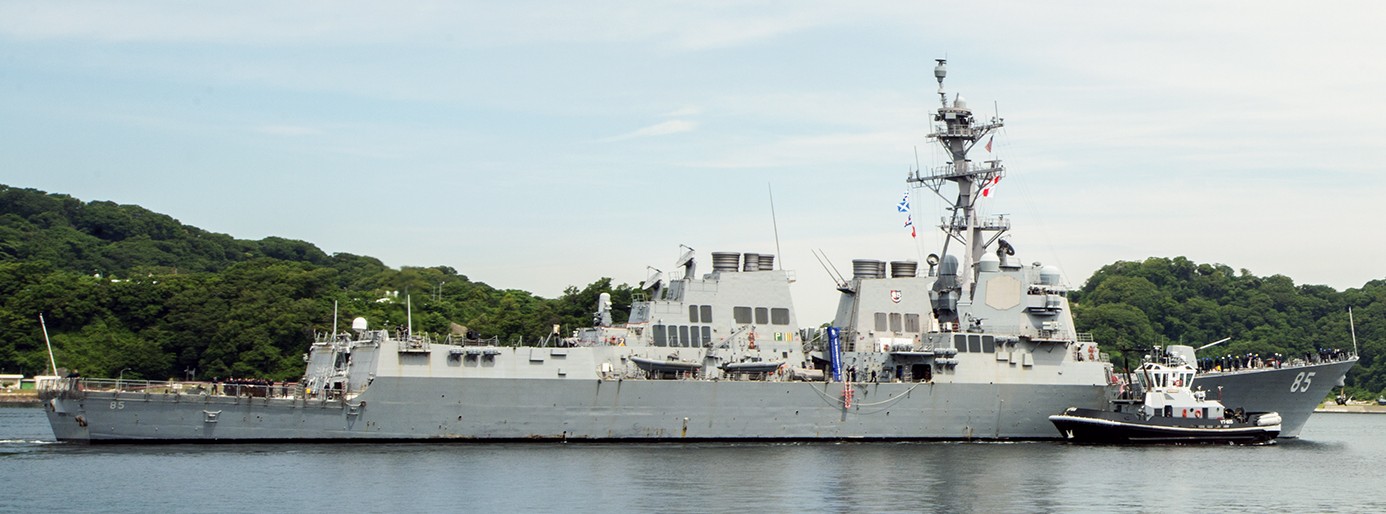 departing Fleet Activities Yokosuka, Japan - May 14, 2018 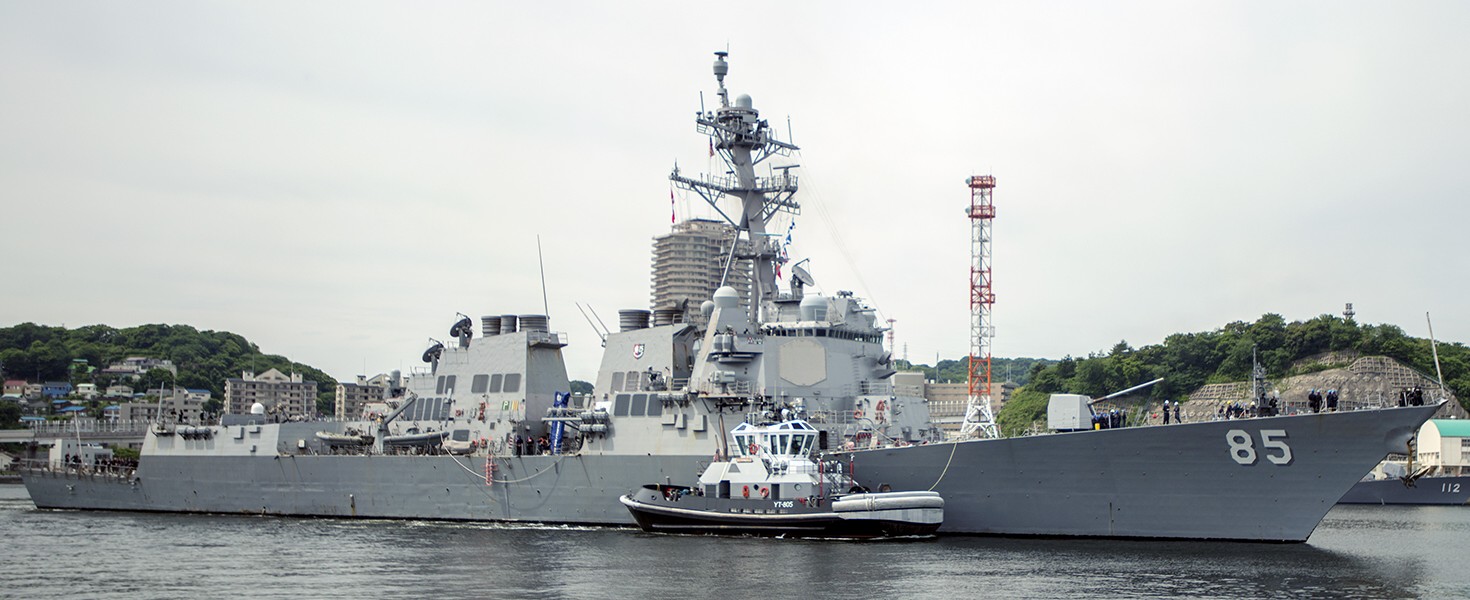 departing Fleet Activities Yokosuka, Japan - May 14, 2018 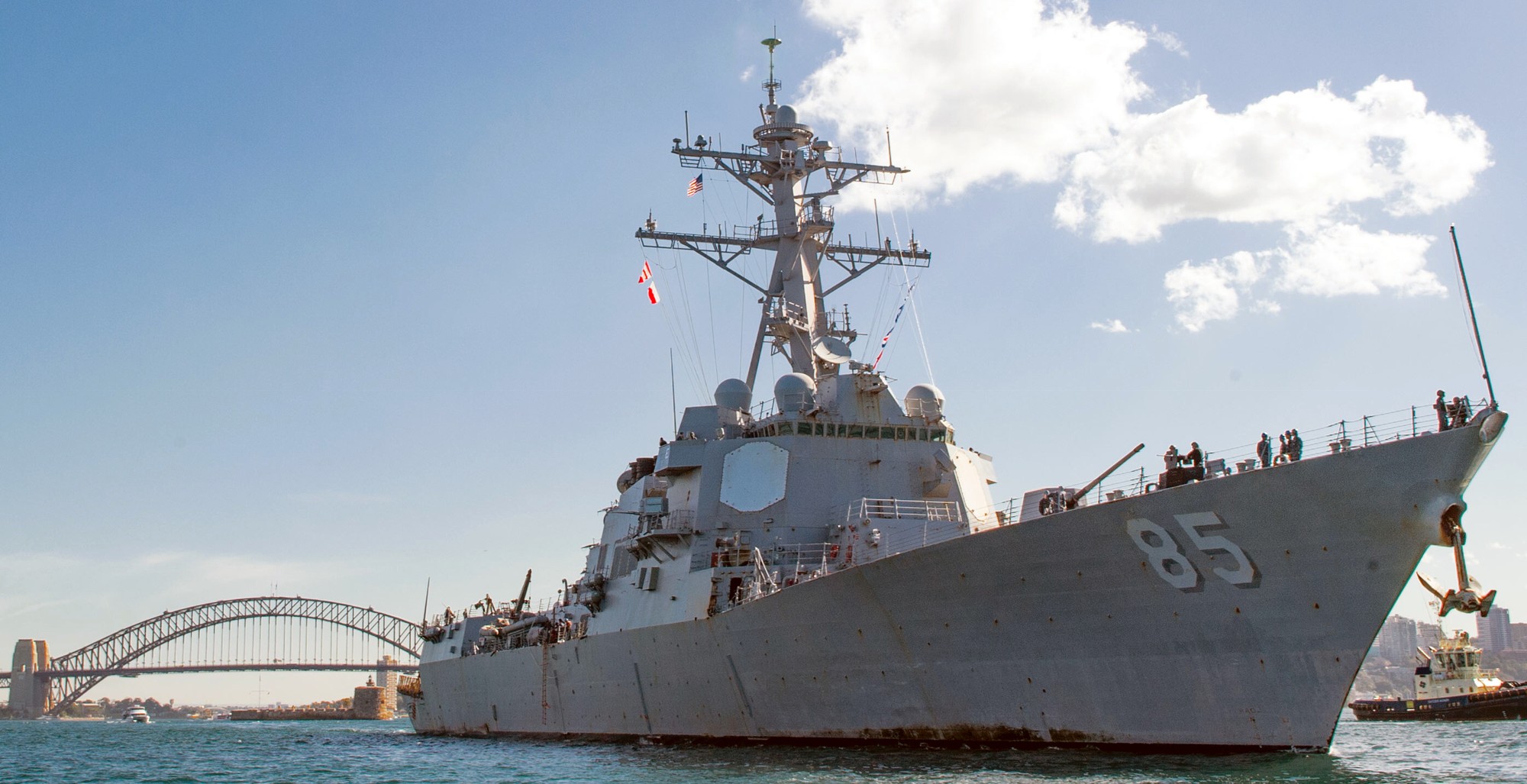 Sydney, Australia - July 2017 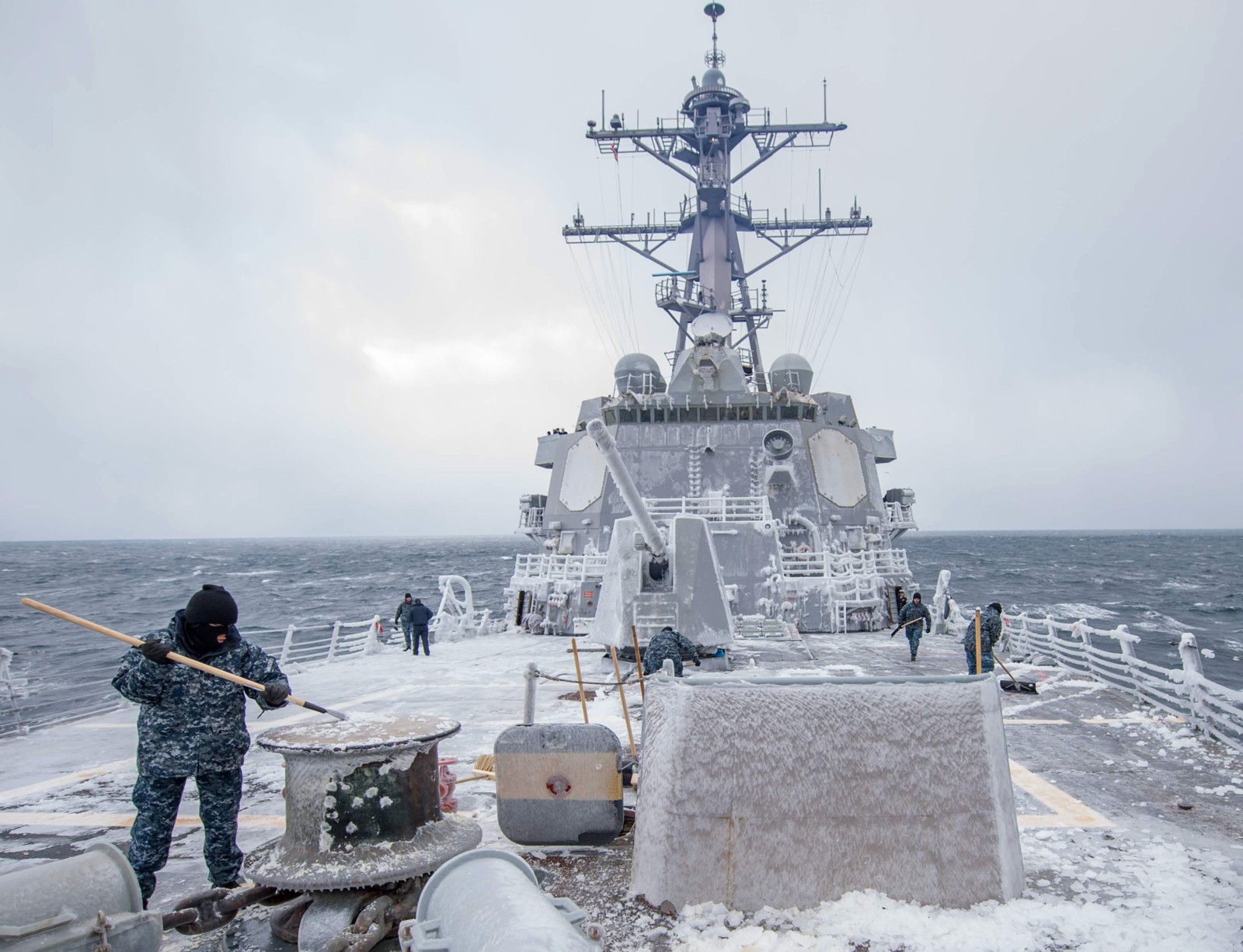 Sea of Japan - February 2017 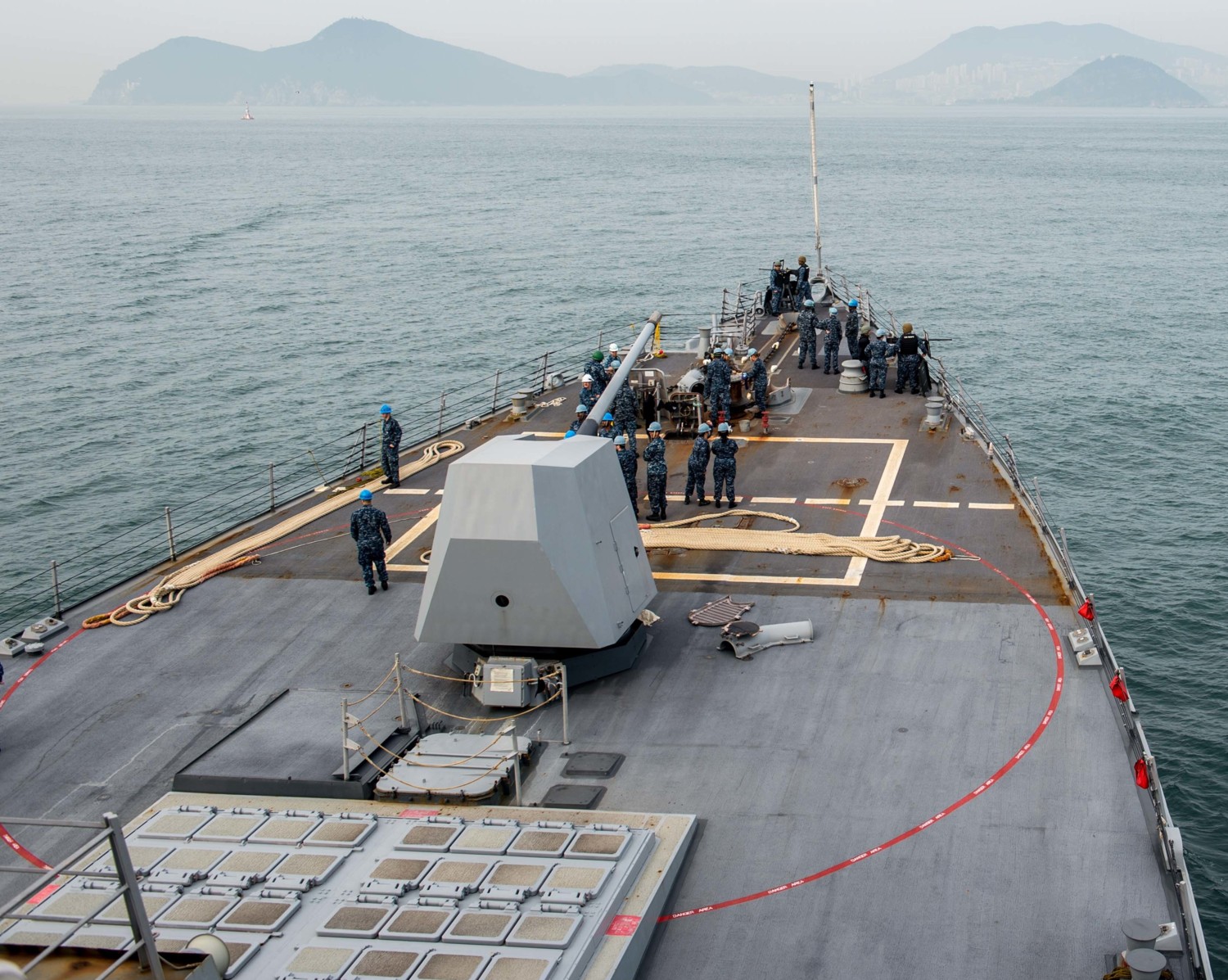 approaching Busan, Republic of Korea - October 18, 2016  off Korea - October 2016 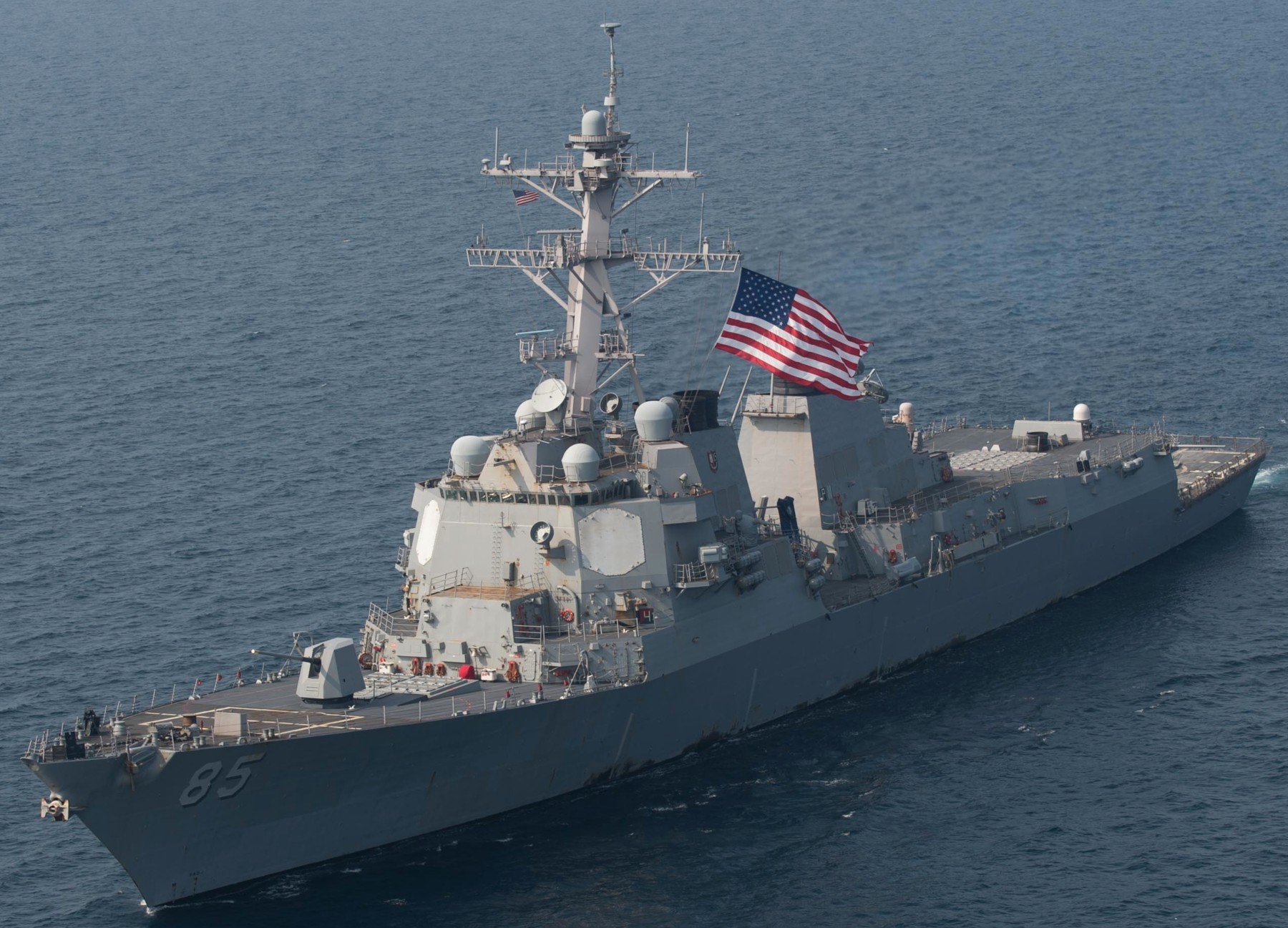 off Korea - October 2016 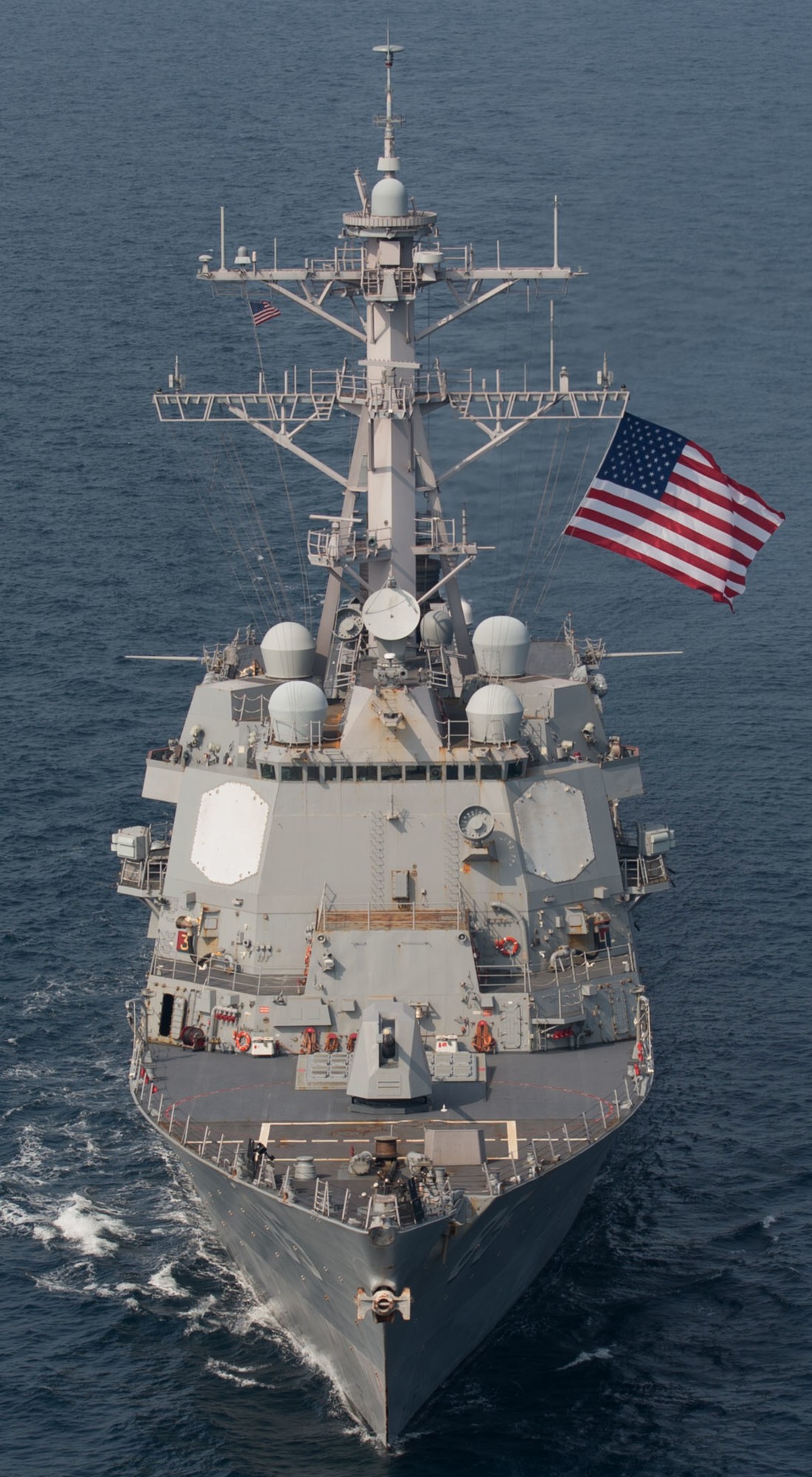 off Korea - October 2016 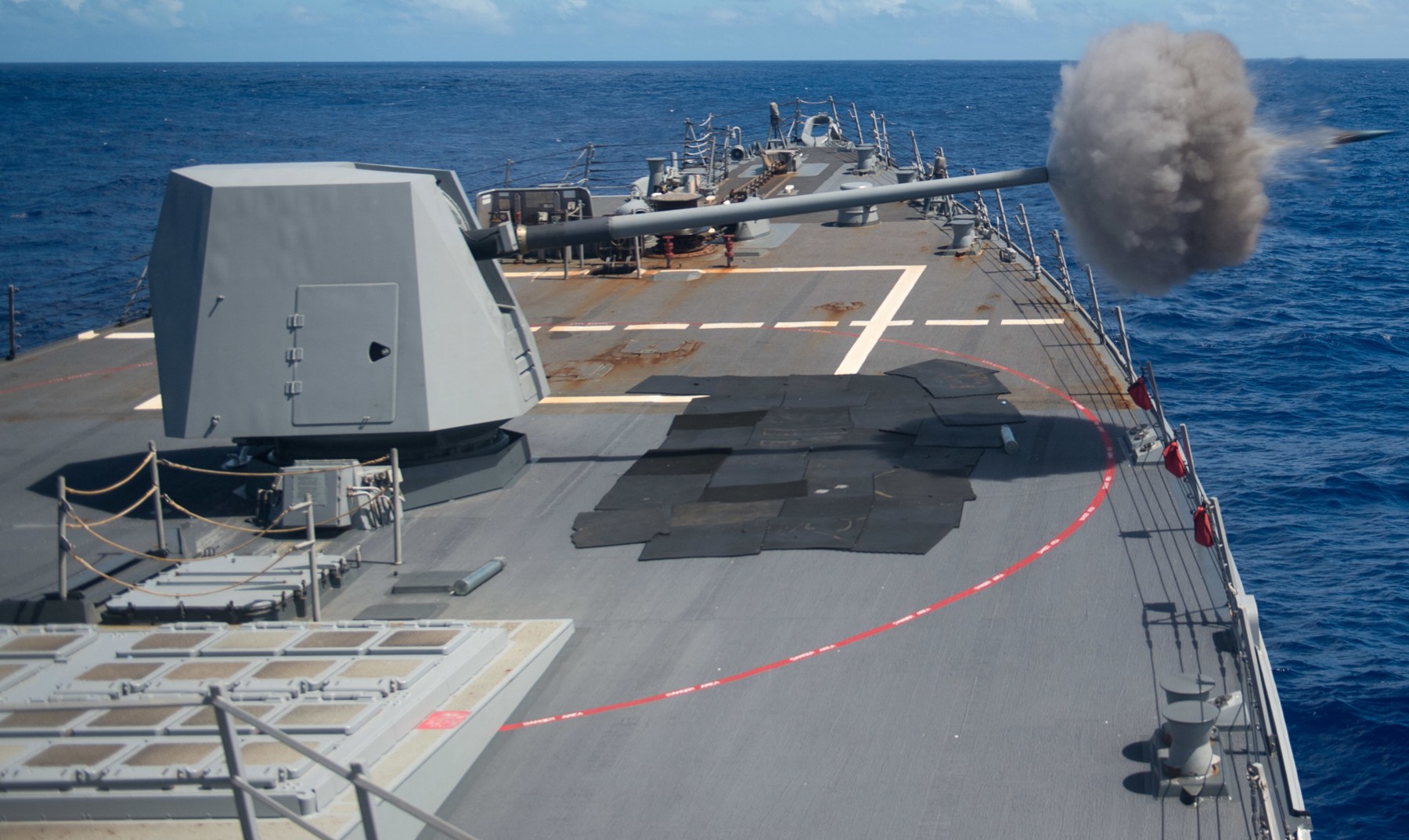 Mk.45 Mod.4 gun fire - Philippine Sea - October 2016 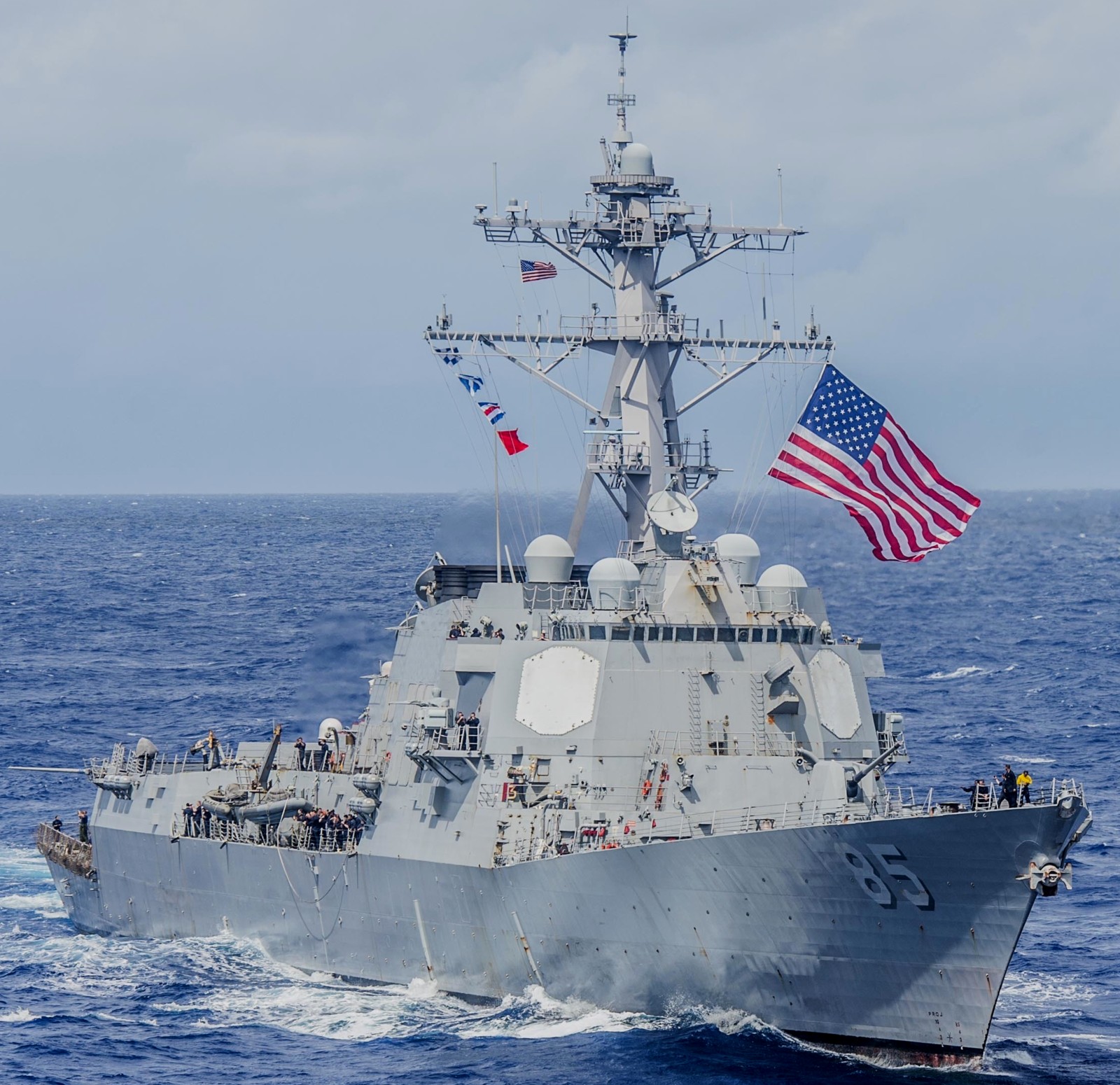 Philippine Sea - September 2016 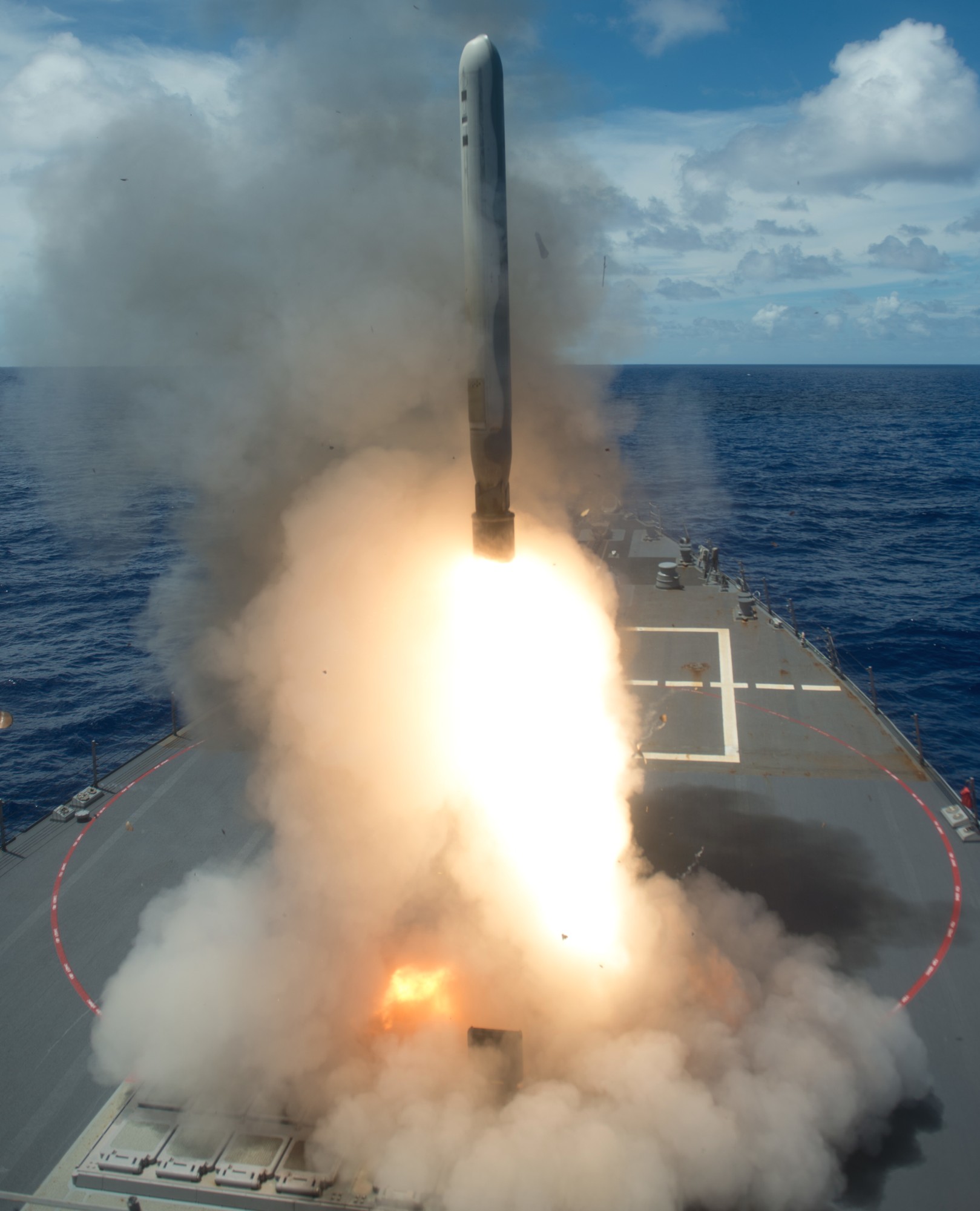 firing a BGM-109 Tomahawk TLAM missile during Exercise Valiant Shield - September 2016 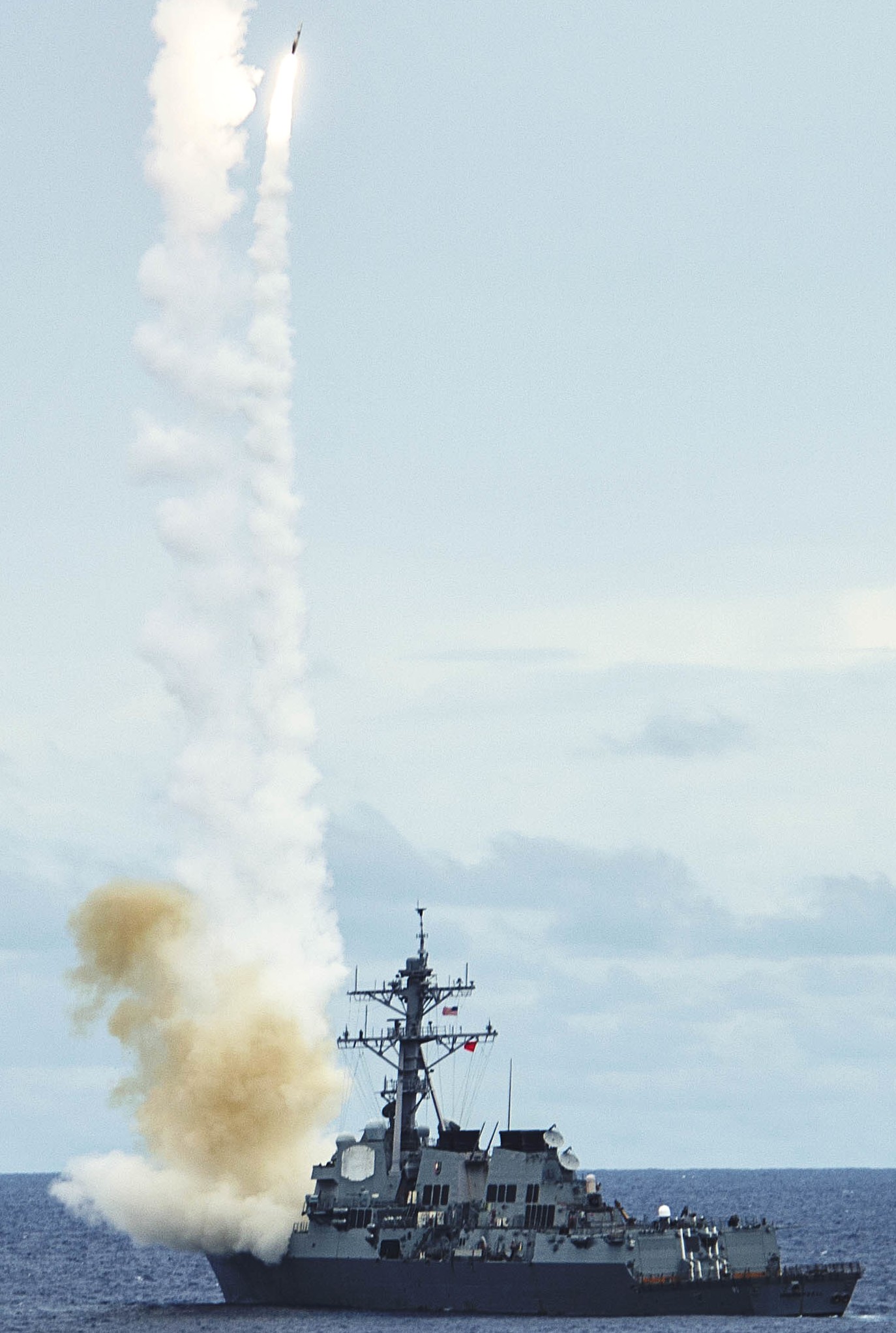 firing a Standard Missile SM-2MR during Exercise Valiant Shield - September 2016 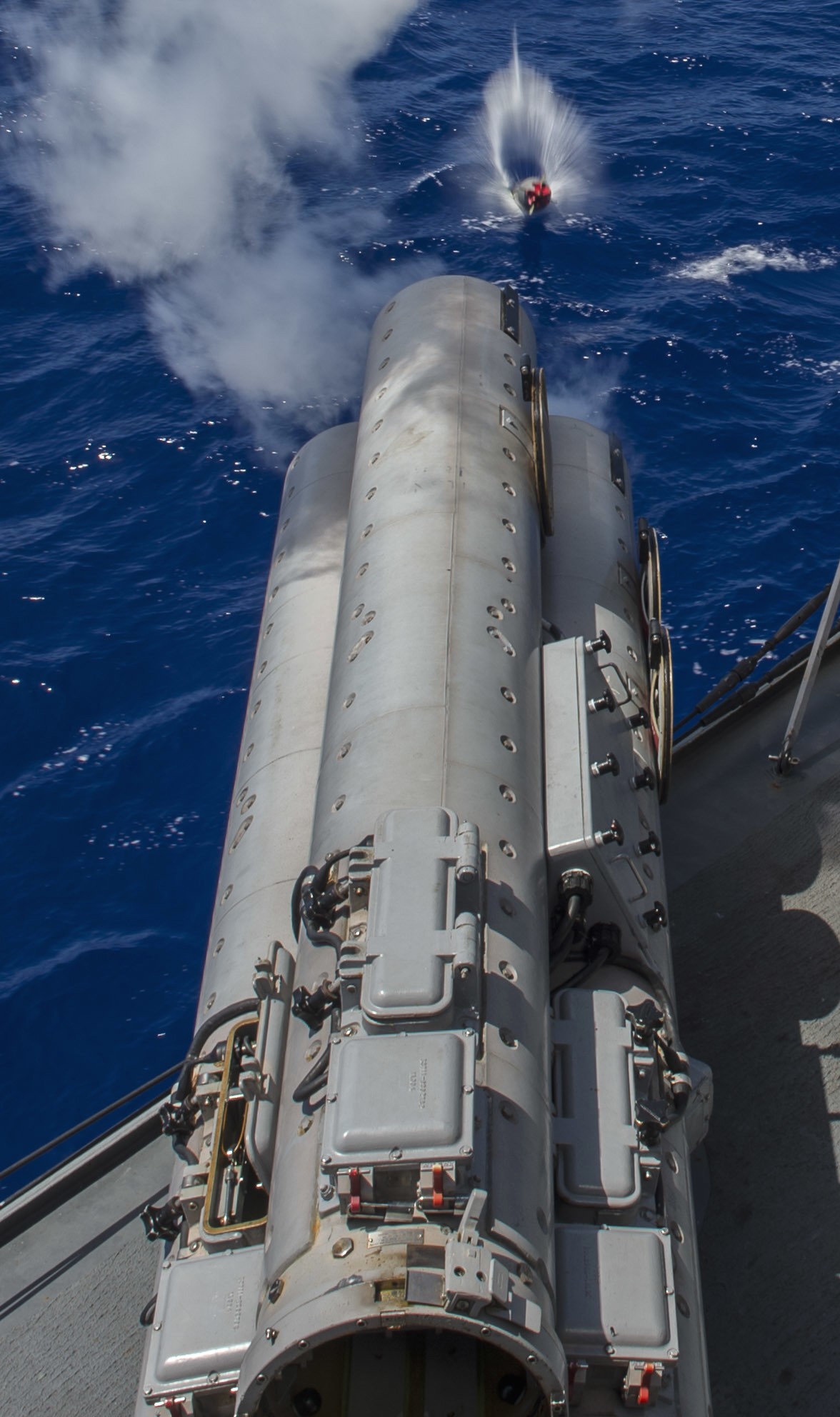 torpedo exercise during exercise Multi Sail 16 - off Guam - March 2016 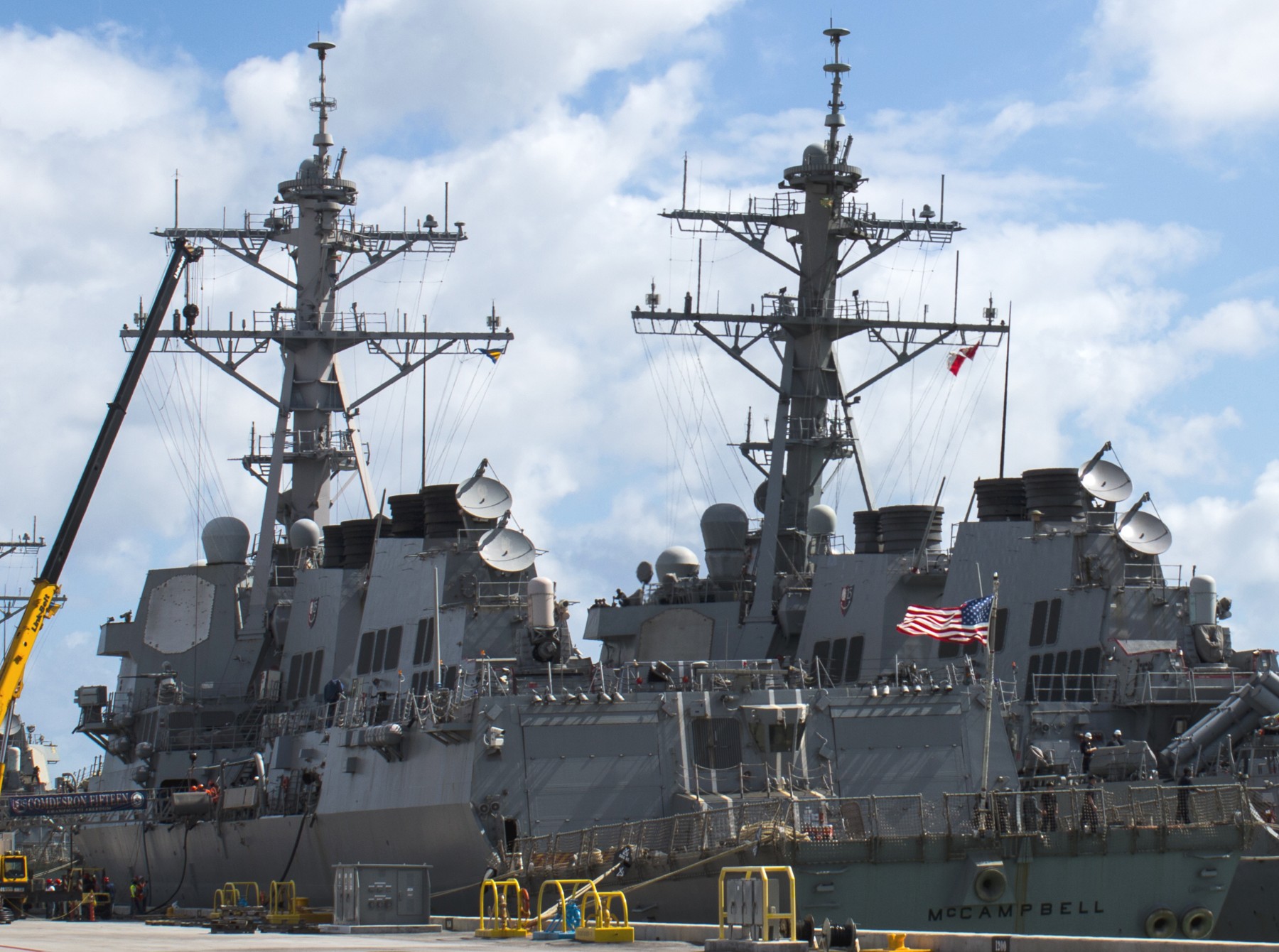 Naval Base Guam, Apra Harbor - March 2016 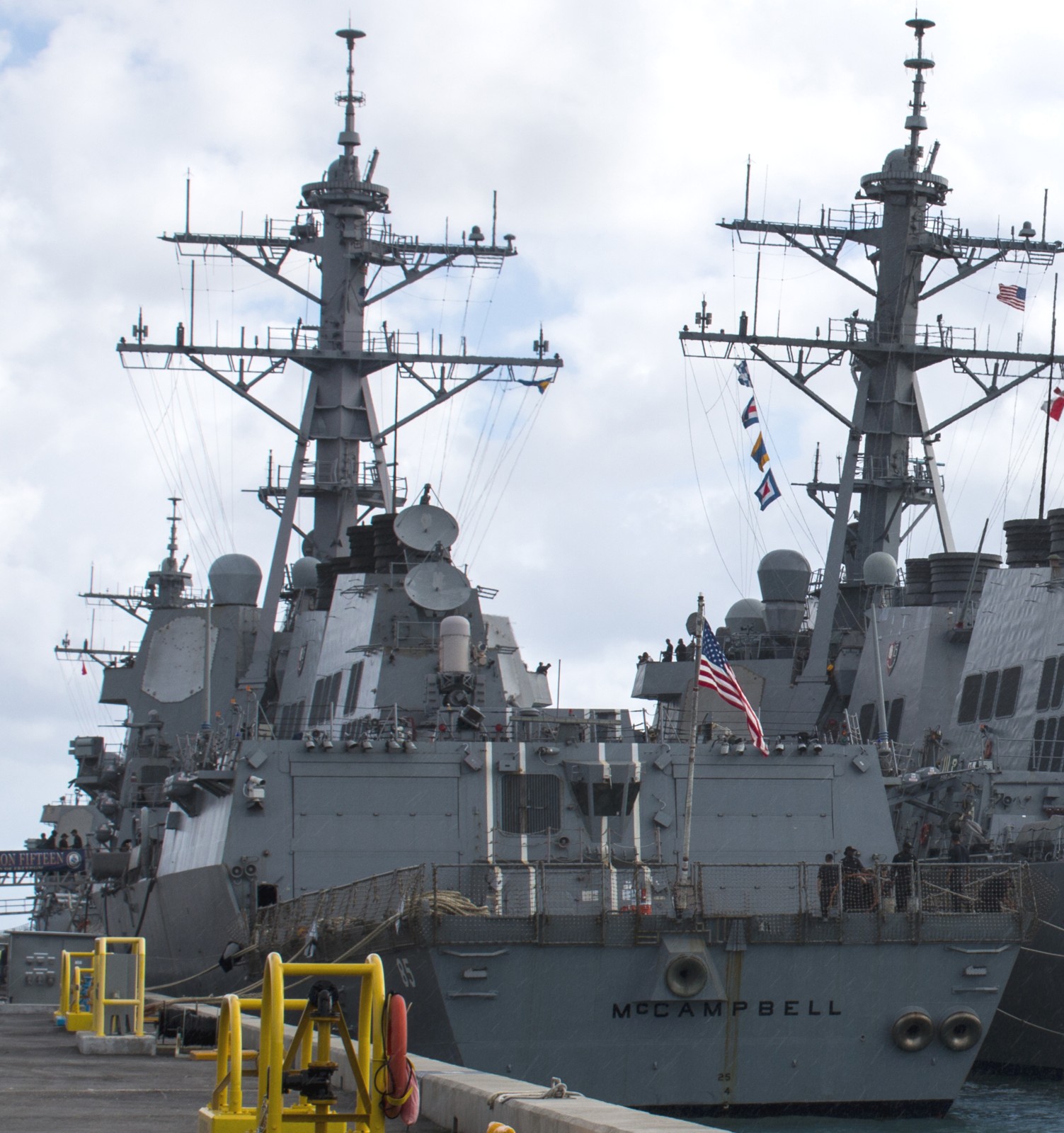 Naval Base Guam, Apra Harbor - March 2016 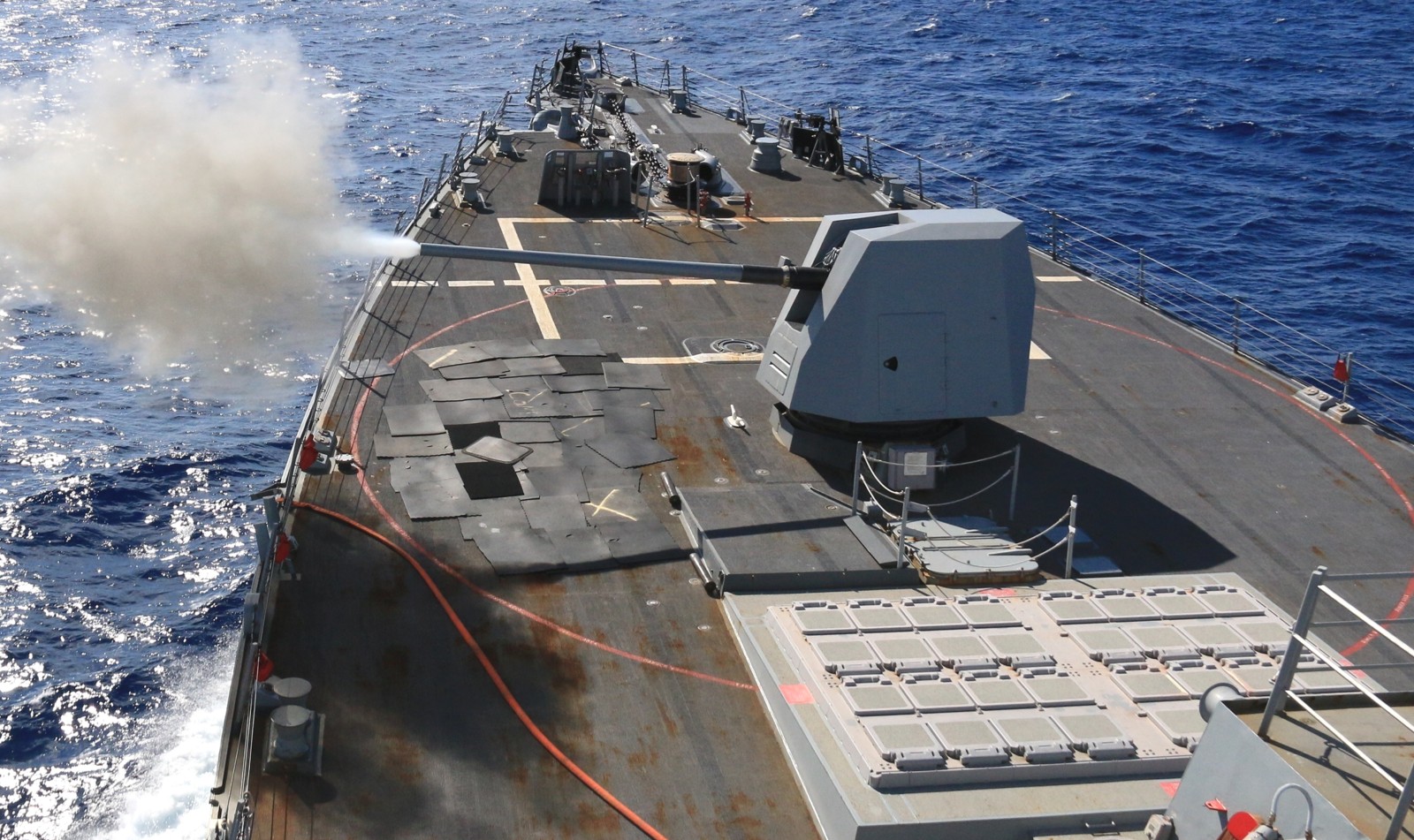 Mk.45 Mod.4 gun fire - Philippine Sea - January 2016 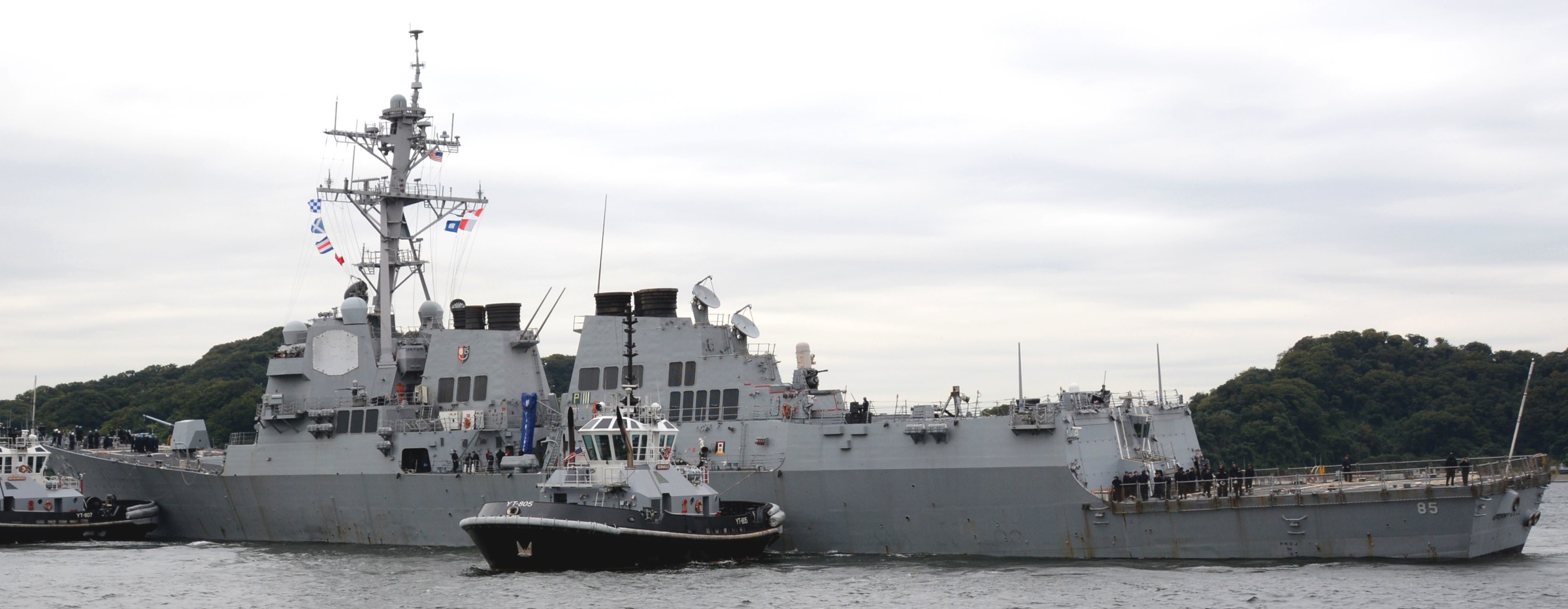 returning to Fleet Activities Yokosuka, Japan - October 5, 2015 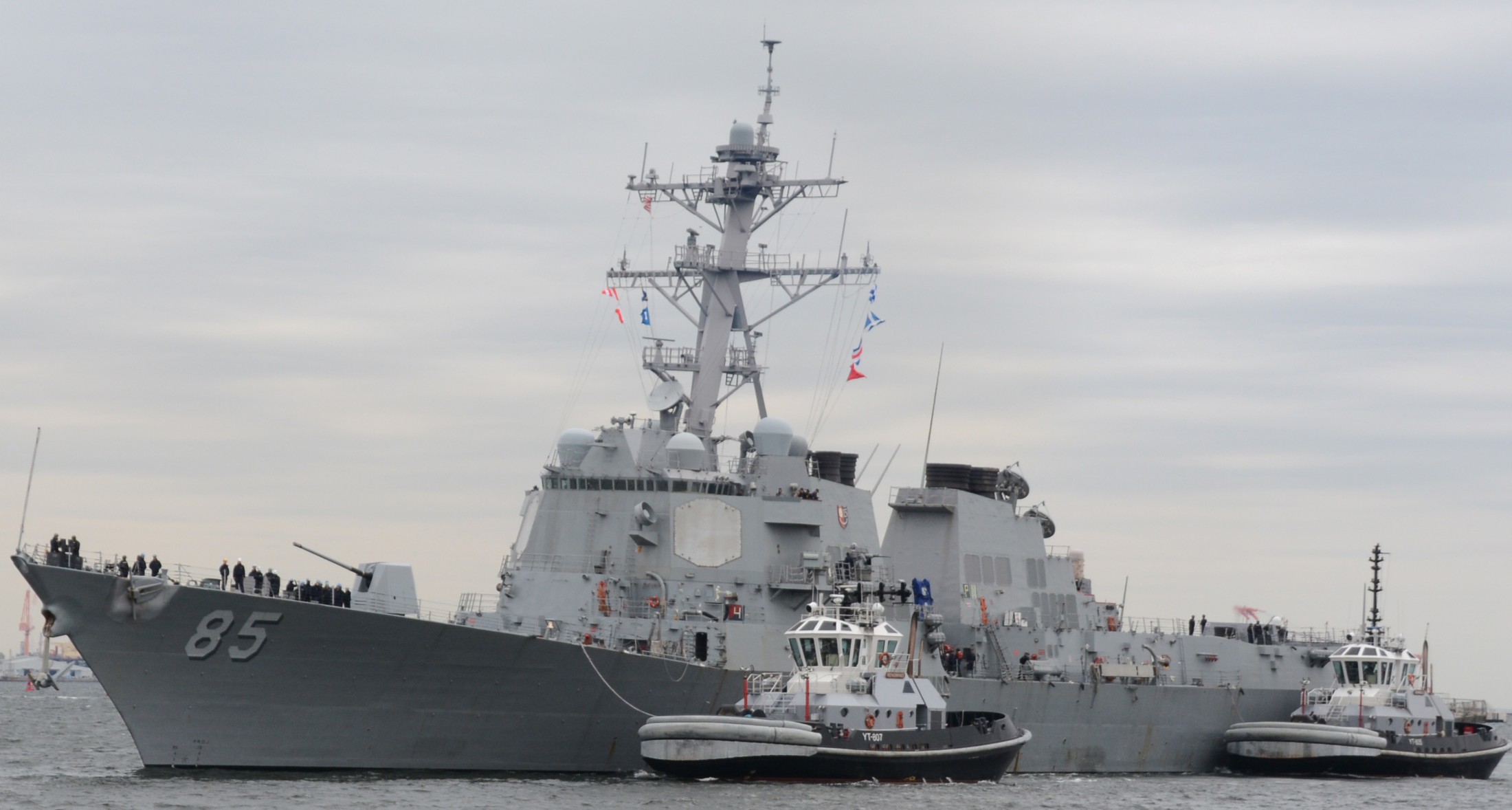 returning to Fleet Activities Yokosuka, Japan - October 5, 2015 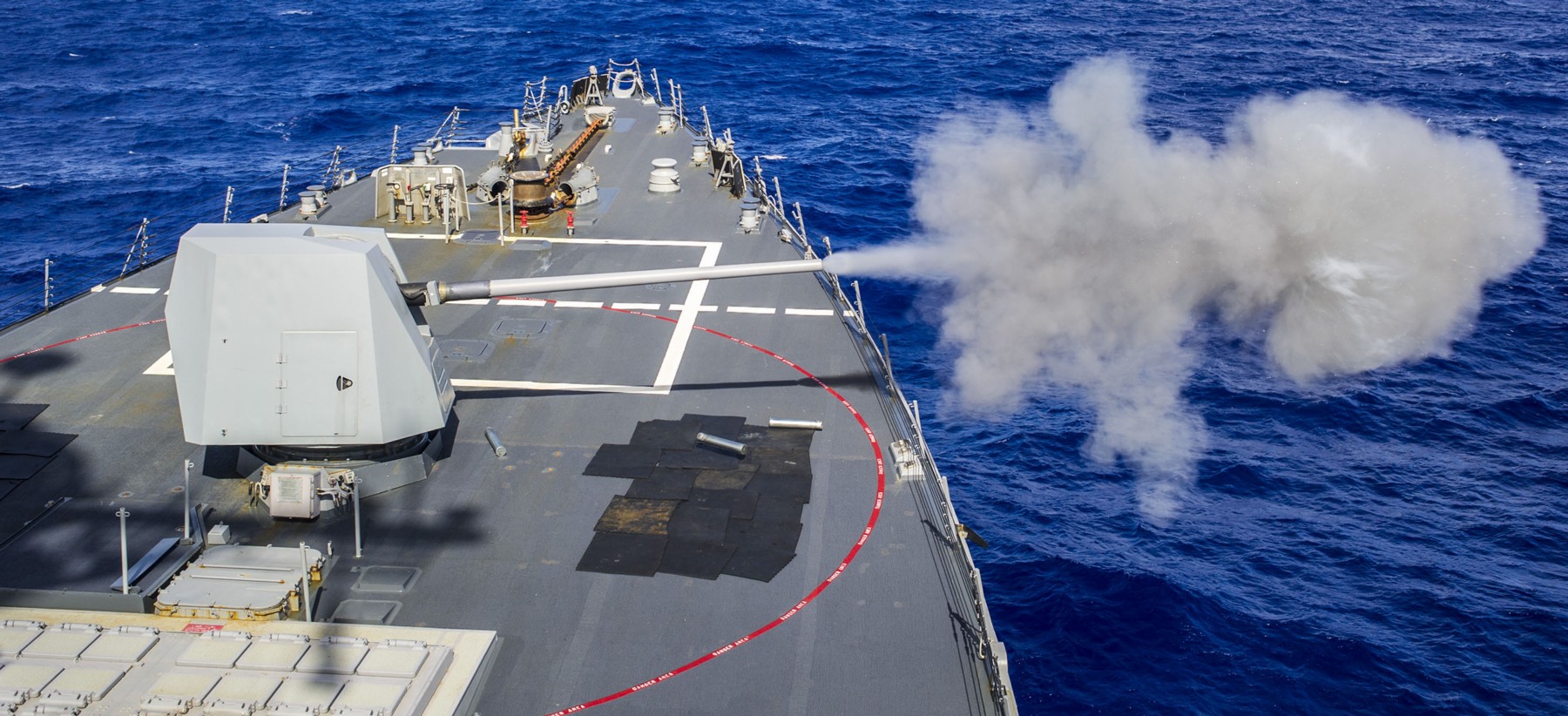 Mk.45 Mod.4 gun fire during Exercise Multi Sail - off Guam - March 2014 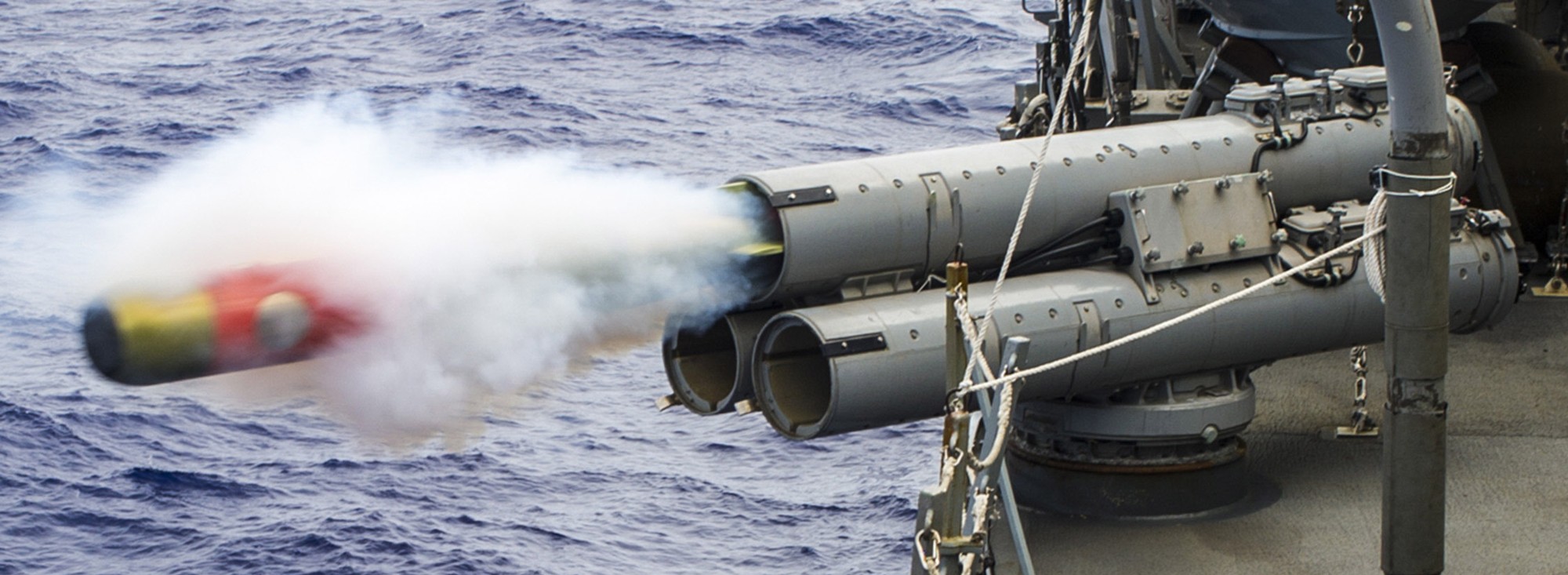 Mk.46 torpedo exercise during Exercise Multi Sail - off Guam - March 2014 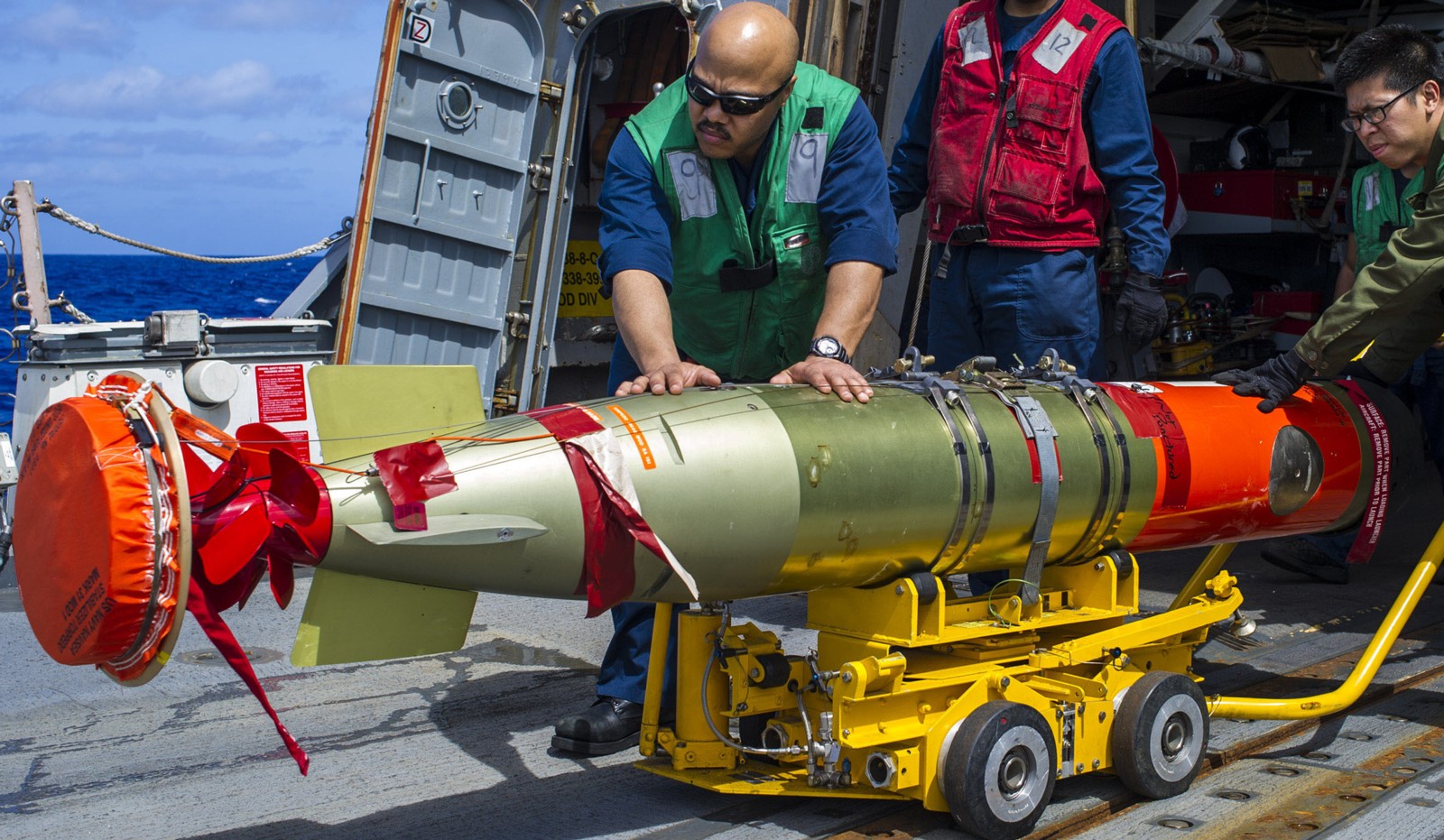 Mk.46 torpedo exercise during Exercise Multi Sail - off Guam - March 2014 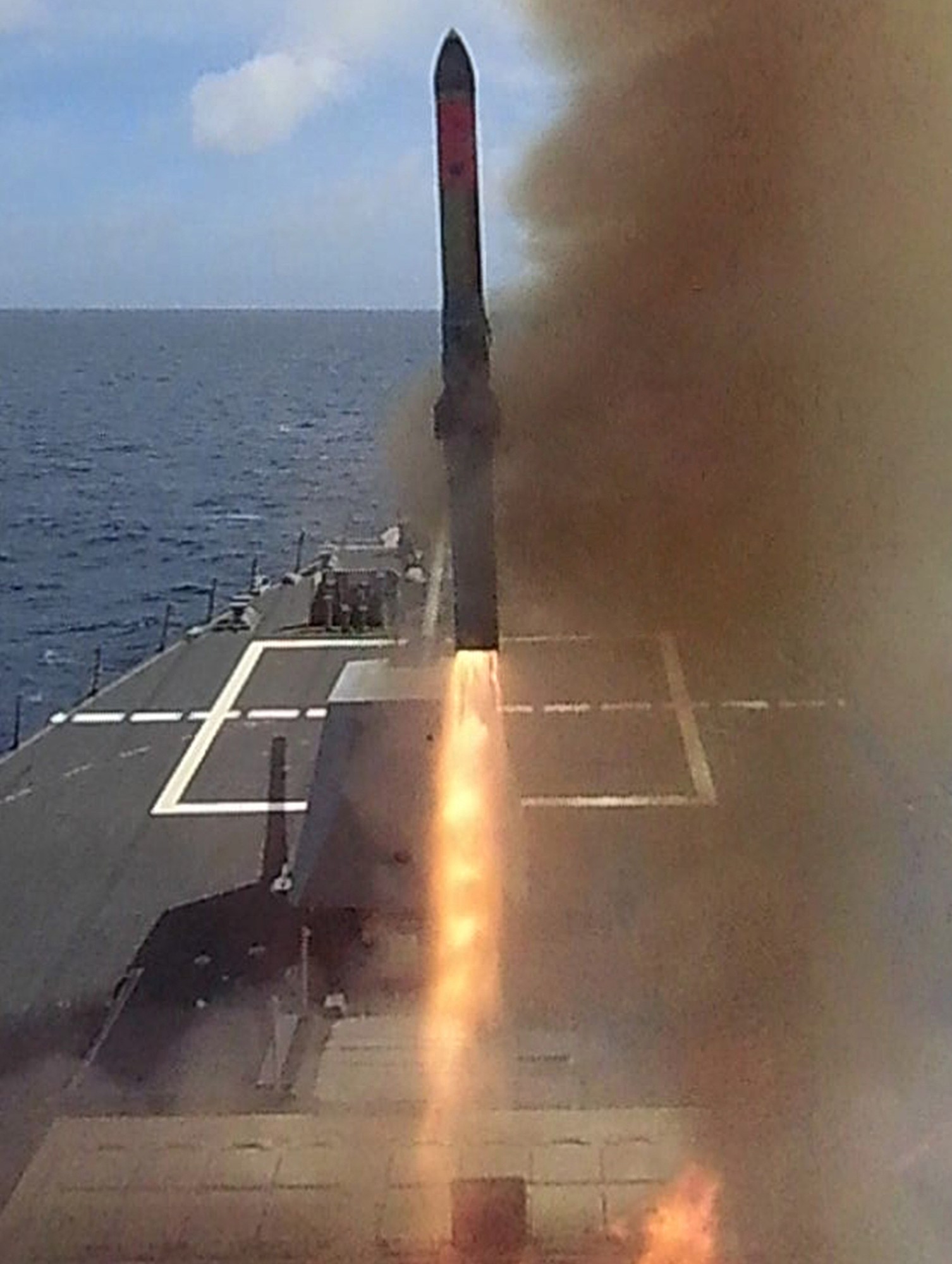 RUM-139 vertical launched anti-ship rocket (VL-ASROC) was fired during Exercise Multi Sail - off Guam - March 2014 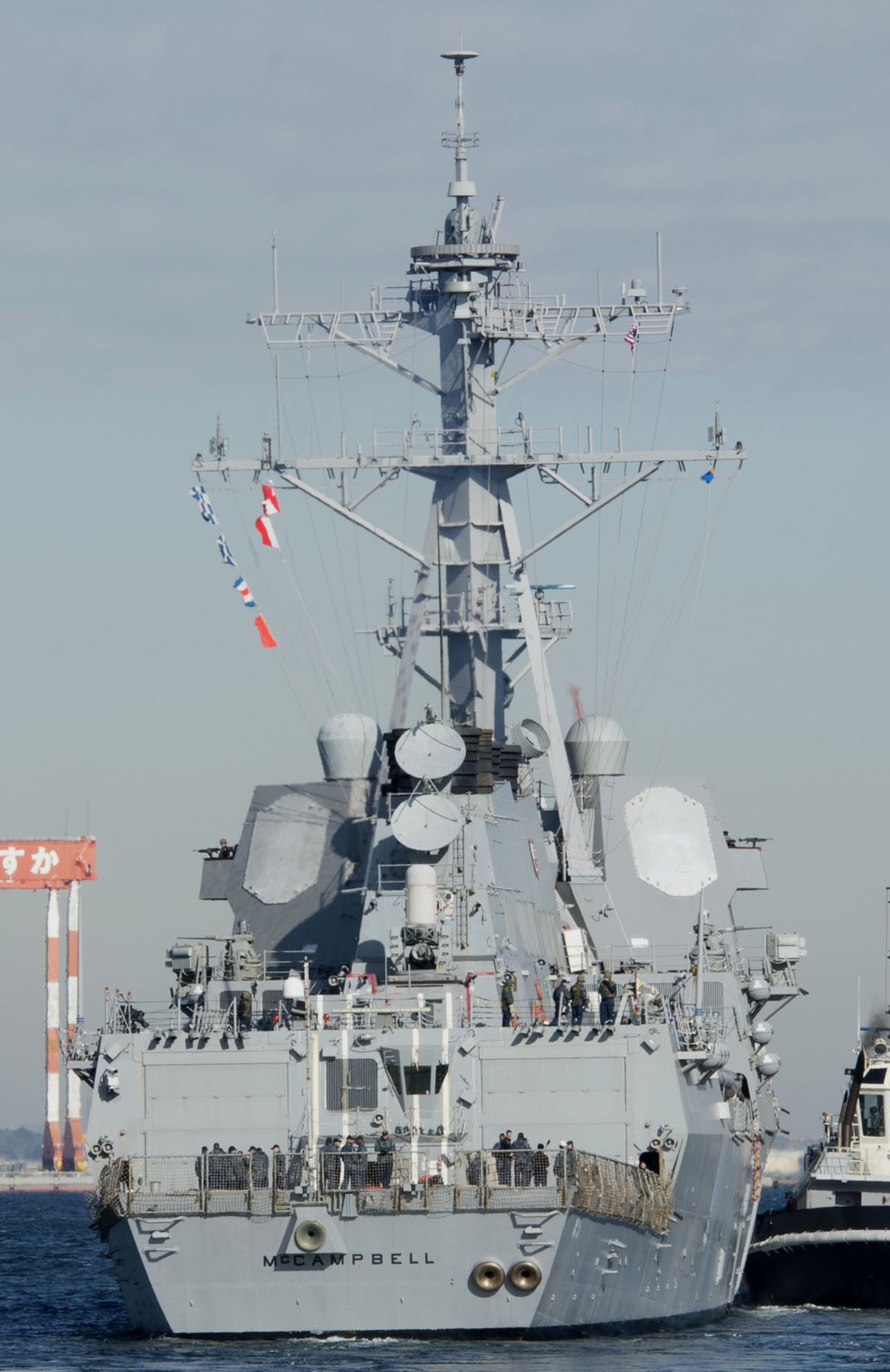 departing Fleet Activities Yokosuka, Japan - January 16, 2014 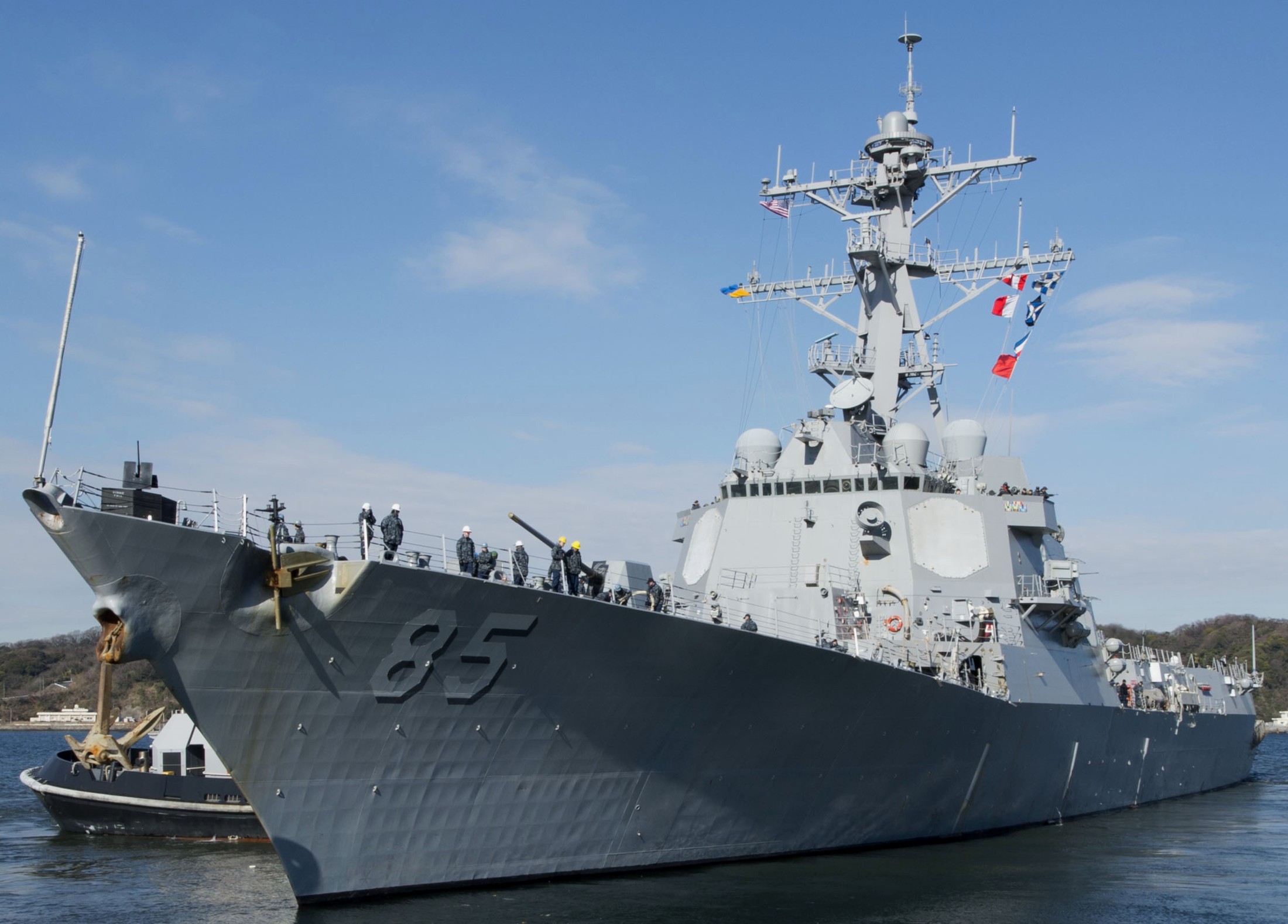 departing Fleet Activities Yokosuka, Japan - January 16, 2014  Changi Naval Base, Singapore - October 2013 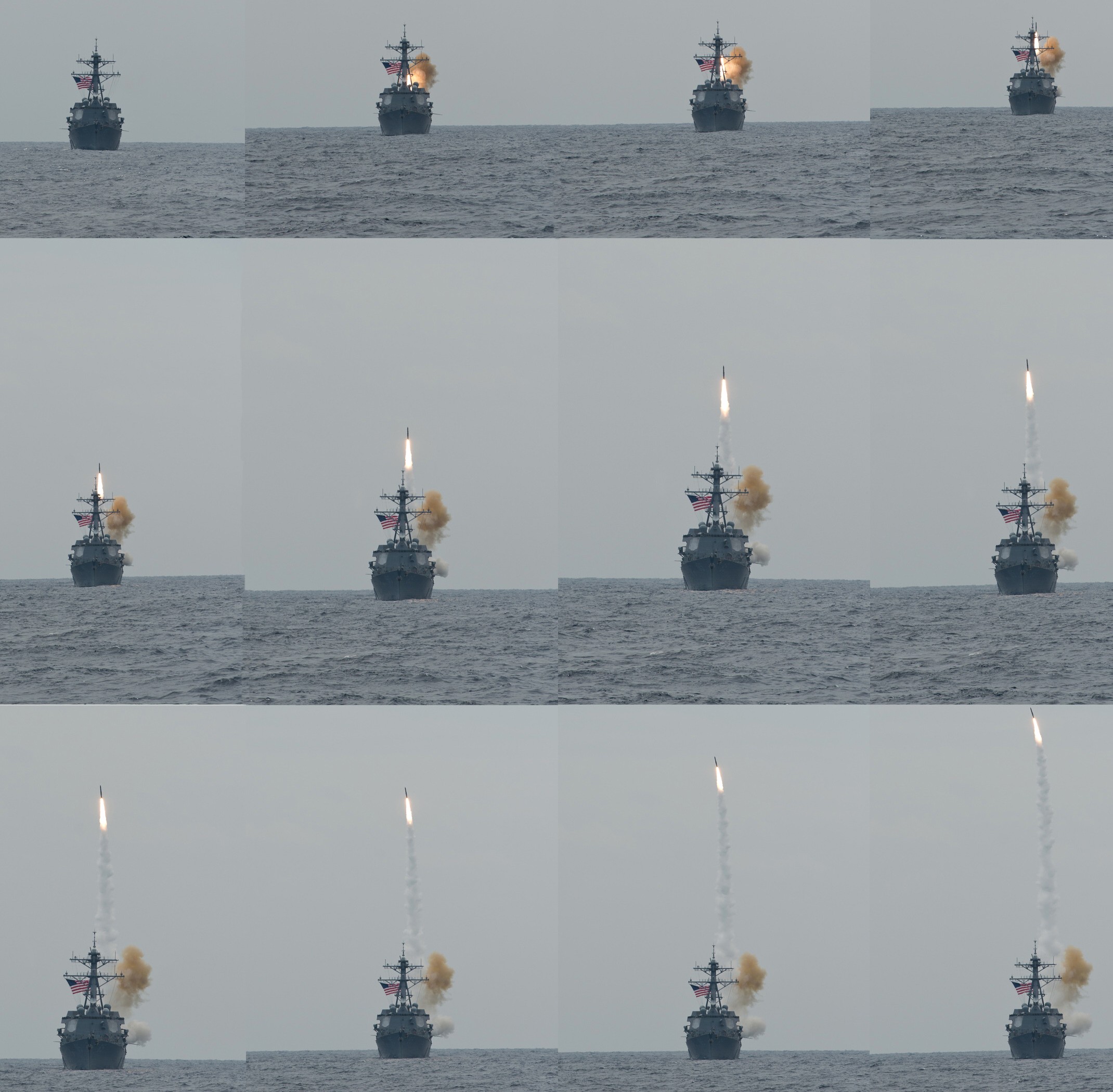 firing a Standard Missile SM-2 during Exercise Multi Sail 13 - April 2013 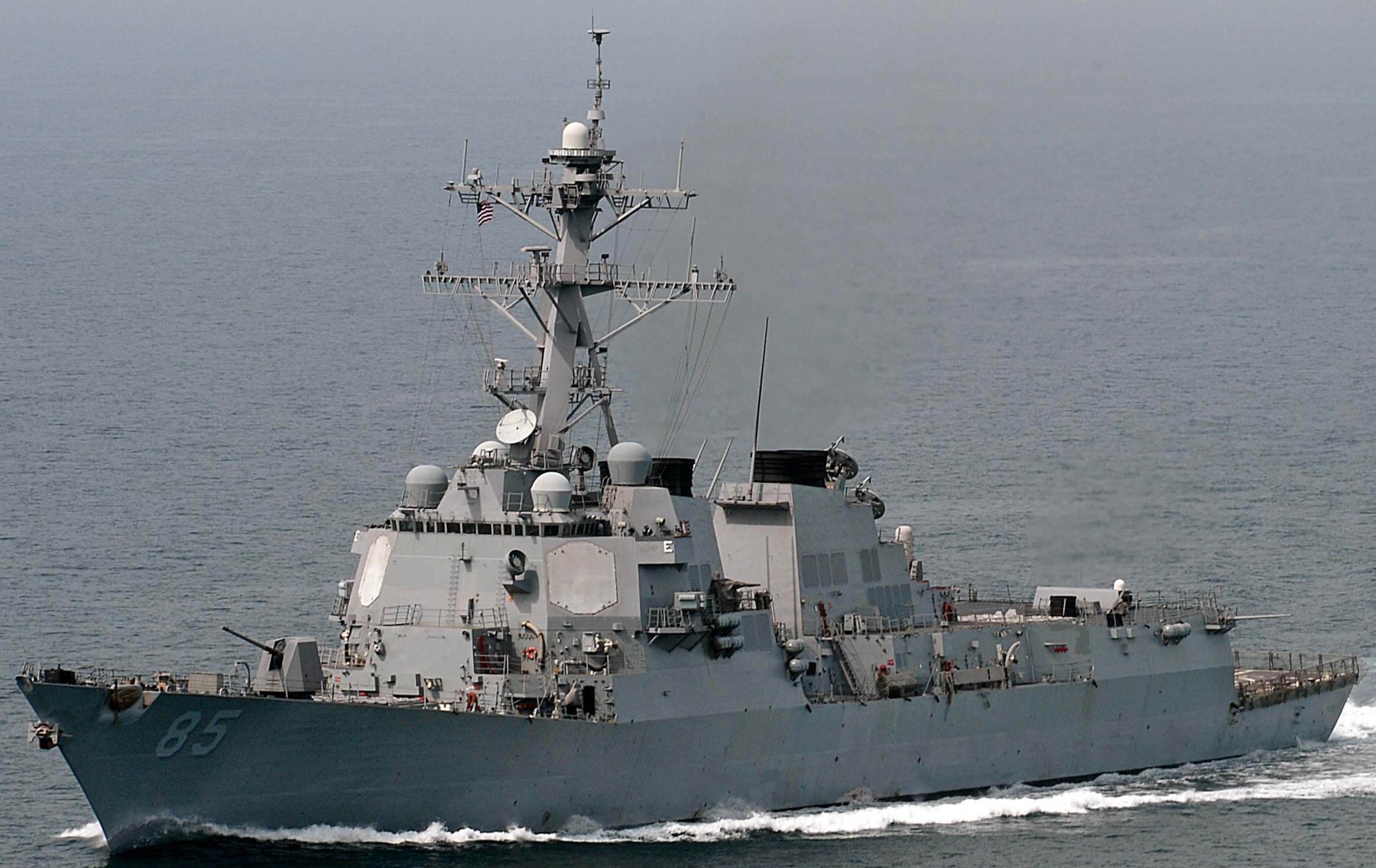 during Exercise Foal Eagle, Yellow Sea - March 2013 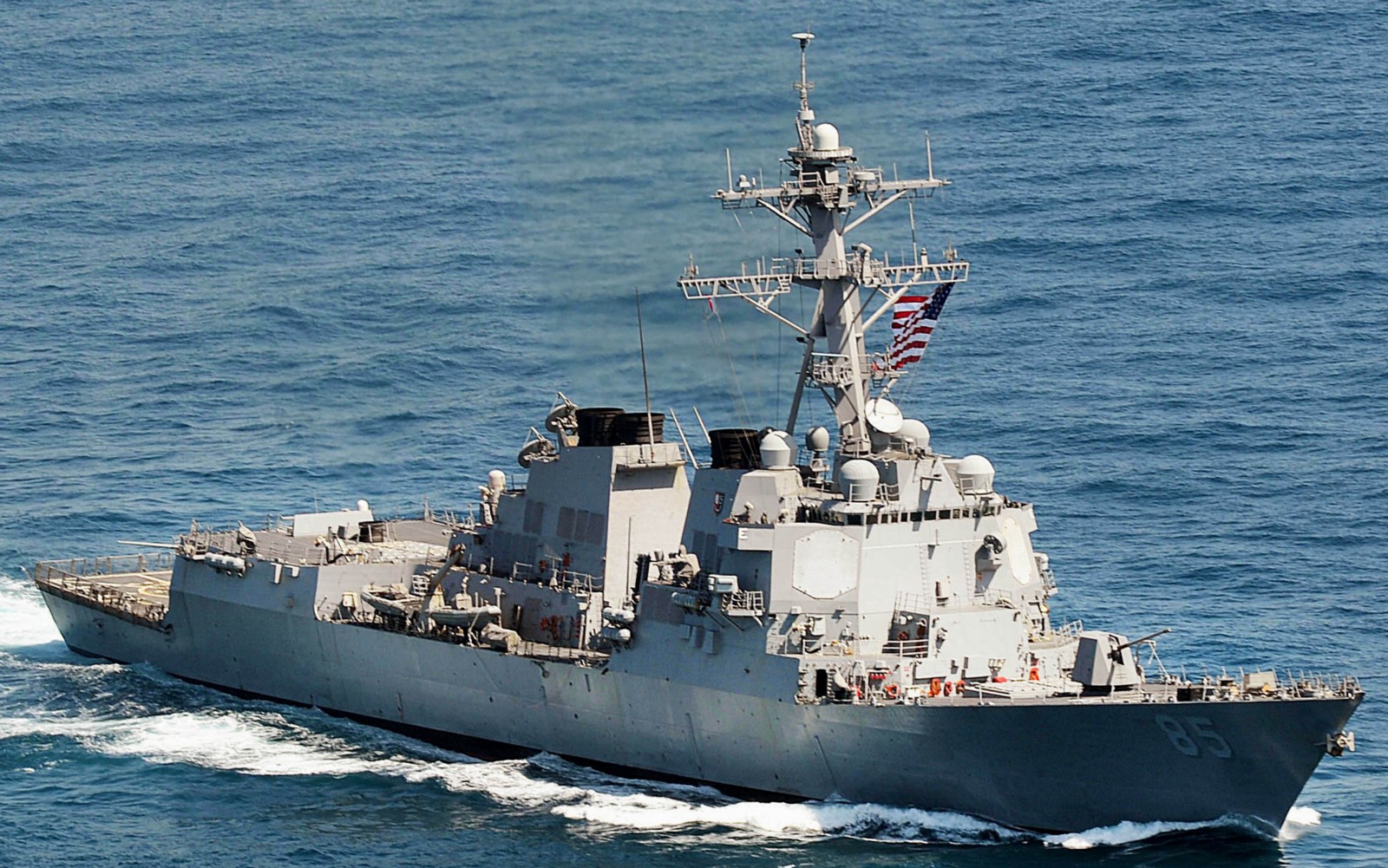 during Exercise Foal Eagle, Yellow Sea - March 2013  Pyeongtaek, Republic of Korea - March 2013 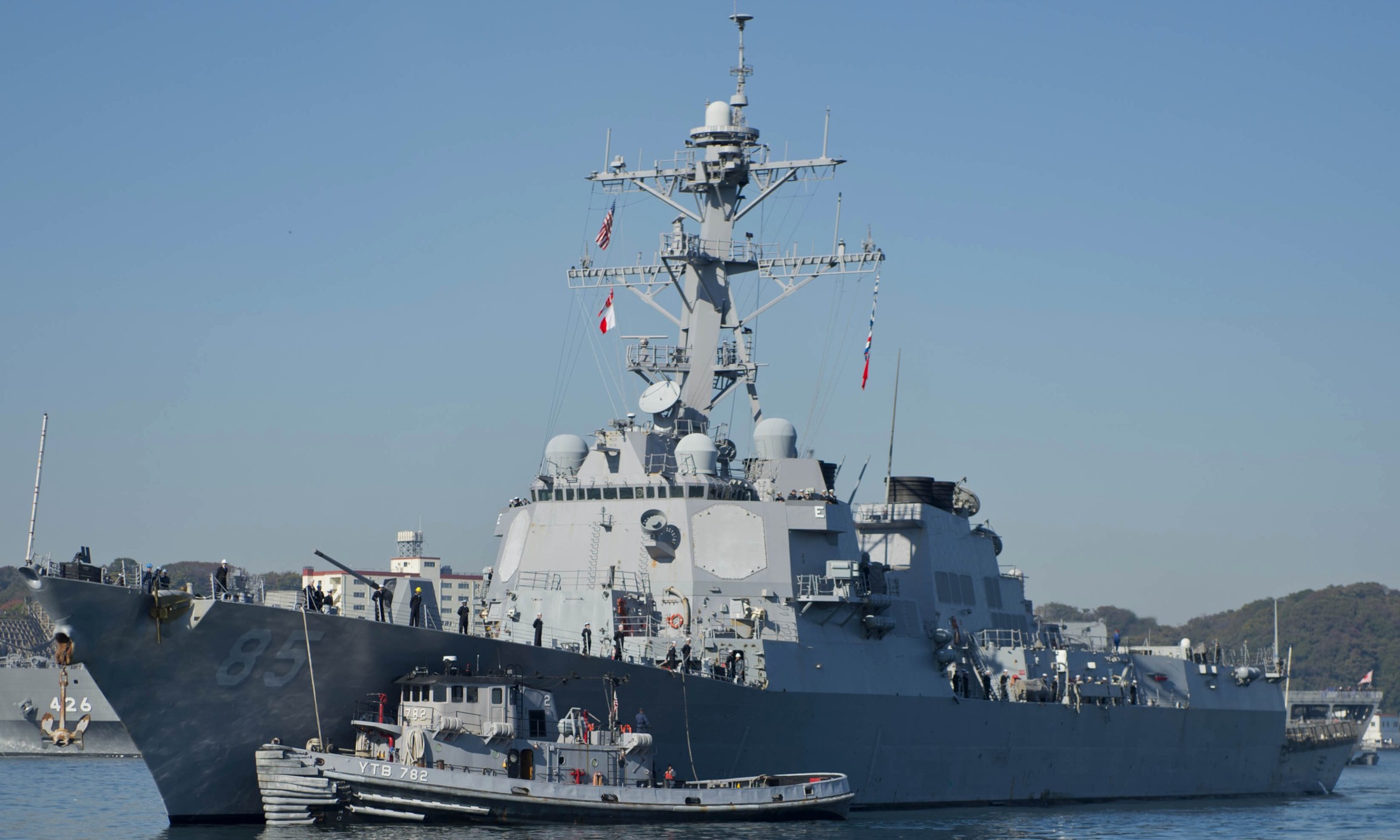 returning to Fleet Activities Yokosuka, Japan - November 20, 2012 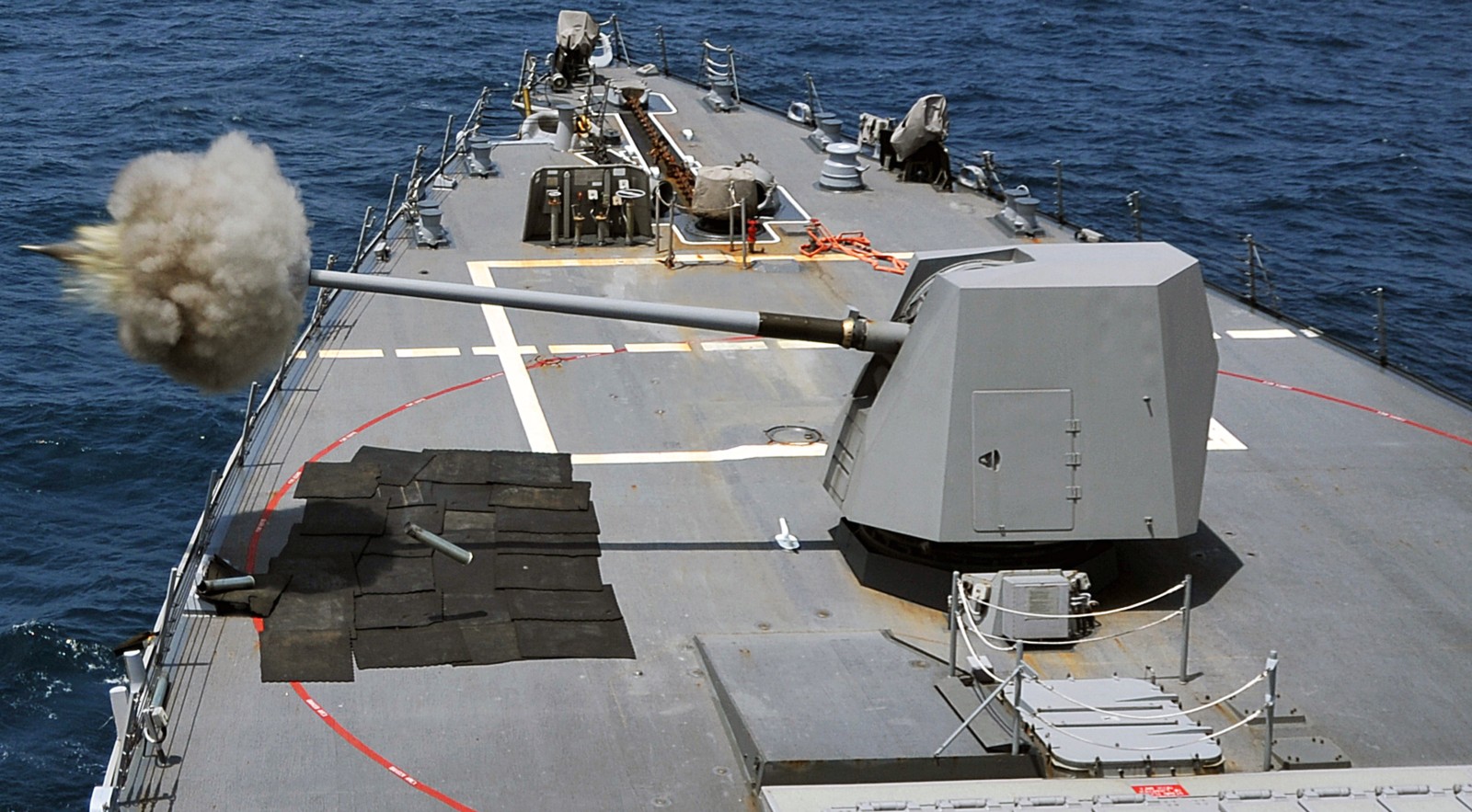 Mk.45 Mod.4 gun fire - Pacific Ocean - October 2012 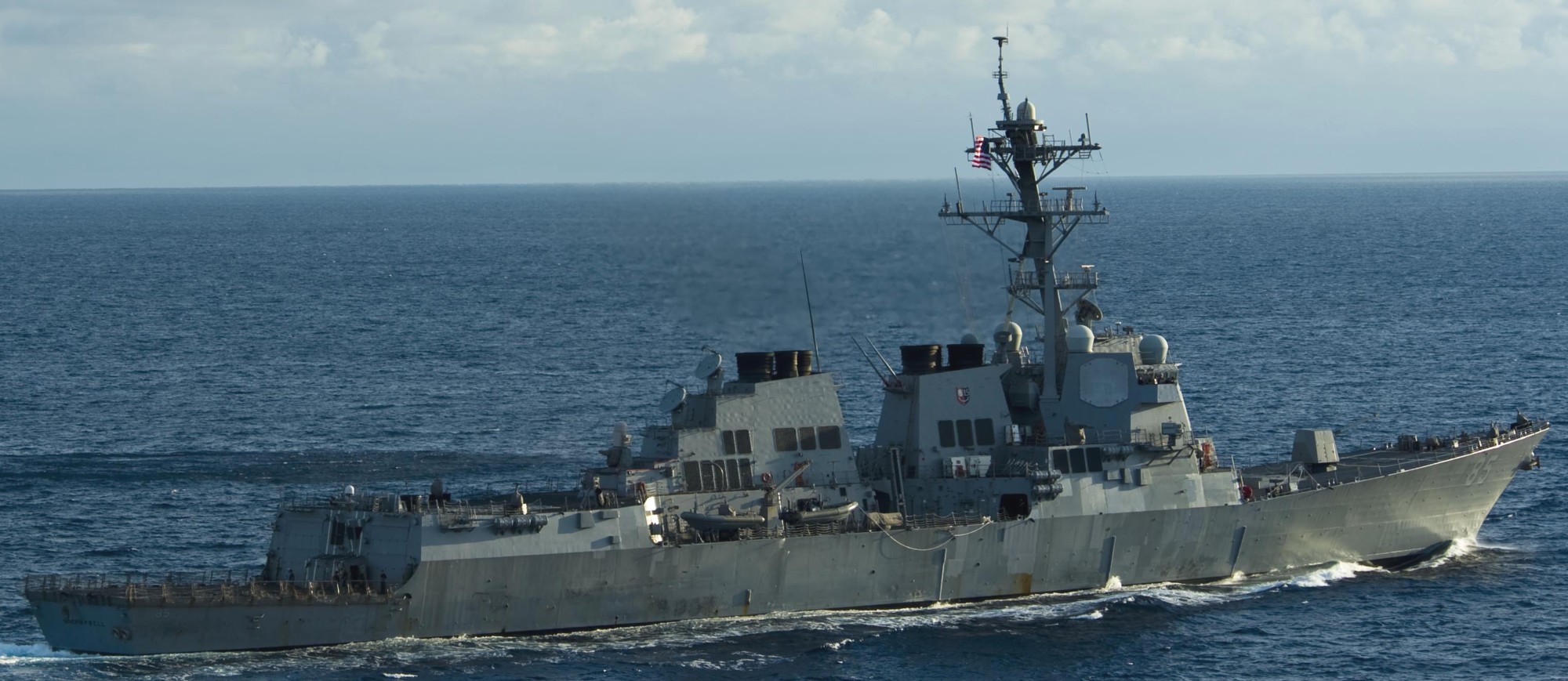 Andaman Sea - October 2012 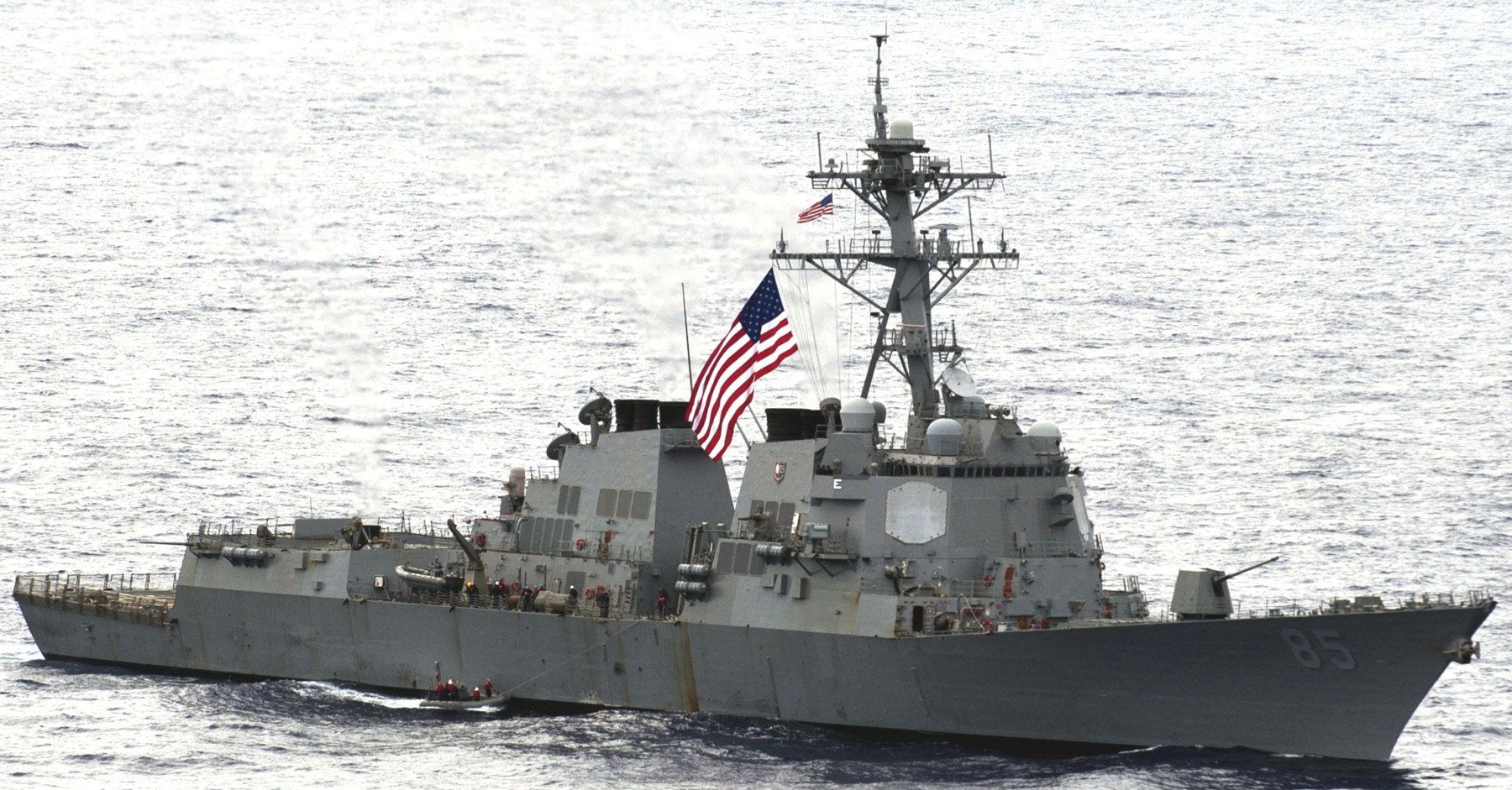 Pacific Ocean - September 2012 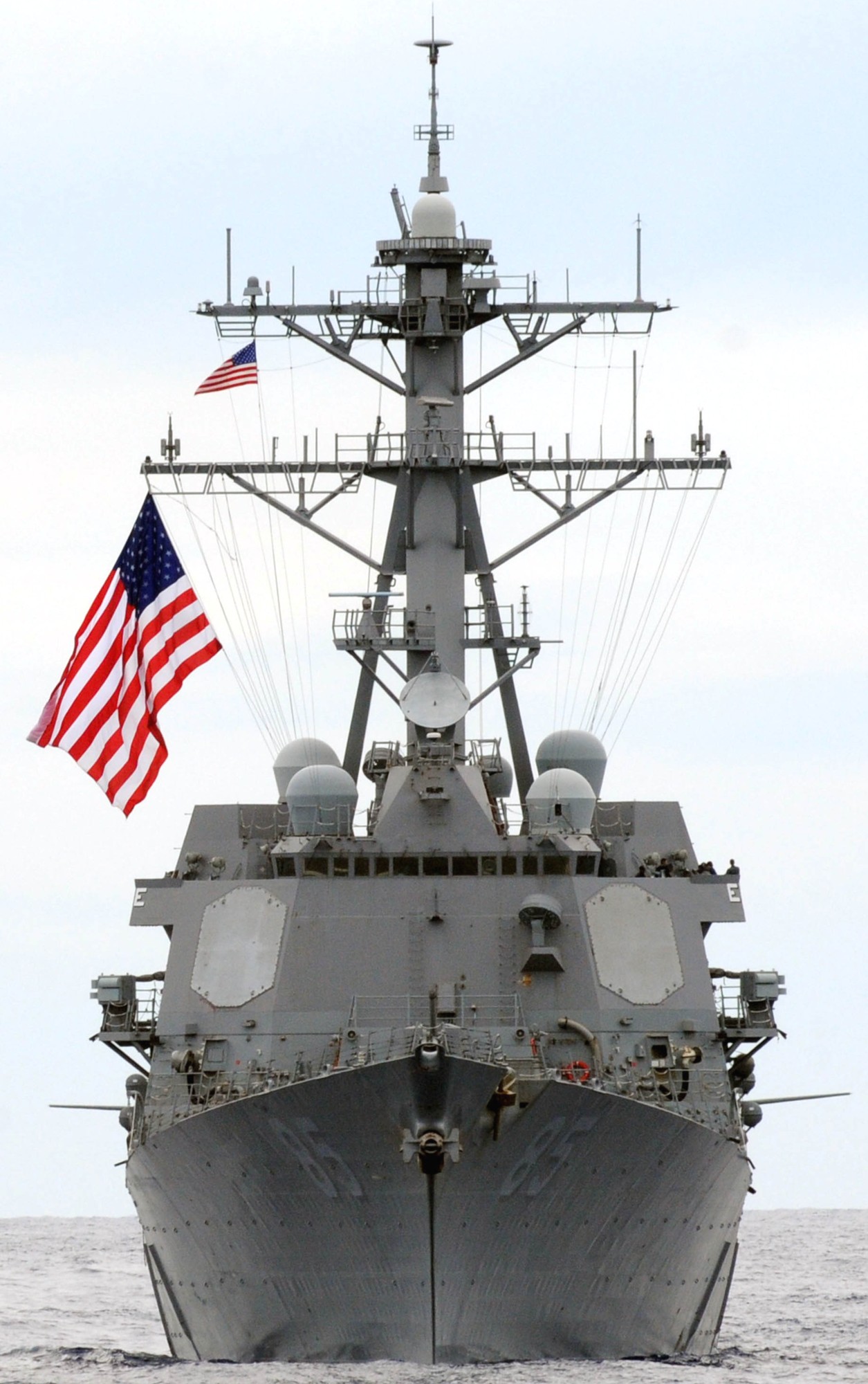 Pacific Ocean - September 2012 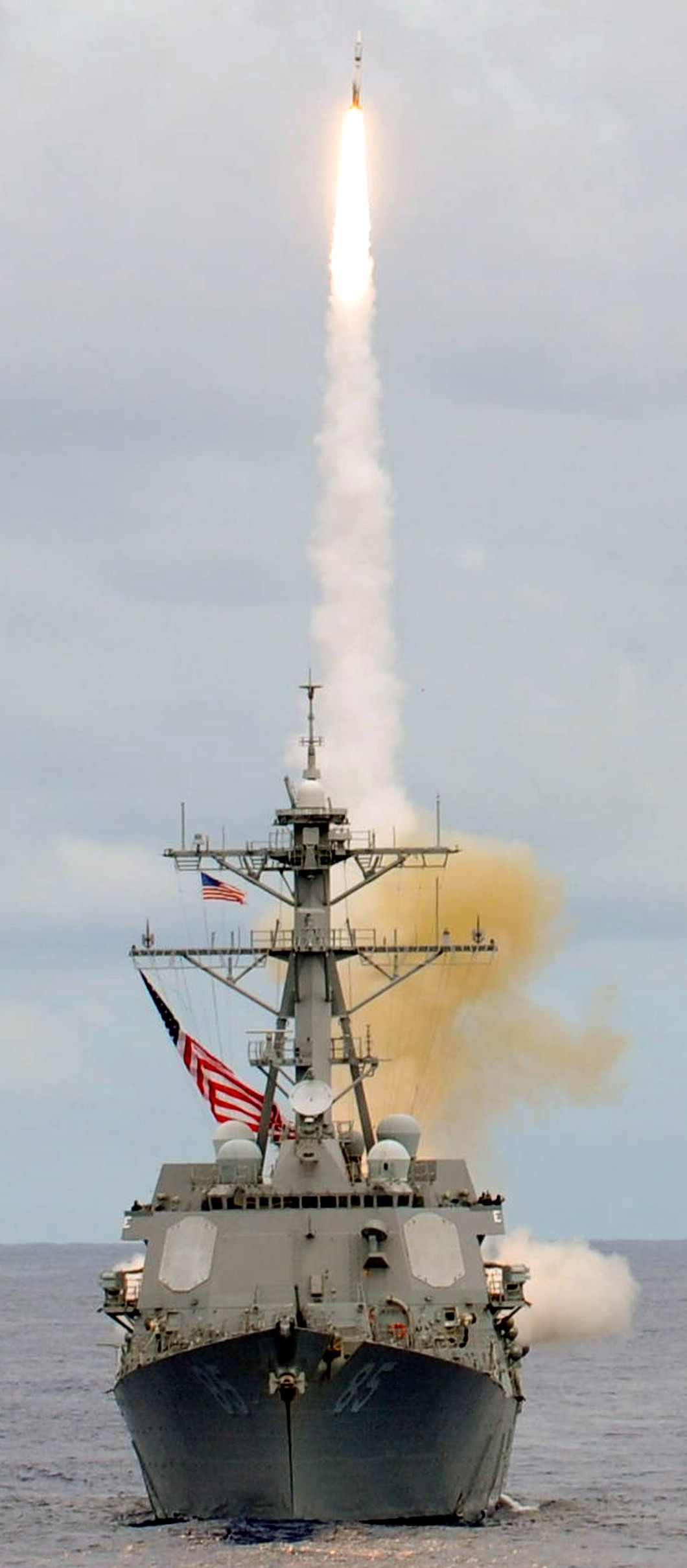
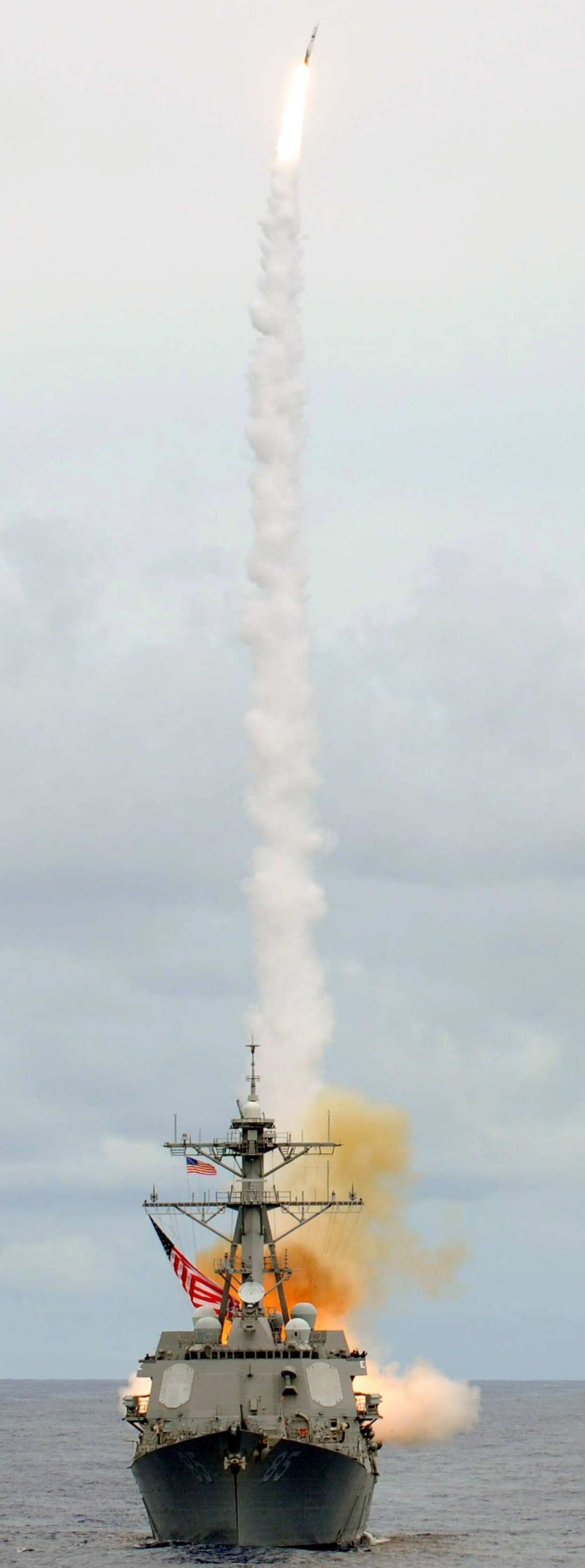 firing a Standard Missile SM-2MR - Pacific Ocean - September 2012 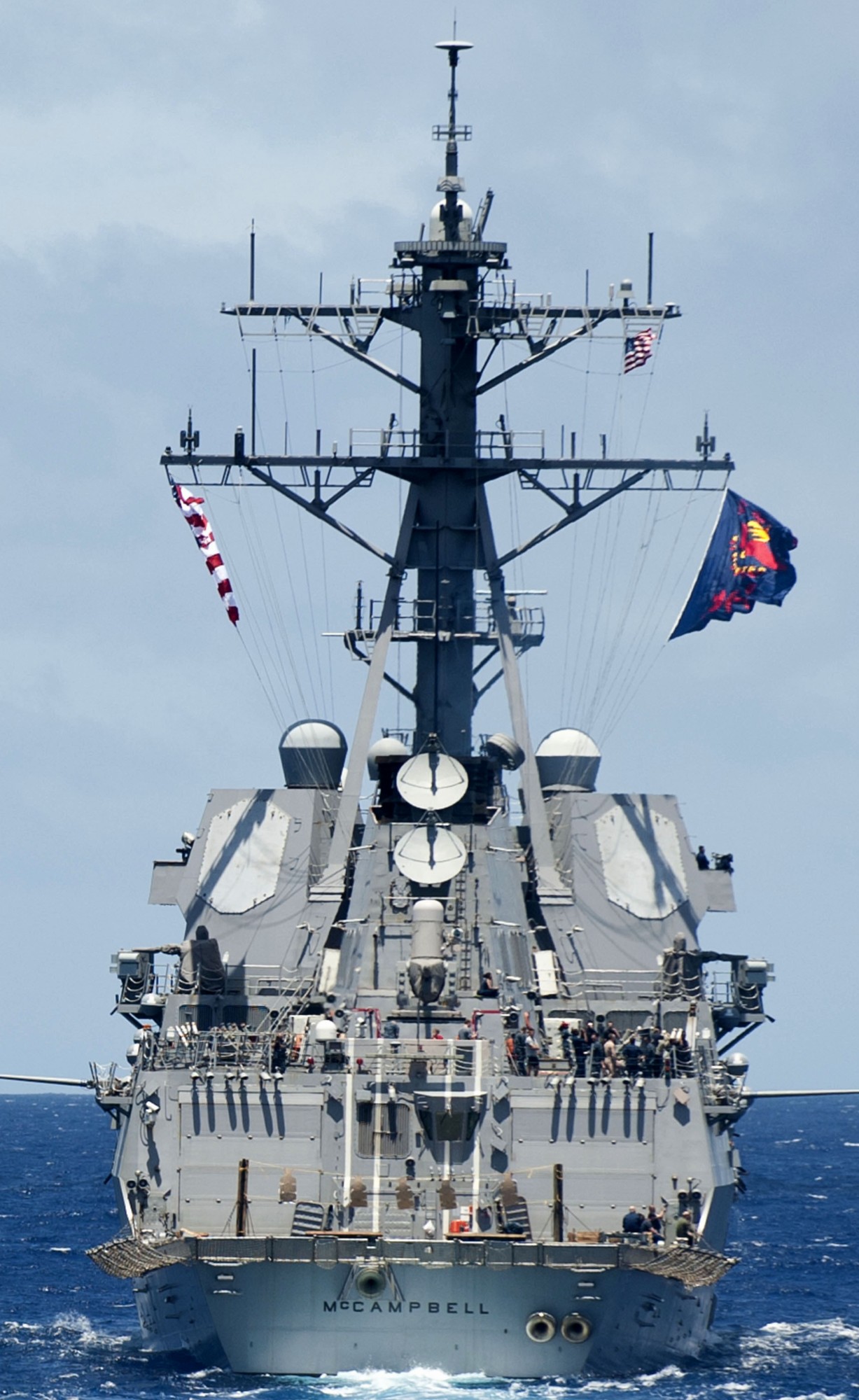 South China Sea - July 2012 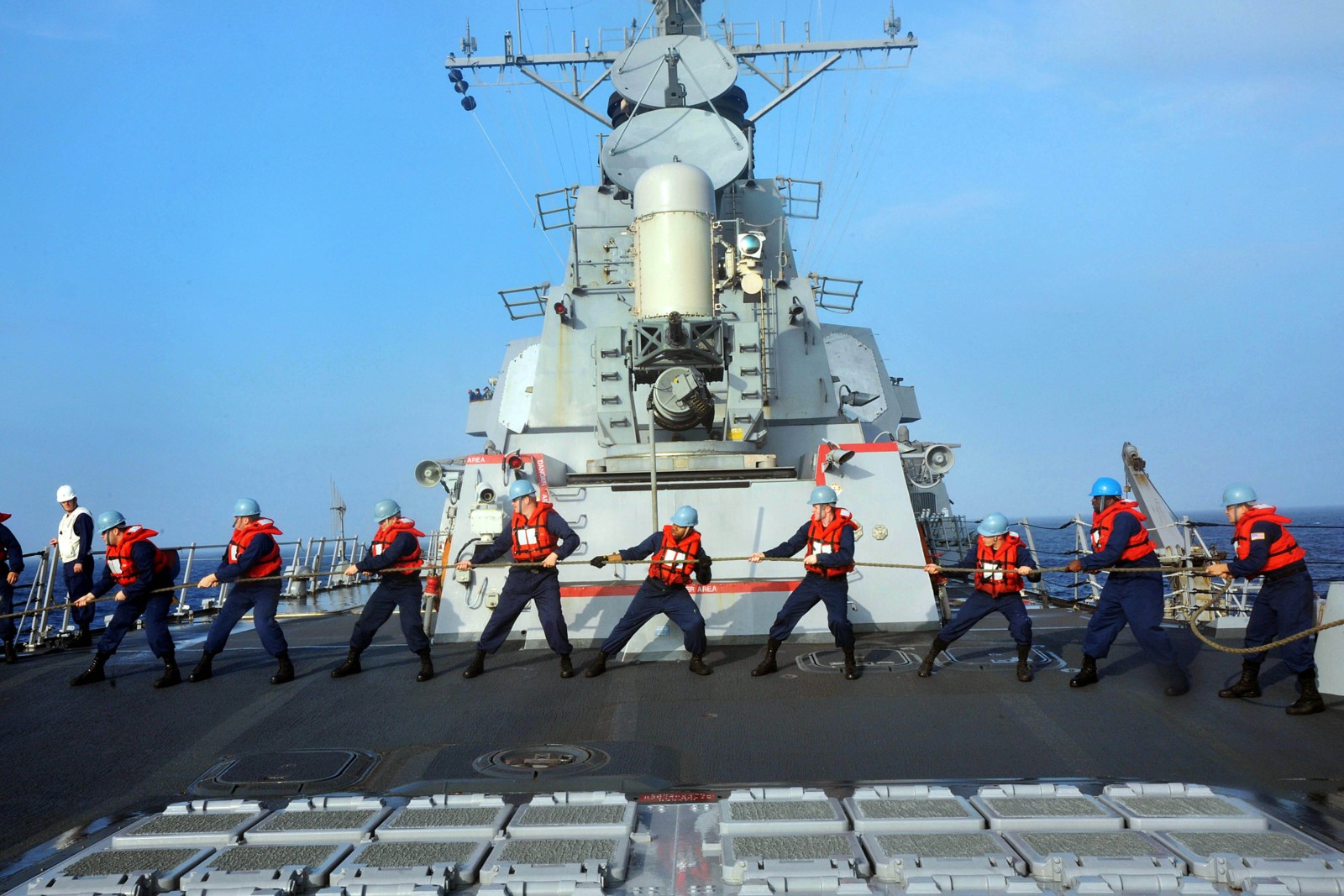 East China Sea - July 2012 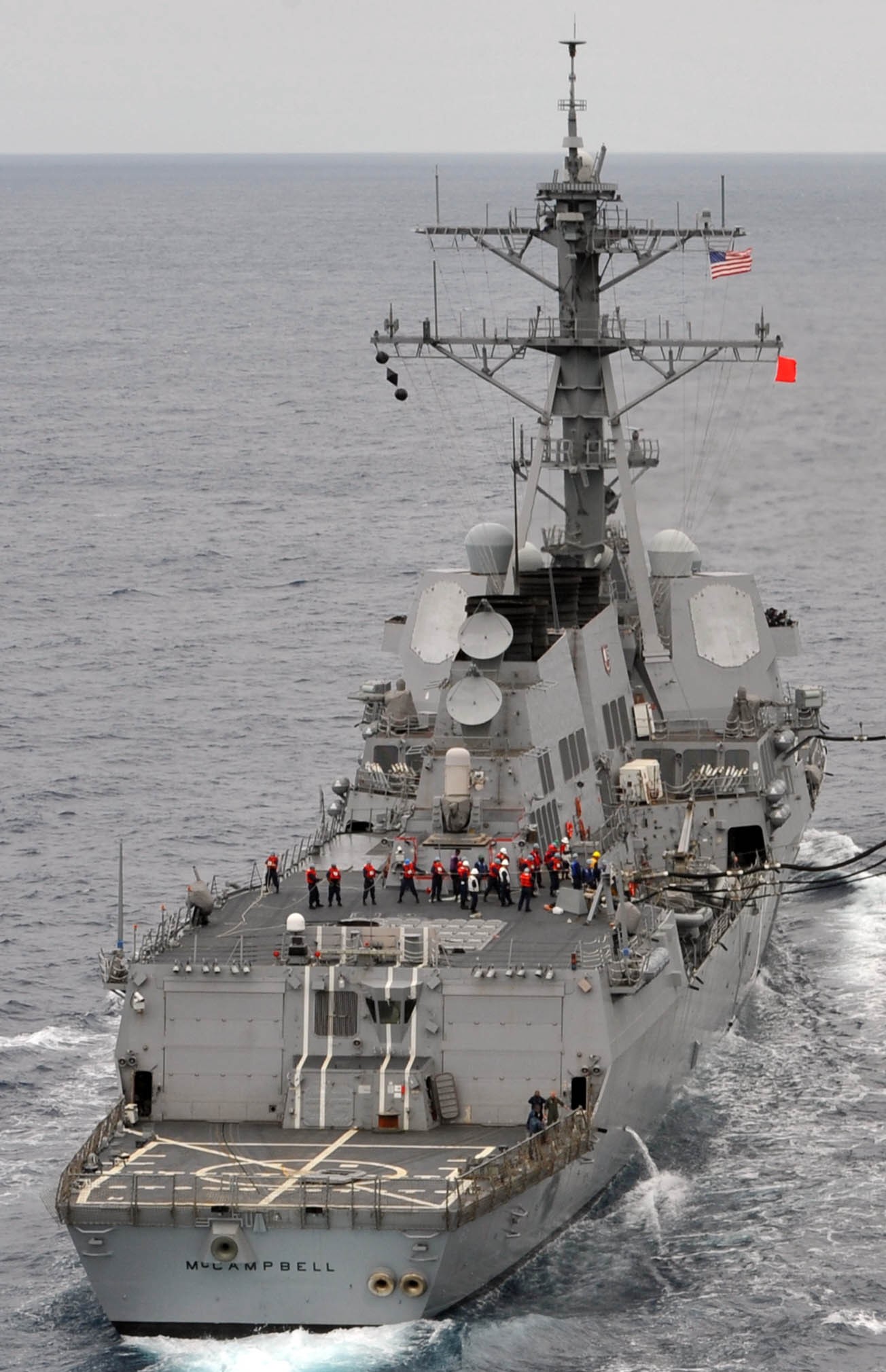 East China Sea - June 2012 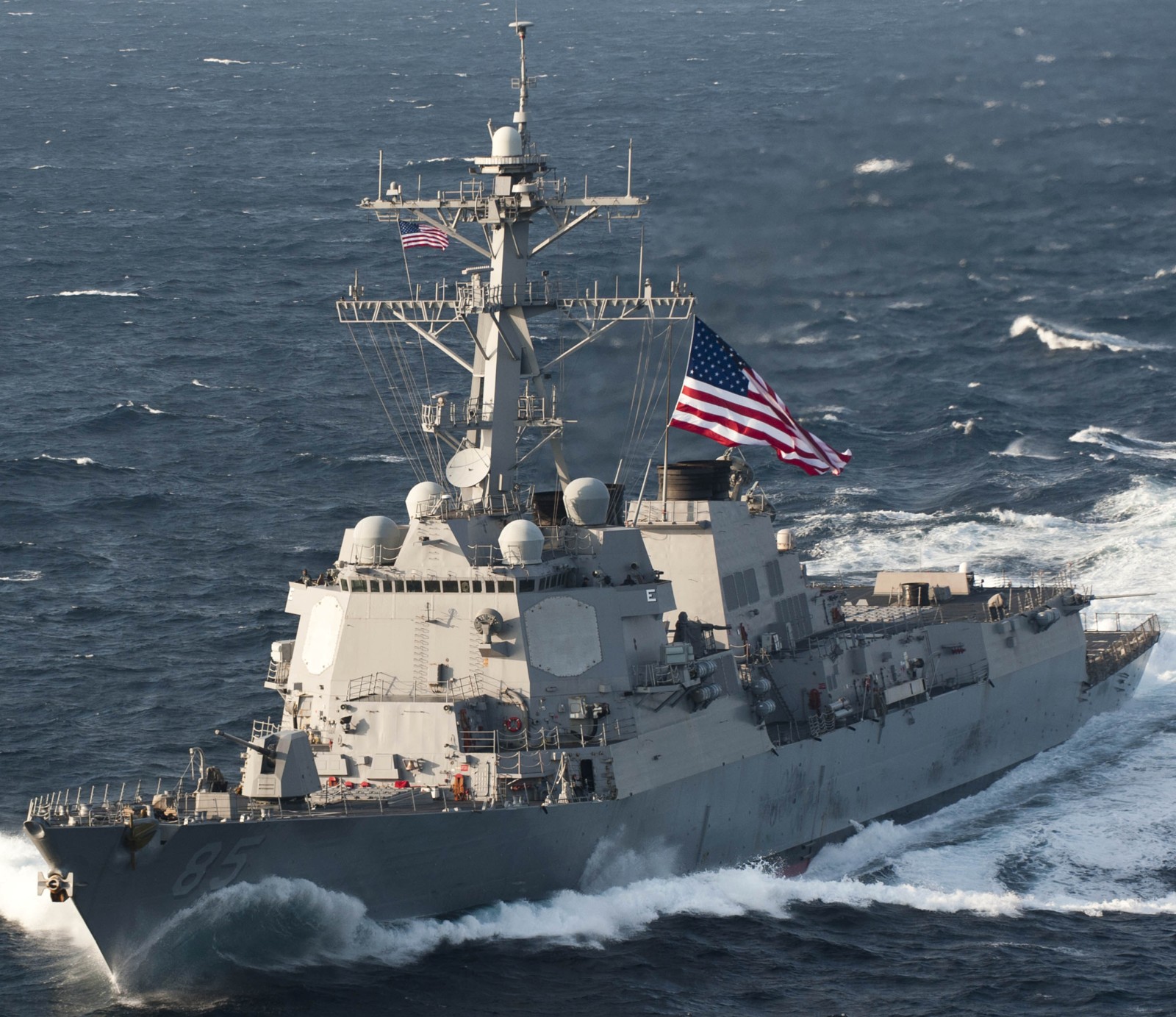 East China Sea - June 2012  departing Fleet Activities Yokosuka, Japan - May 17, 2012 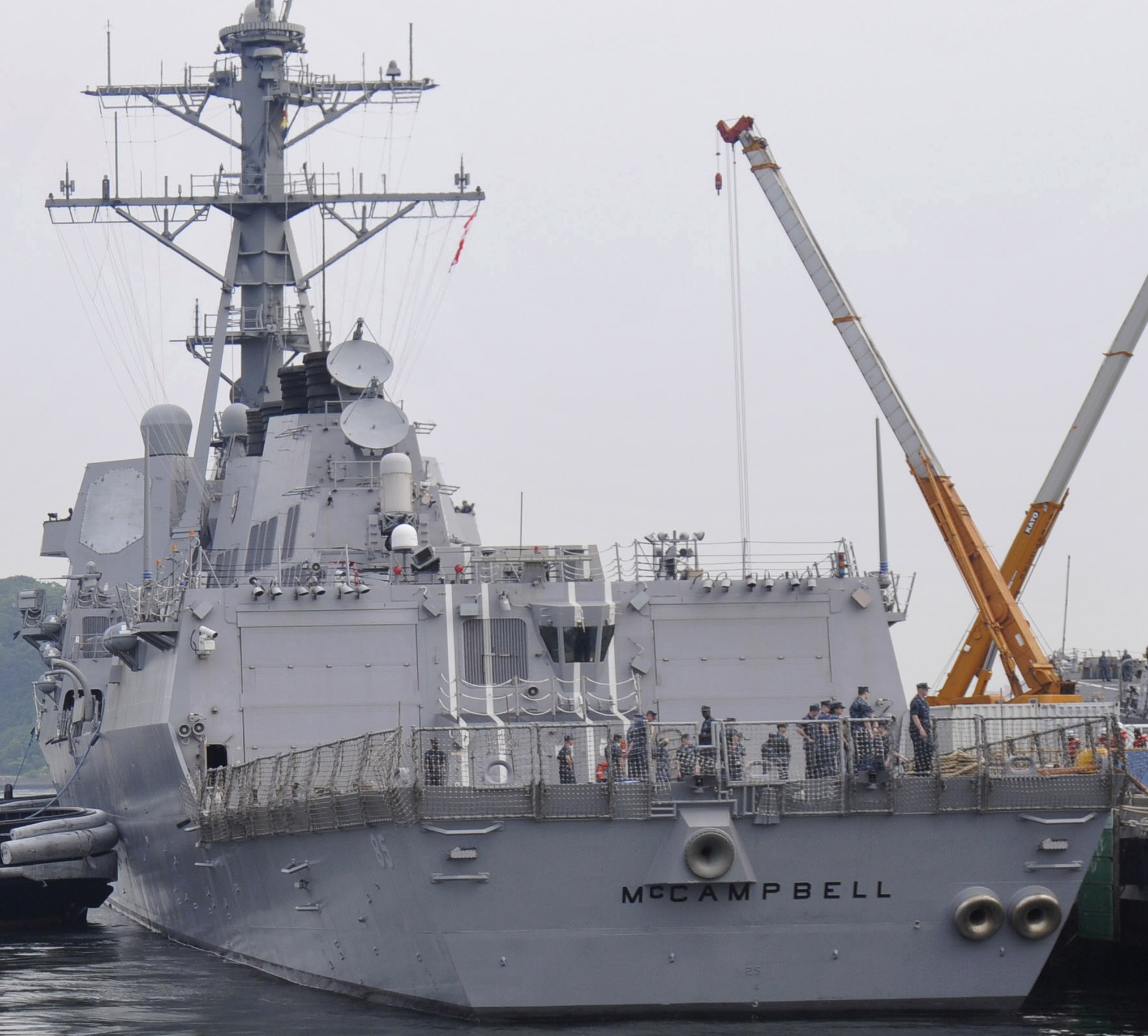 departing Fleet Activities Yokosuka, Japan - May 17, 2012 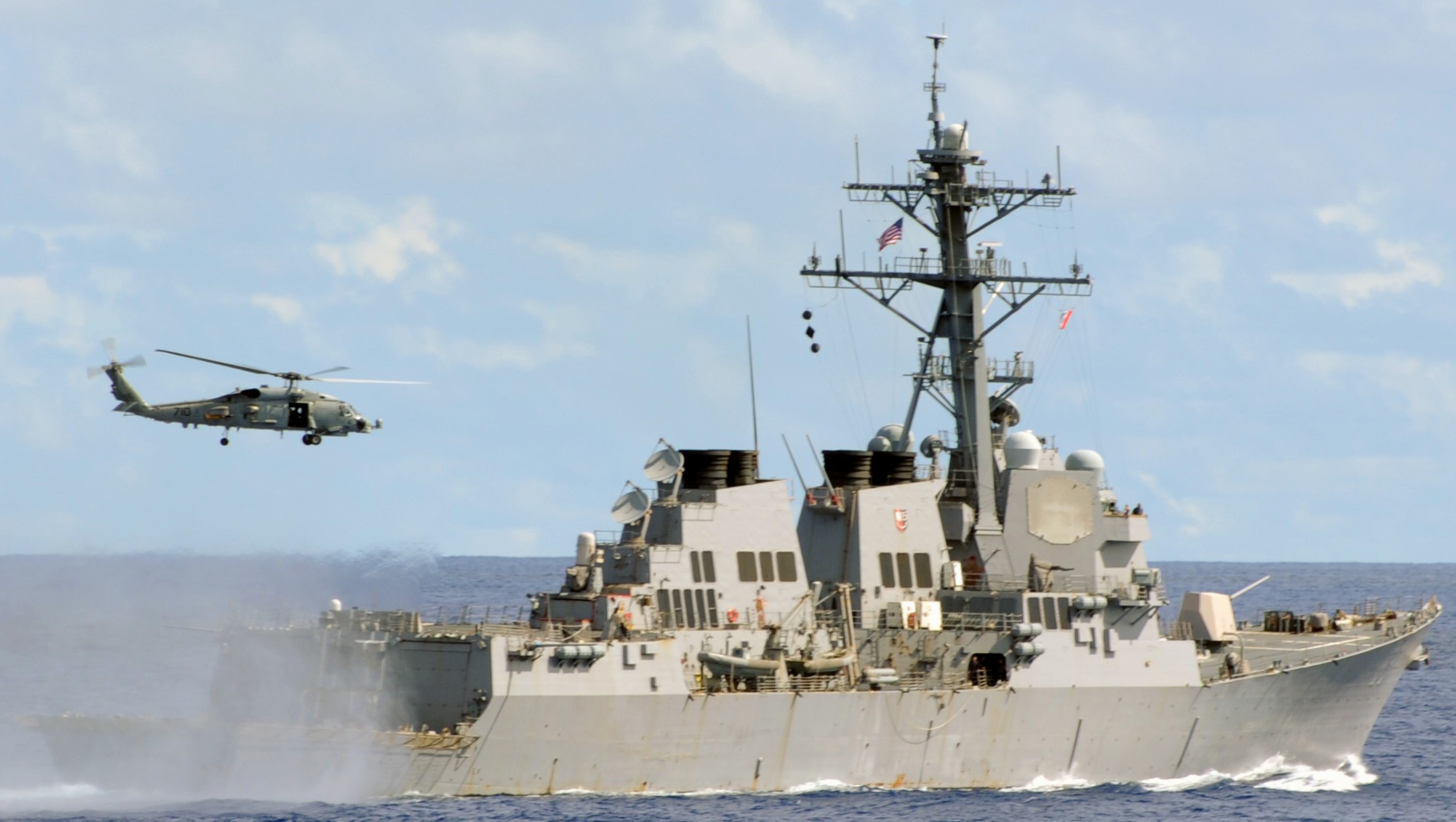 Philippine Sea - October 2011 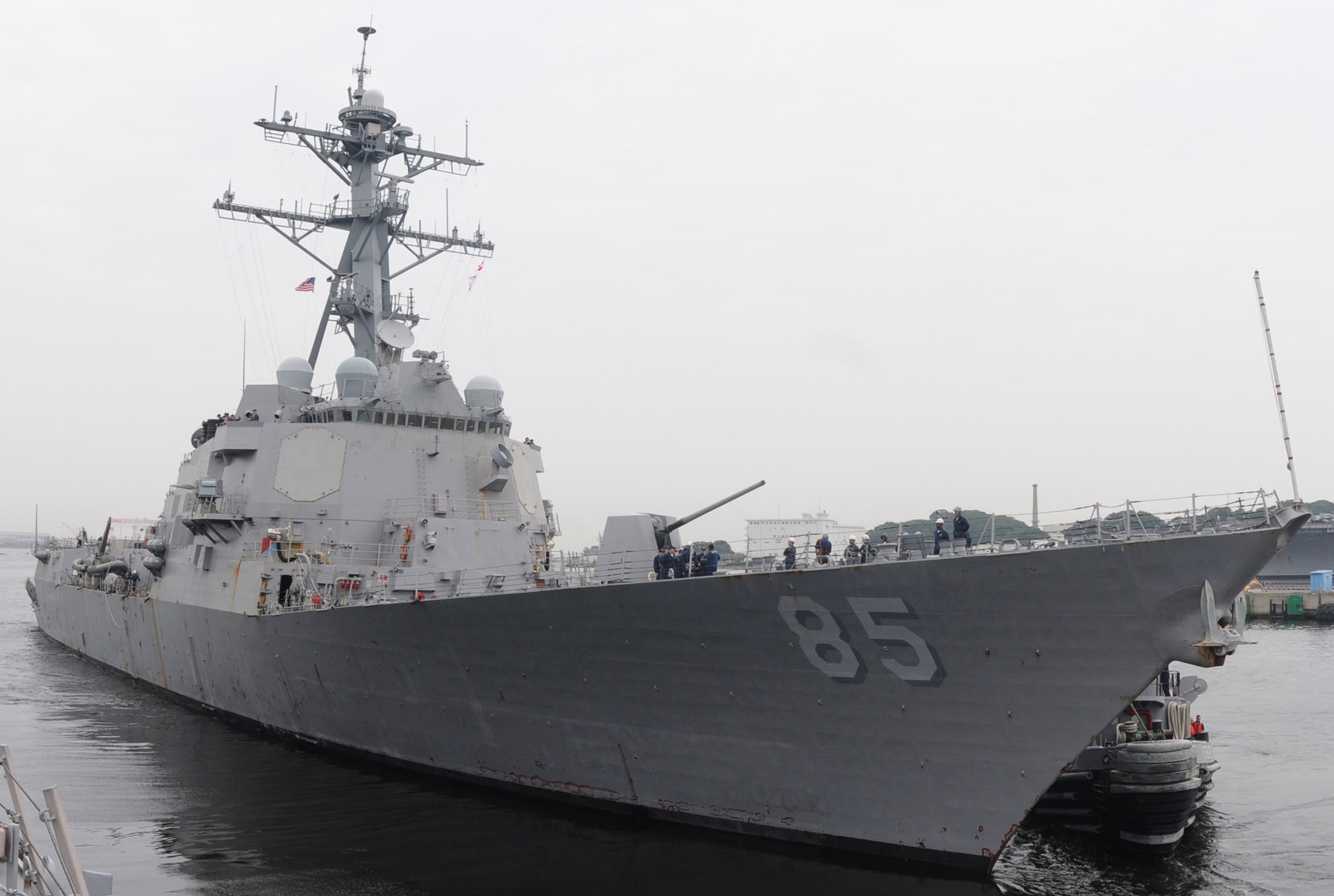 departing Fleet Activities Yokosuka, Japan - July 7, 2010 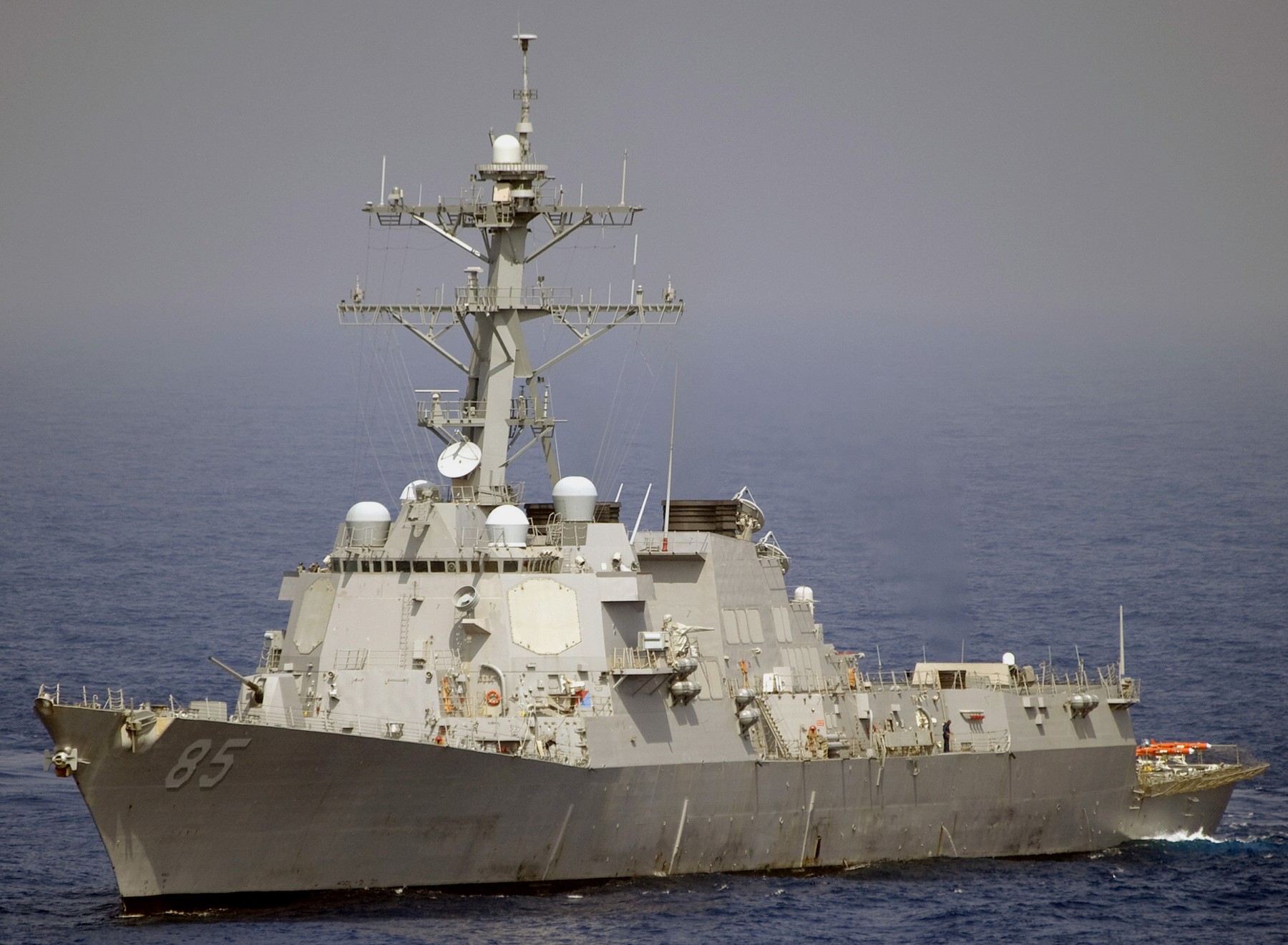 Pacific Ocean - May 2010 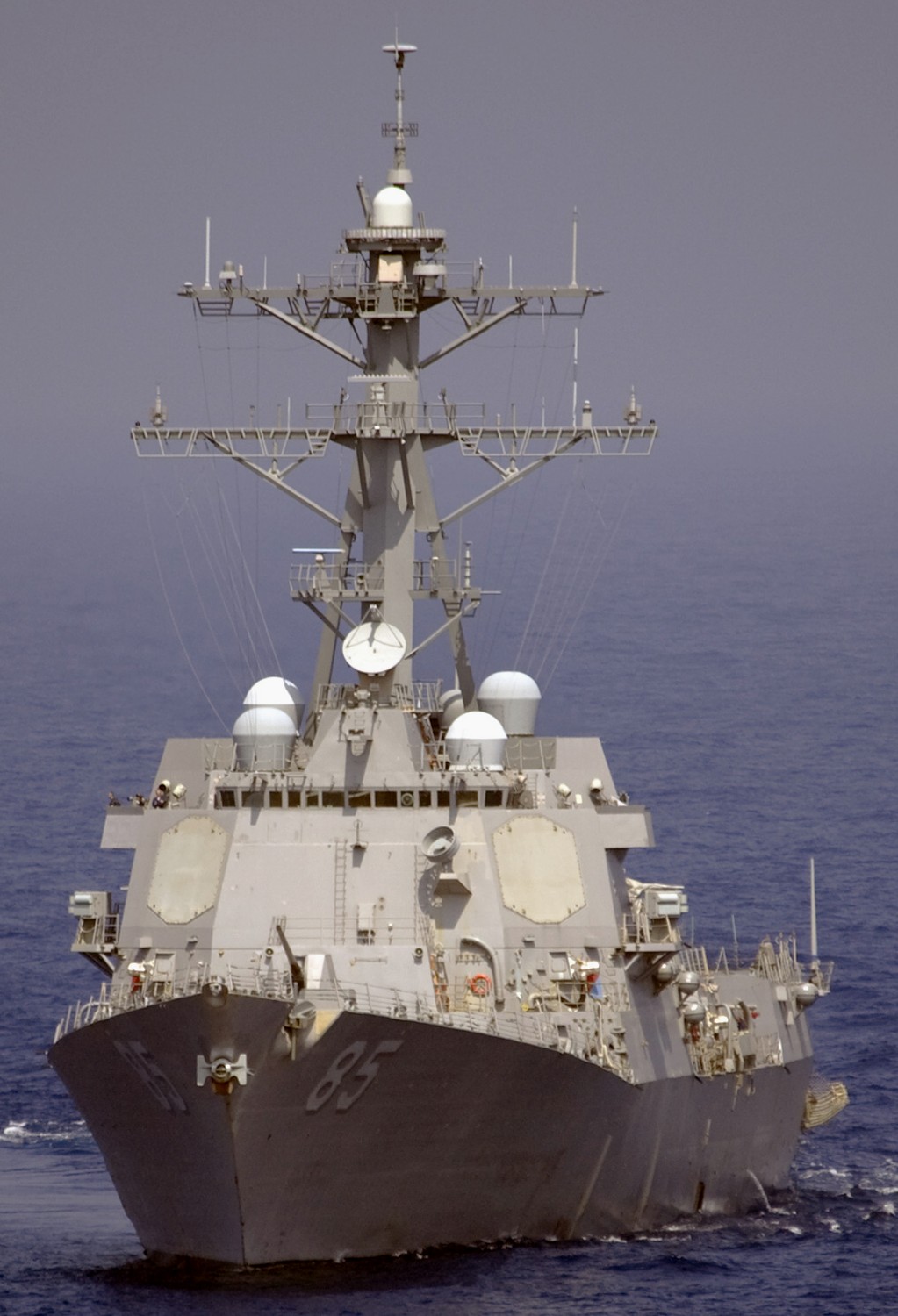 Pacific Ocean - May 2010 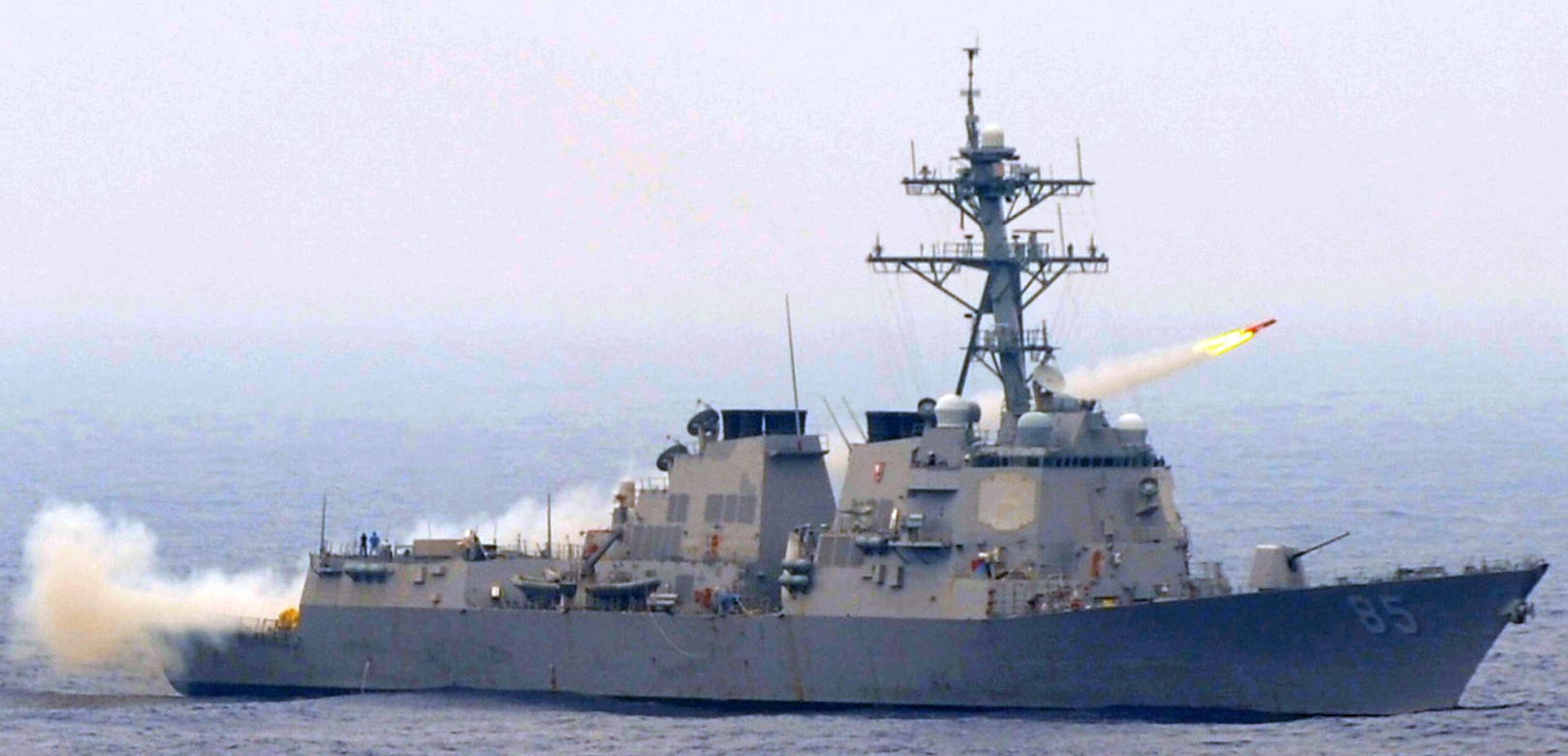 launching a target drone - Pacific Ocean - May 2010 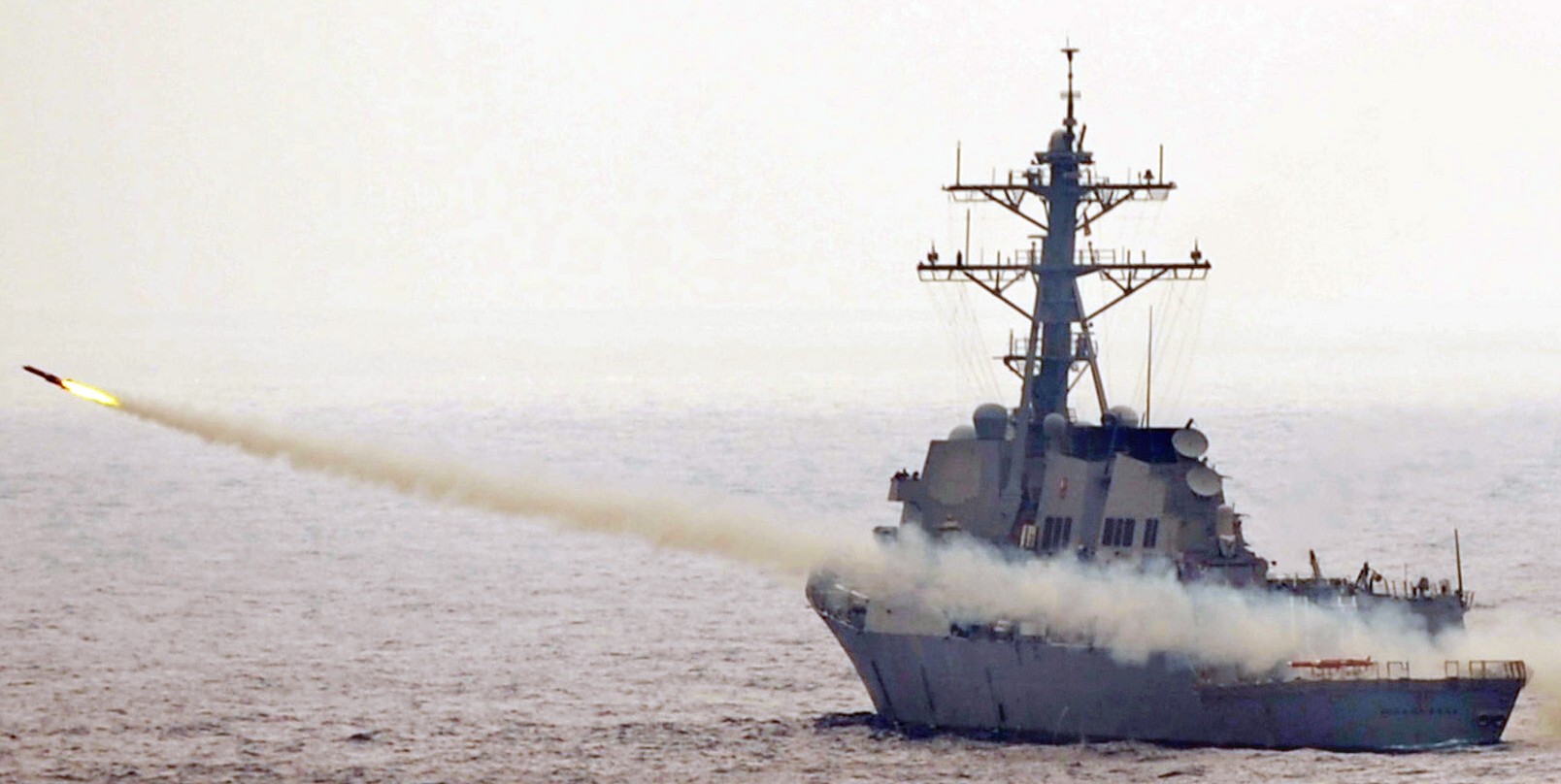 launching a target drone - Pacific Ocean - May 2010  off Indonesia - October 2009 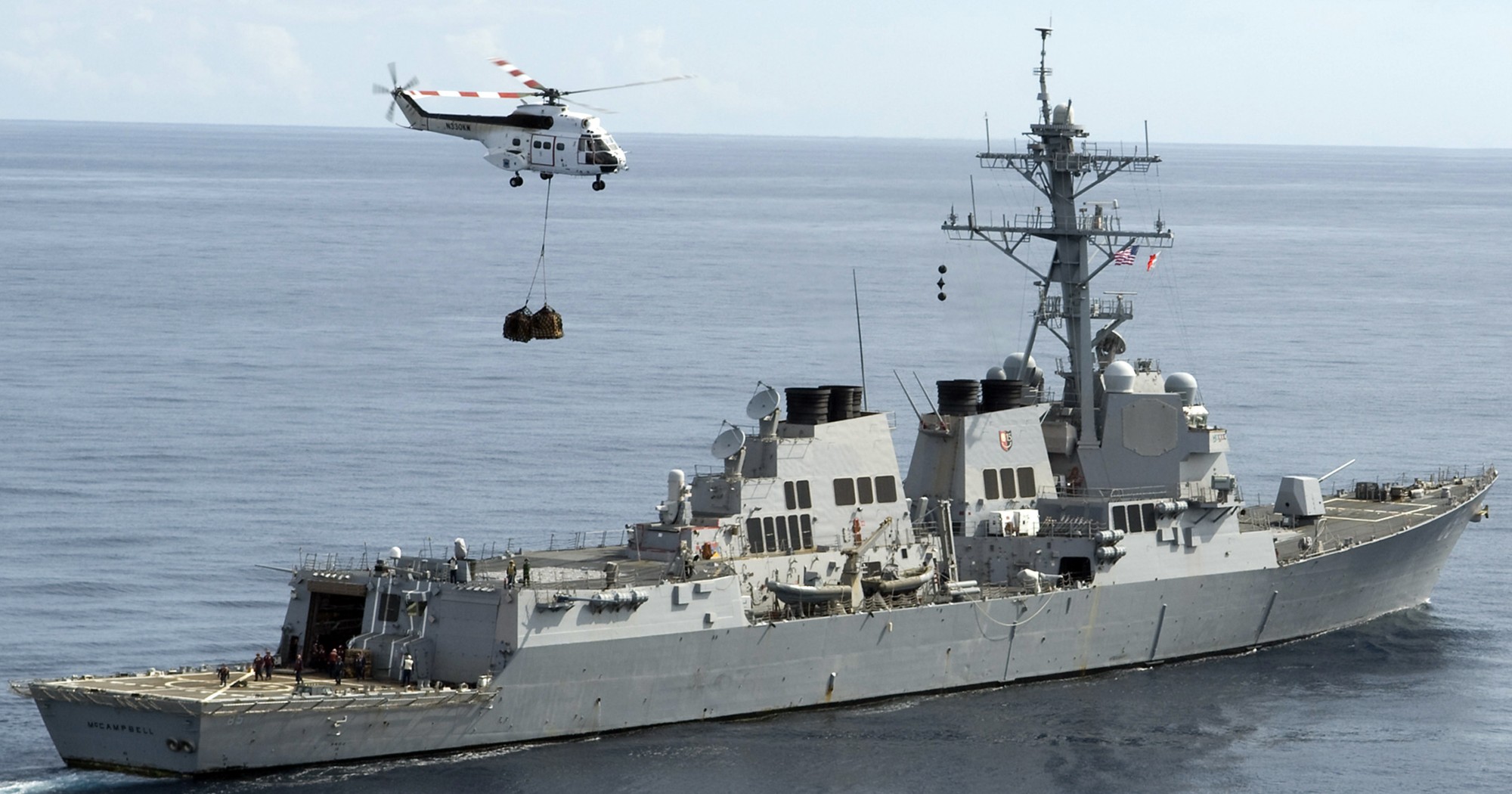 off Indonesia - October 2009 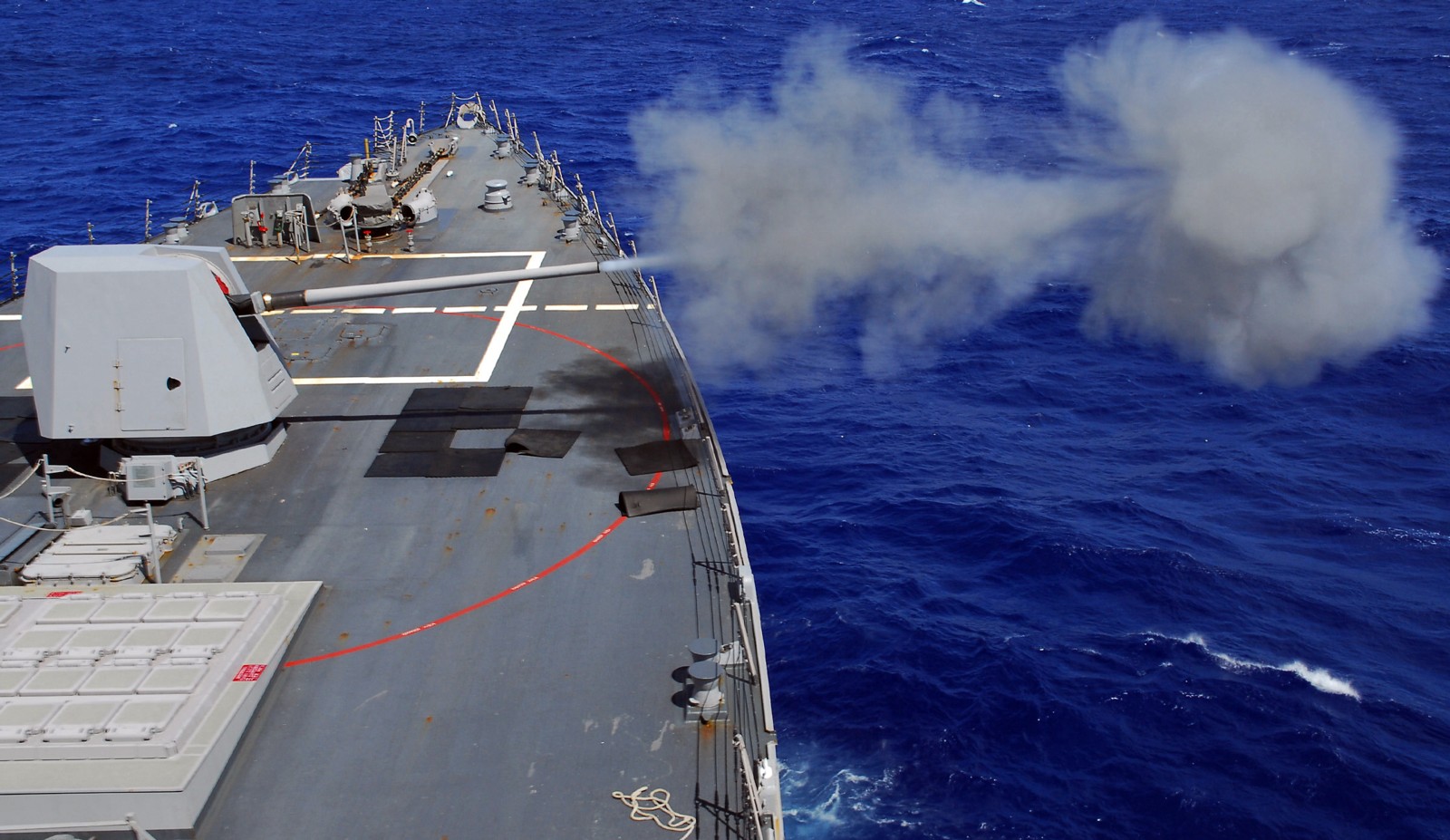 Mk.45 Mod.4 gun fire - off Okinawa, Japan - September 2009 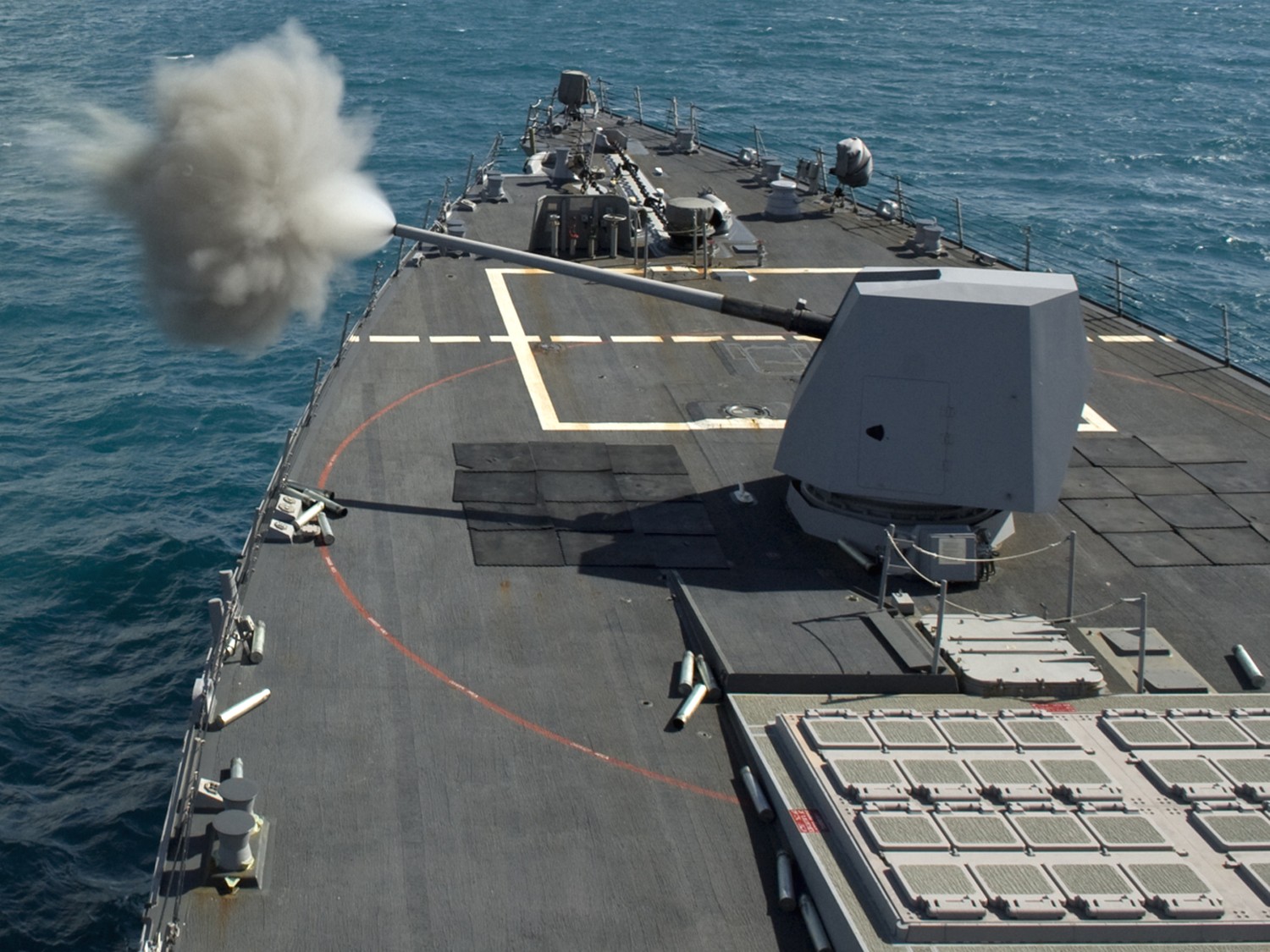 Mk.45 Mod.4 gun fire during Exercise Talisman Sabre - Coral Sea - July 2009 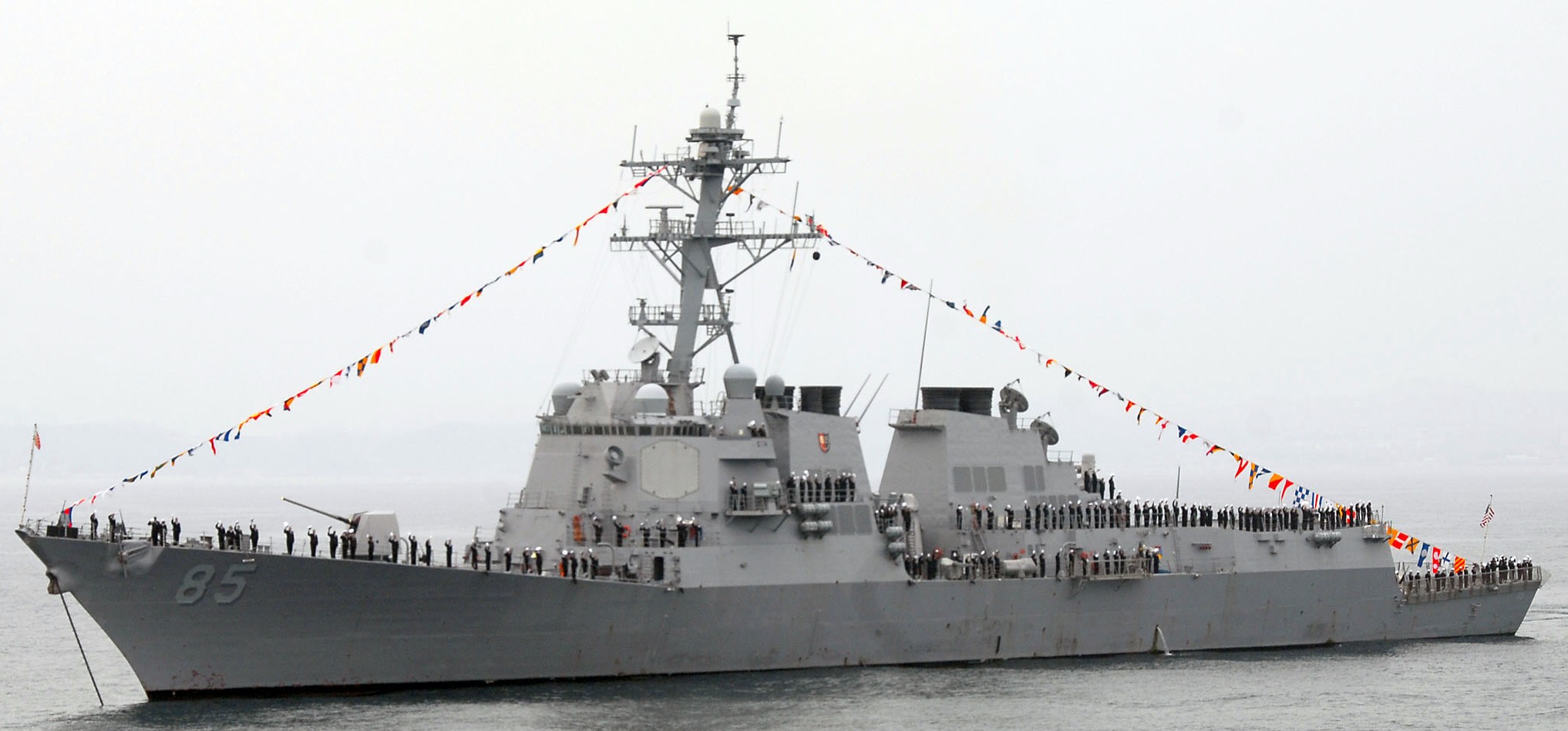 off Busan, Republic of Korea - October 2008 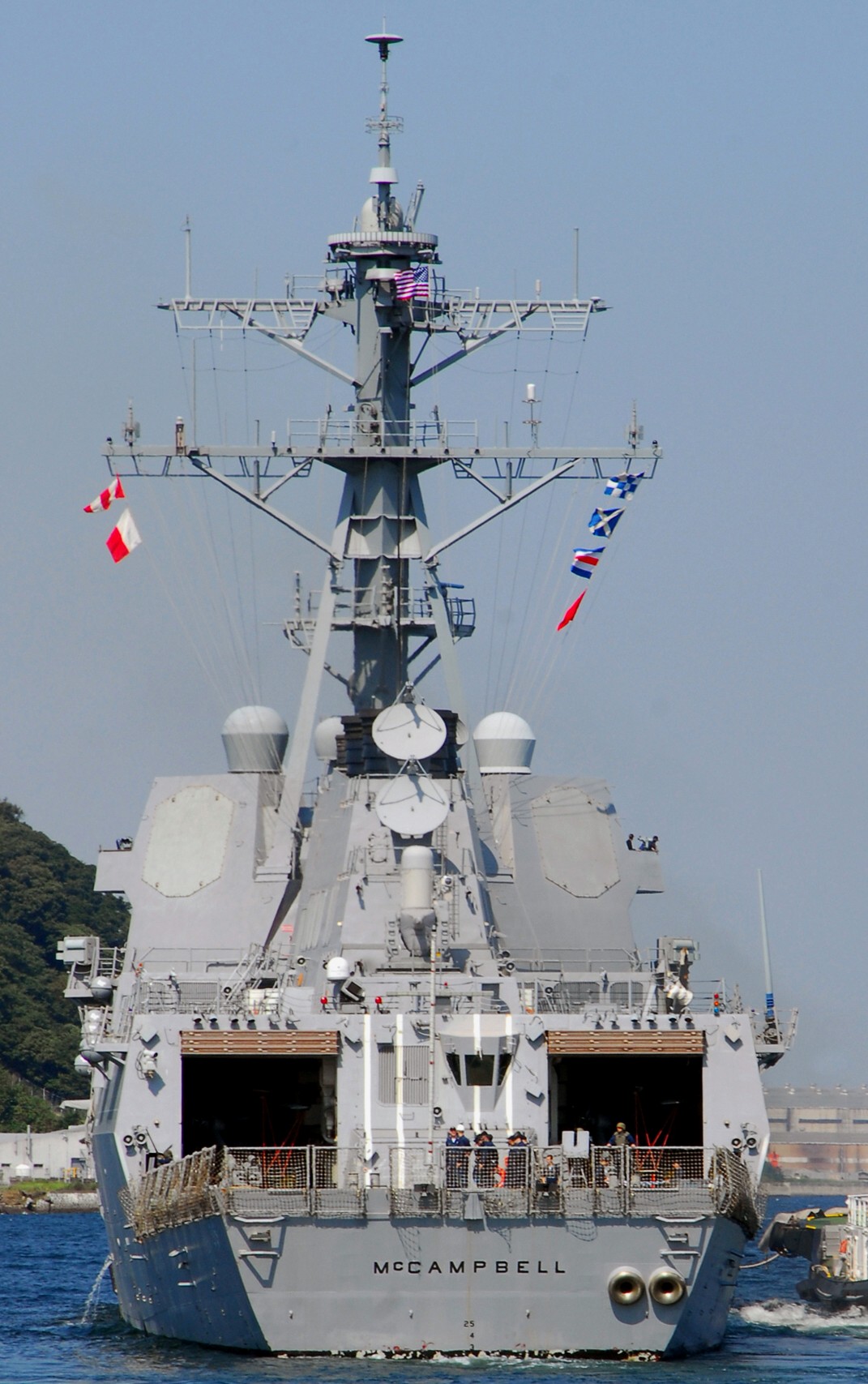 departing Fleet Activities Yokosuka, Japan - October 2, 2008 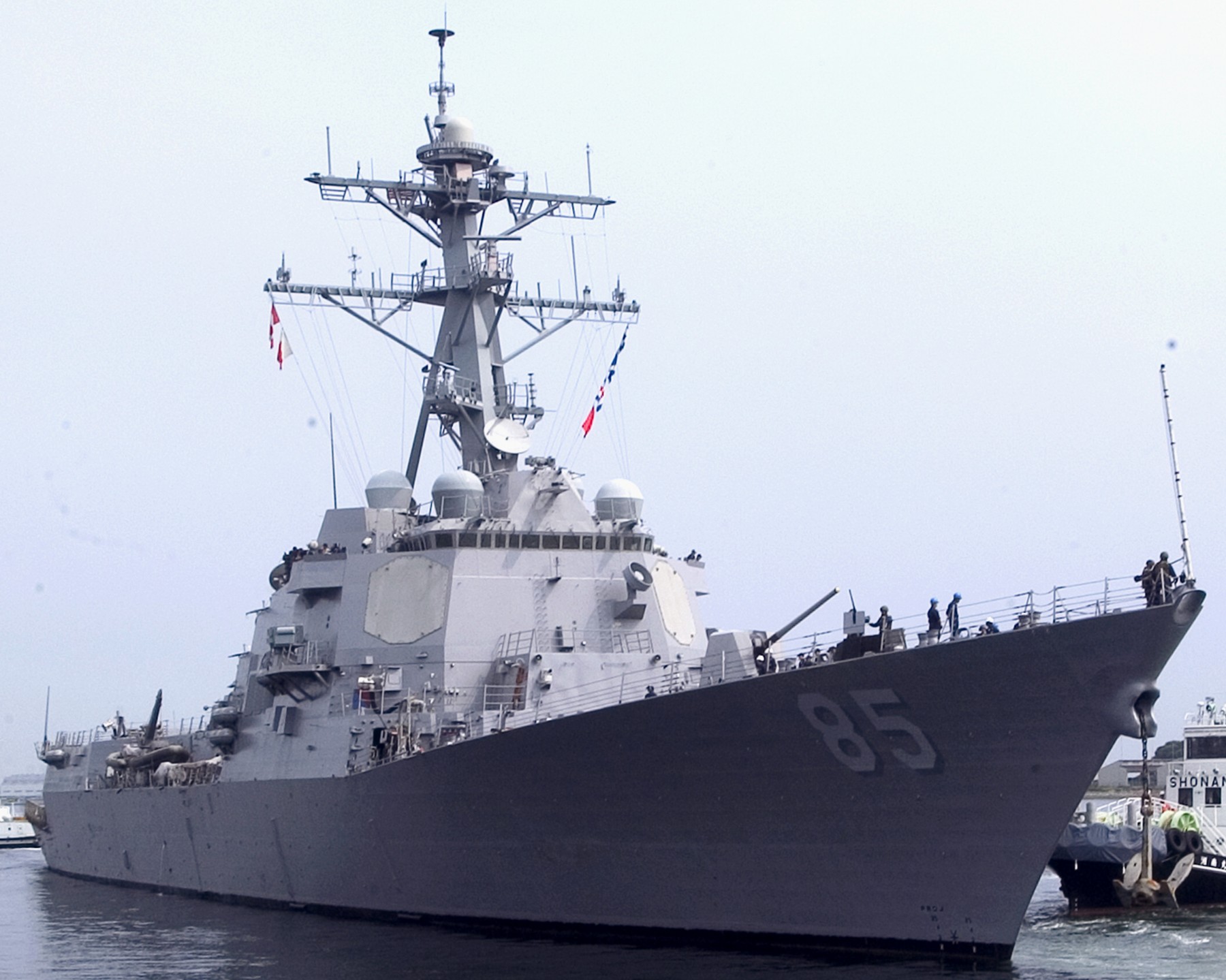 departing Fleet Activities Yokosuka, Japan - August 12, 2008 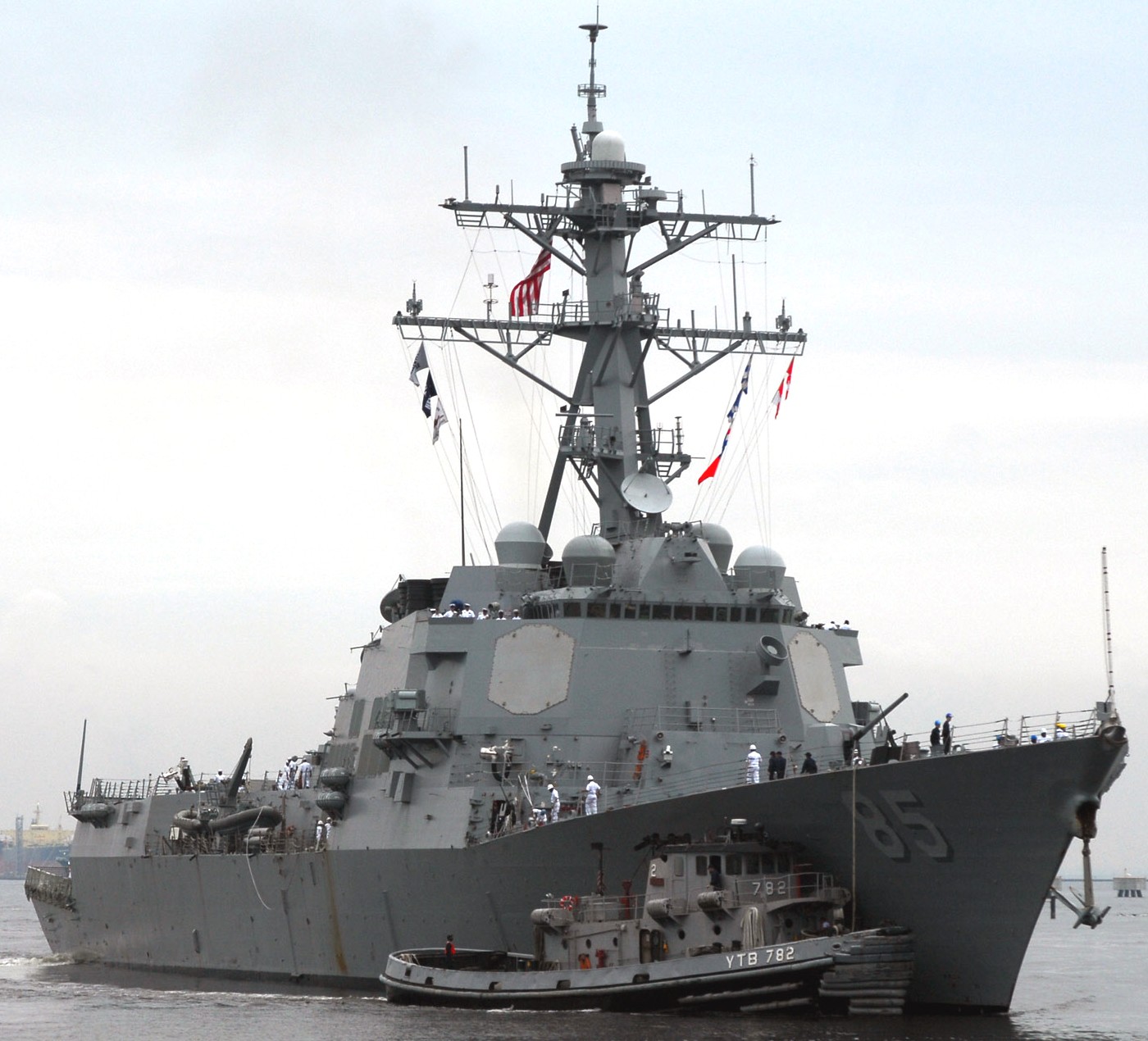 arriving at her new homeport, Fleet Activities Yokosuka, Japan - July 9, 2007 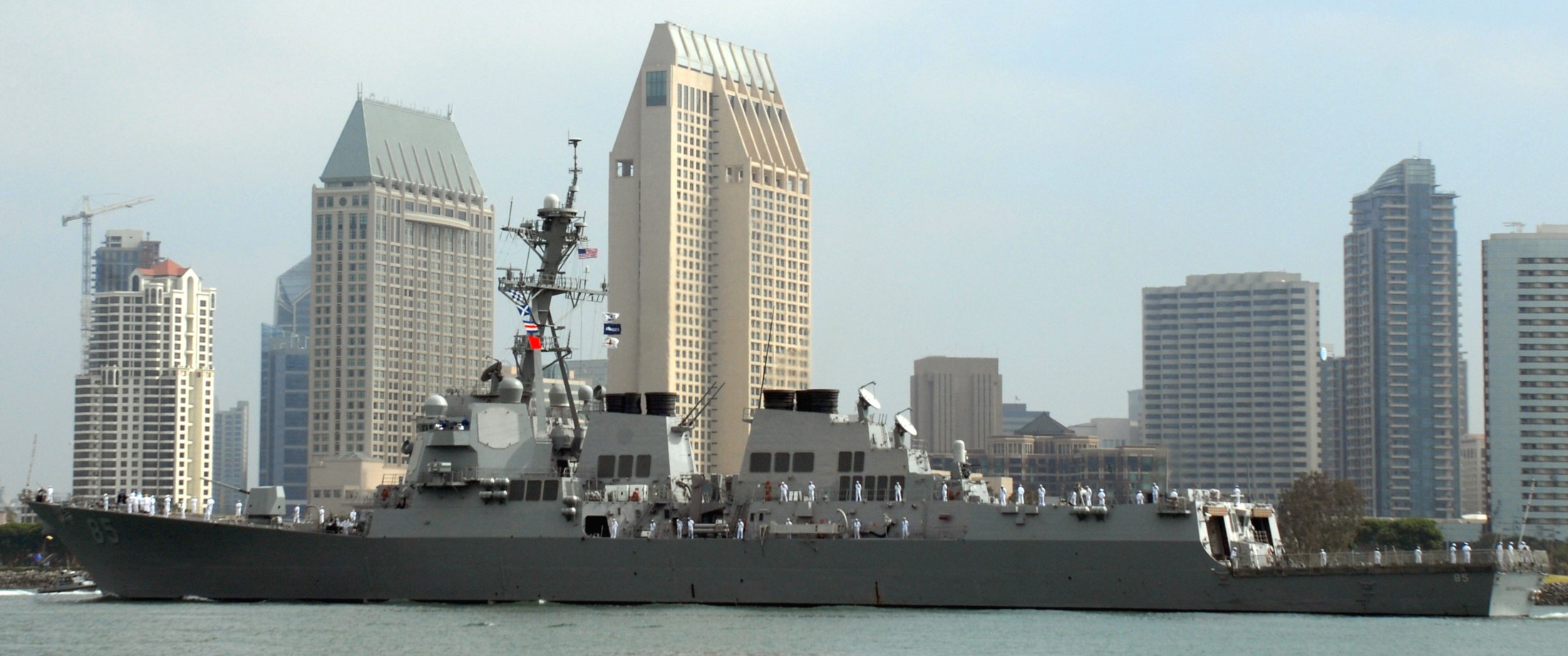 departing Naval Base San Diego, California for her journey to Yokosuka, Japan - June 21, 2007 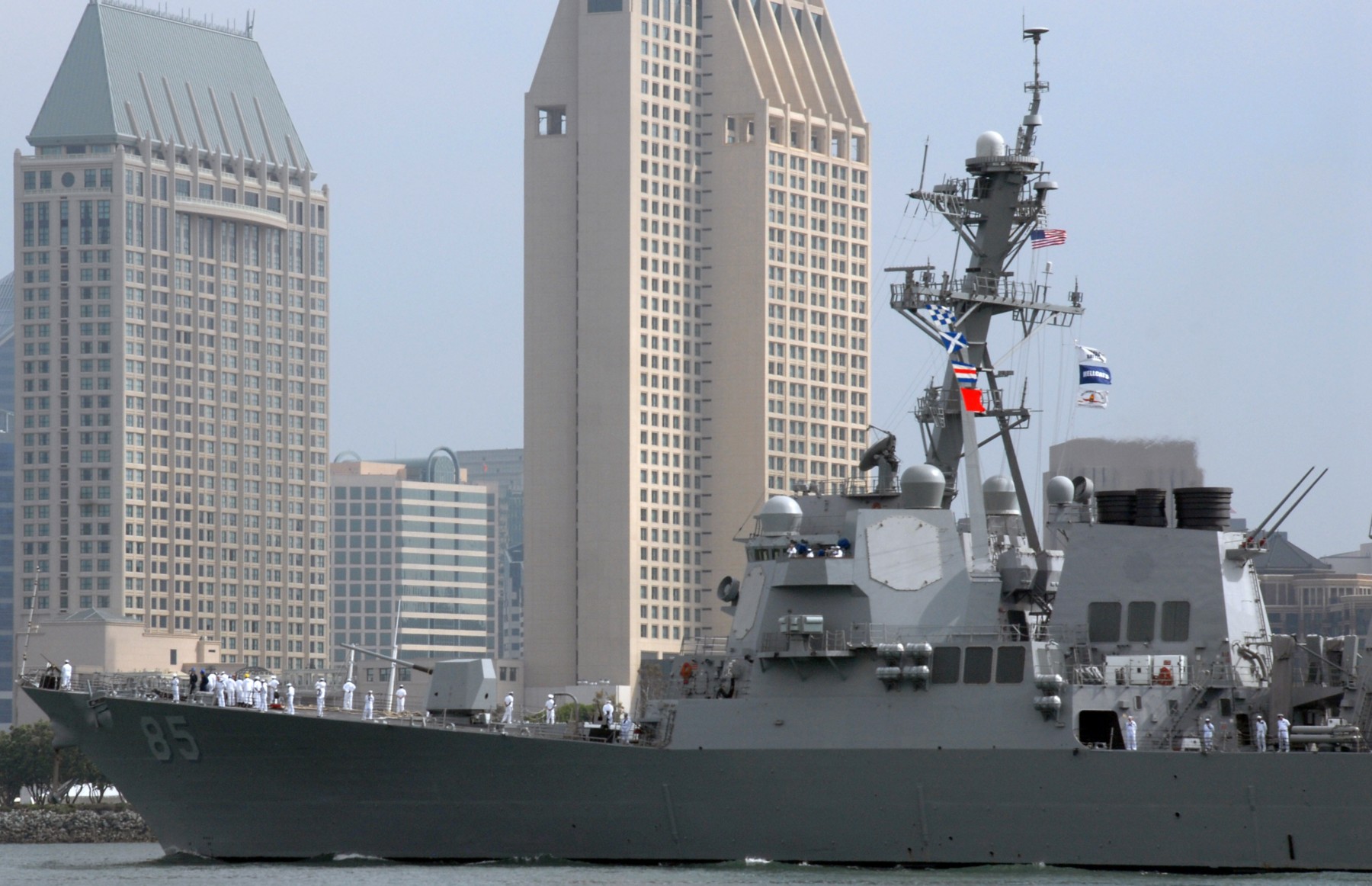 departing Naval Base San Diego, California - June 21, 2007 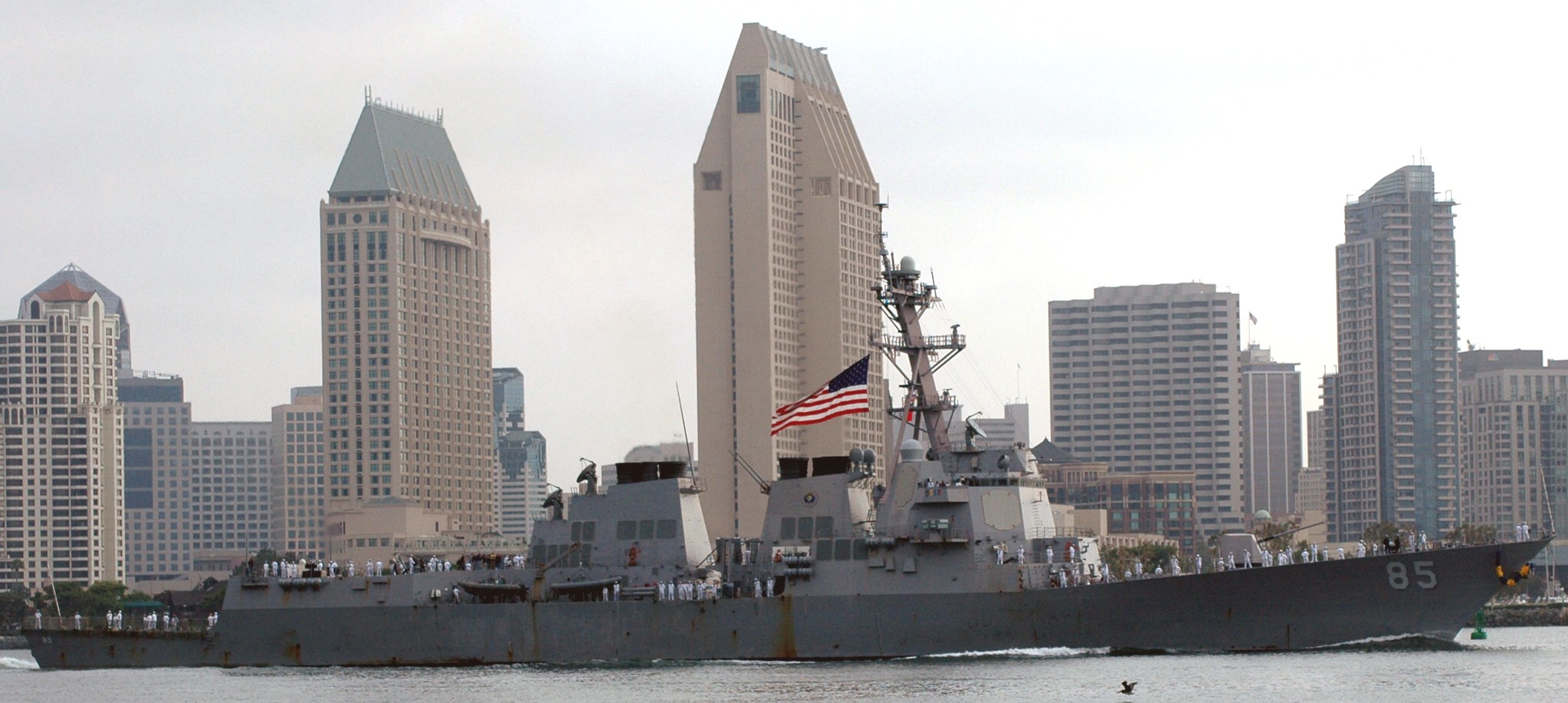 returning to Naval Base San Diego, California - July 6, 2006 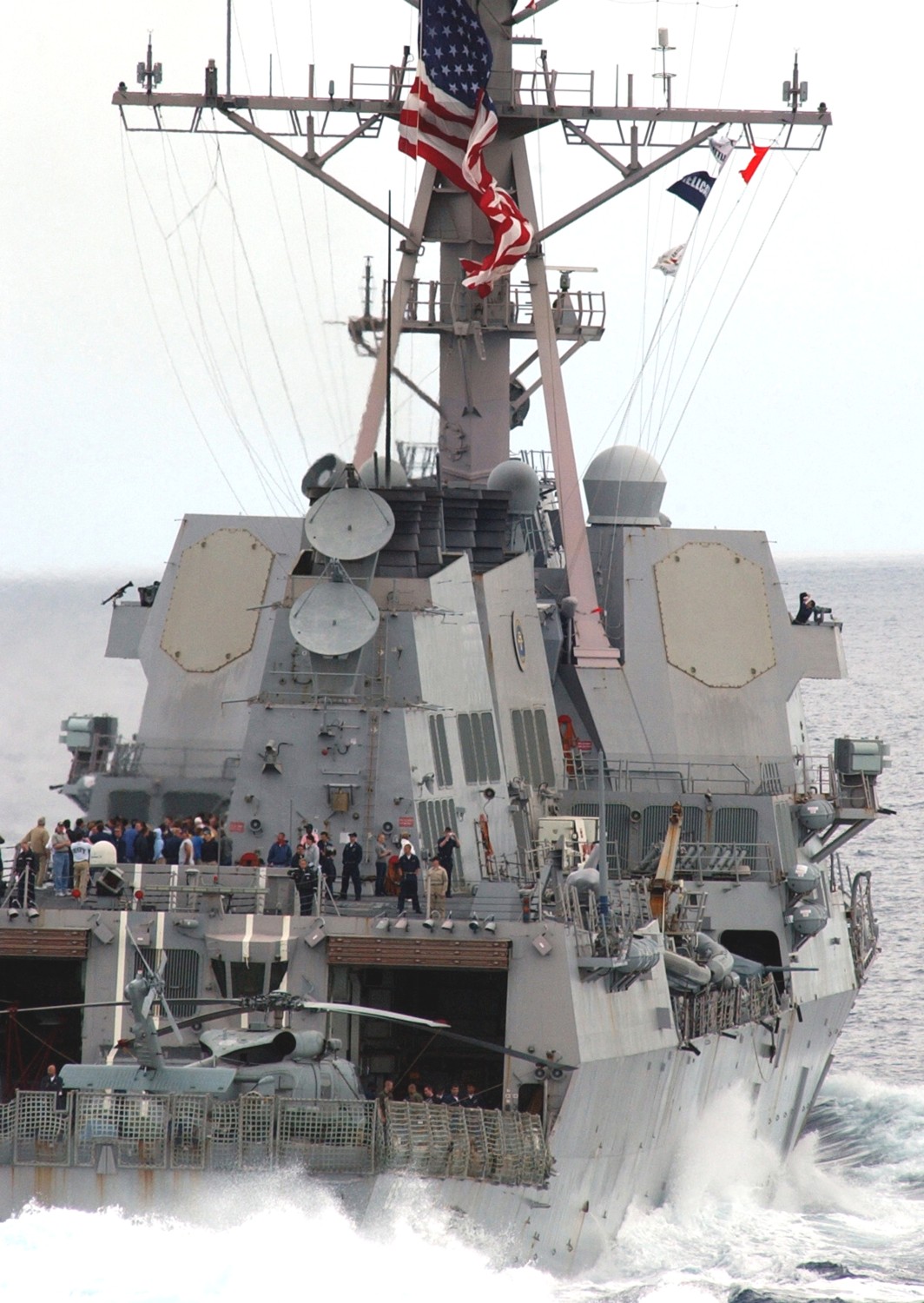 Pacific Ocean - July 2006 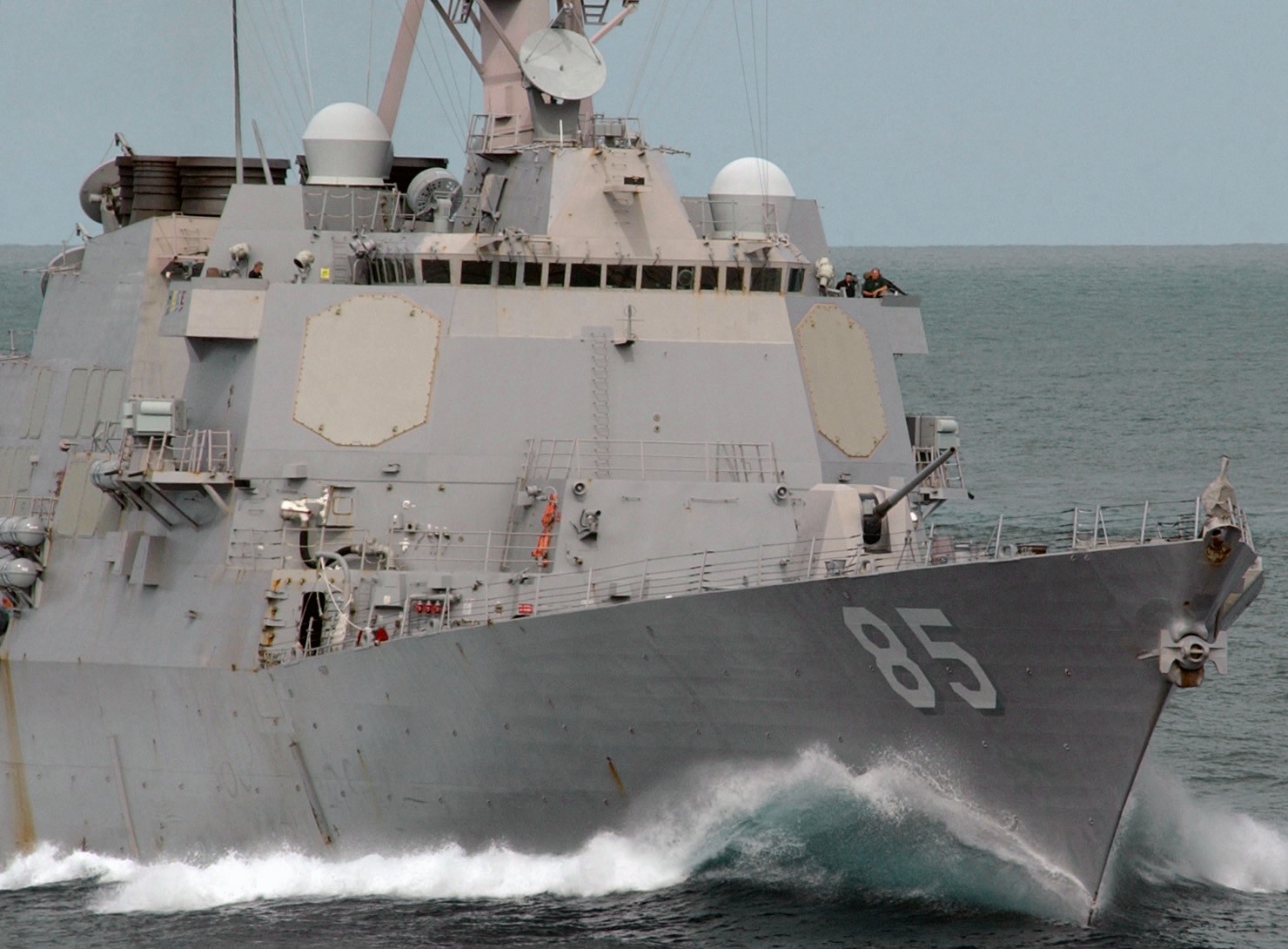 Pacific Ocean - July 2006 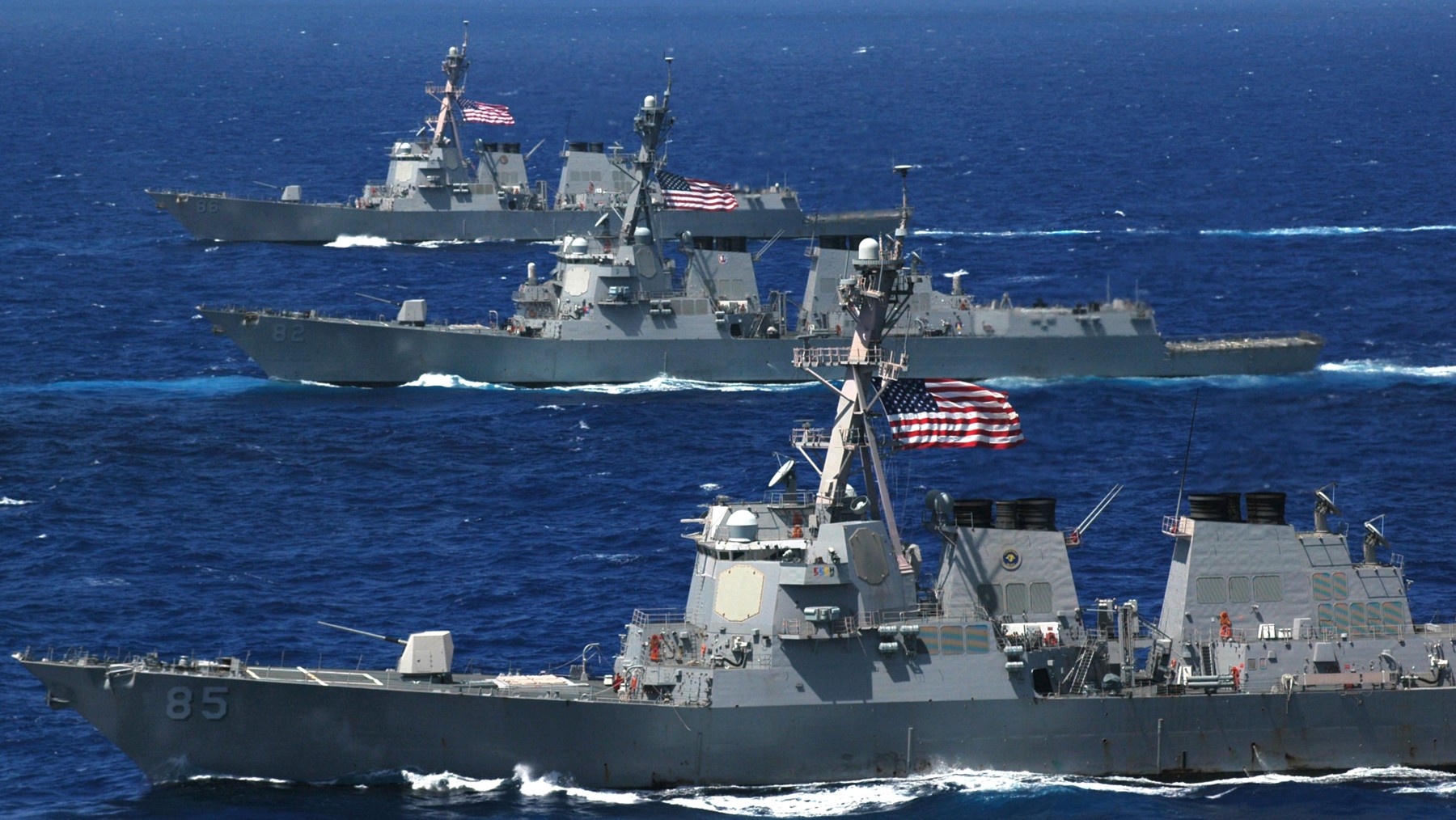 Pacific Ocean - June 2006 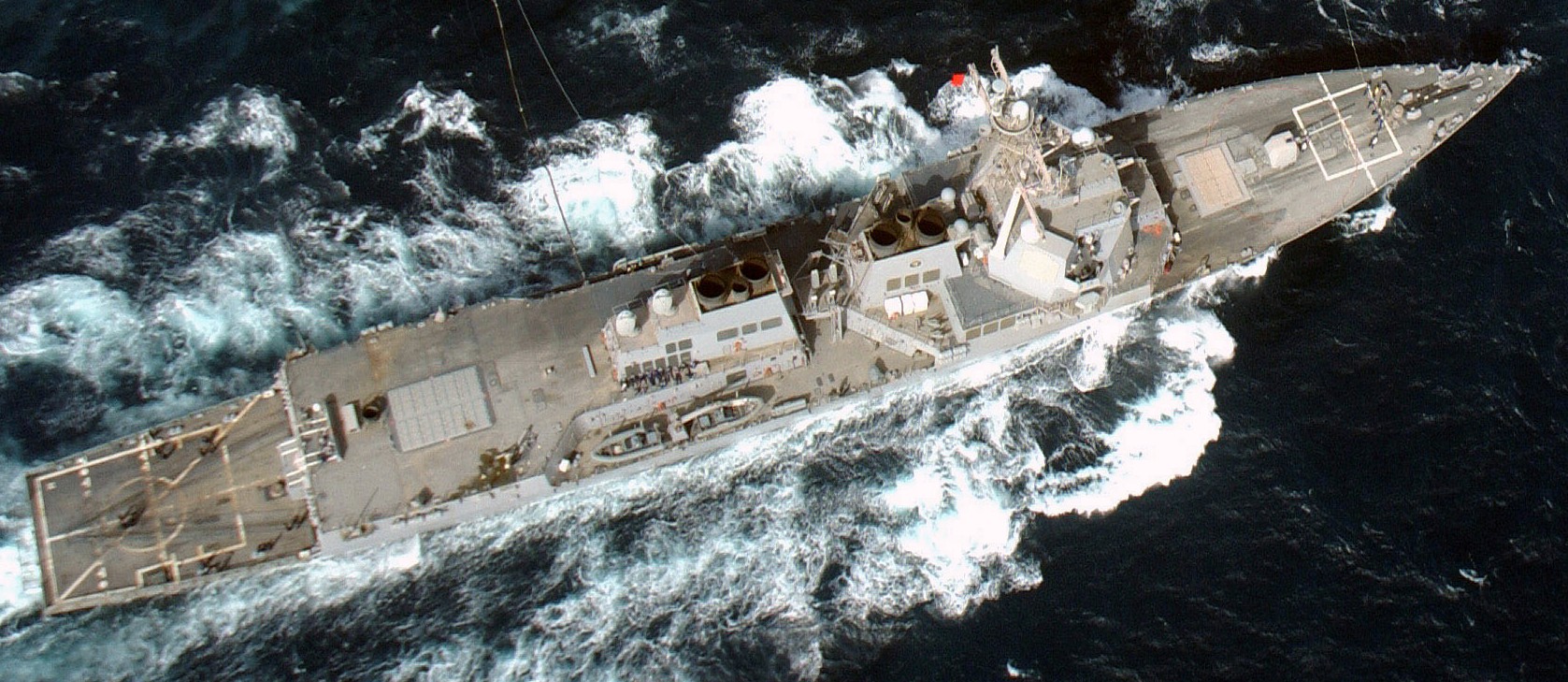 Operation Enduring Freedom - Persian Gulf - May 2006 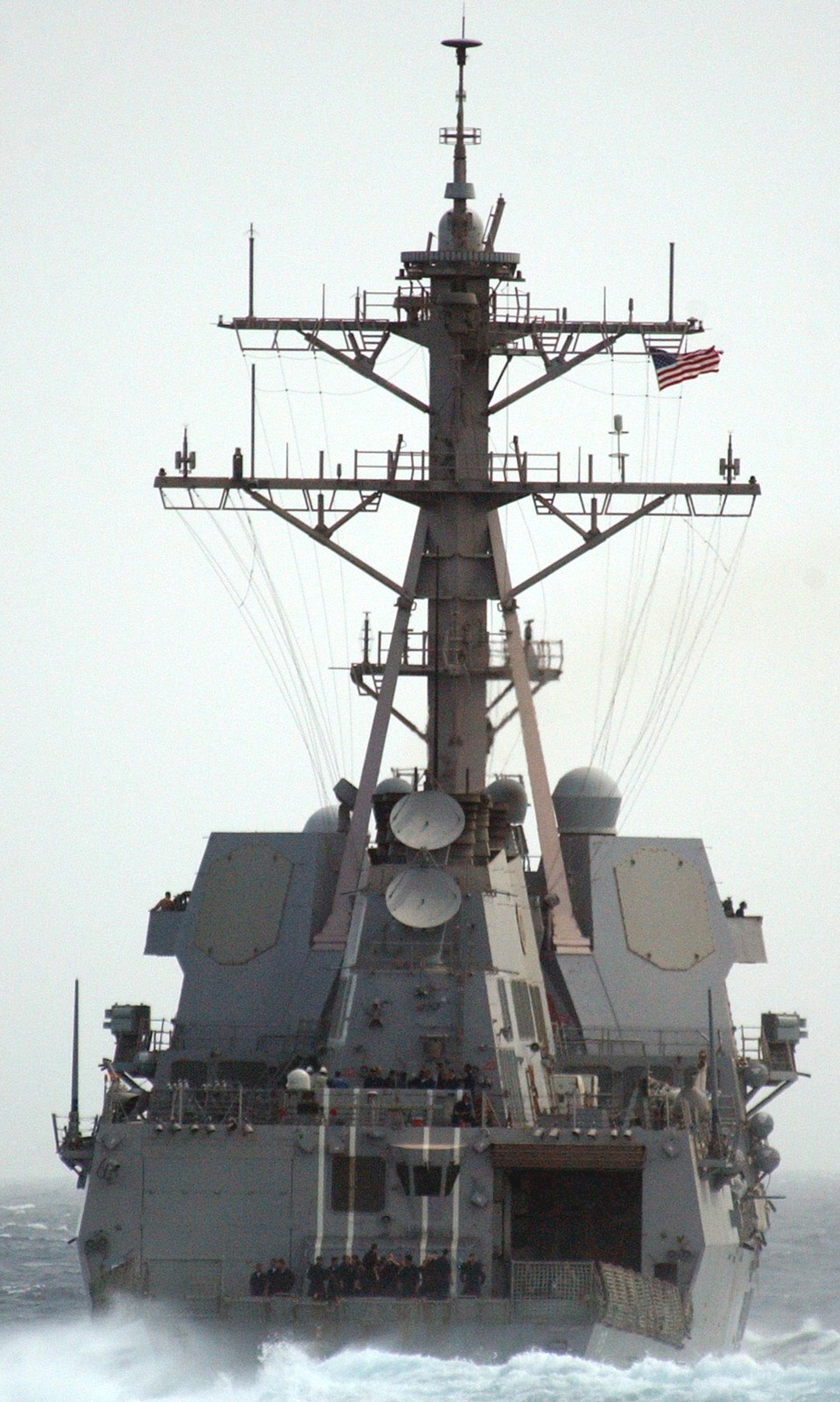 Operation Enduring Freedom - Persian Gulf - May 2006 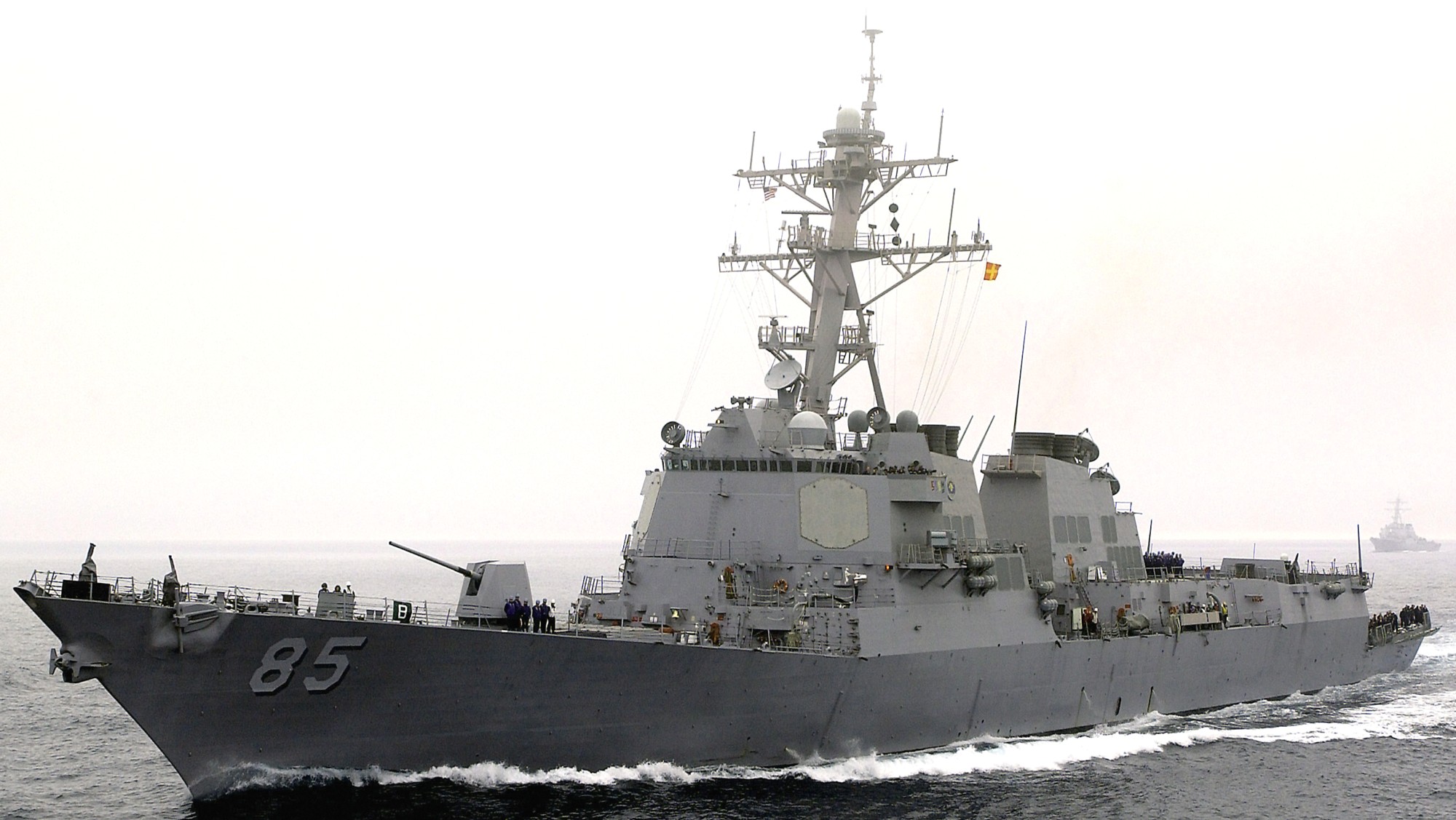 Pacific Ocean - July 2005 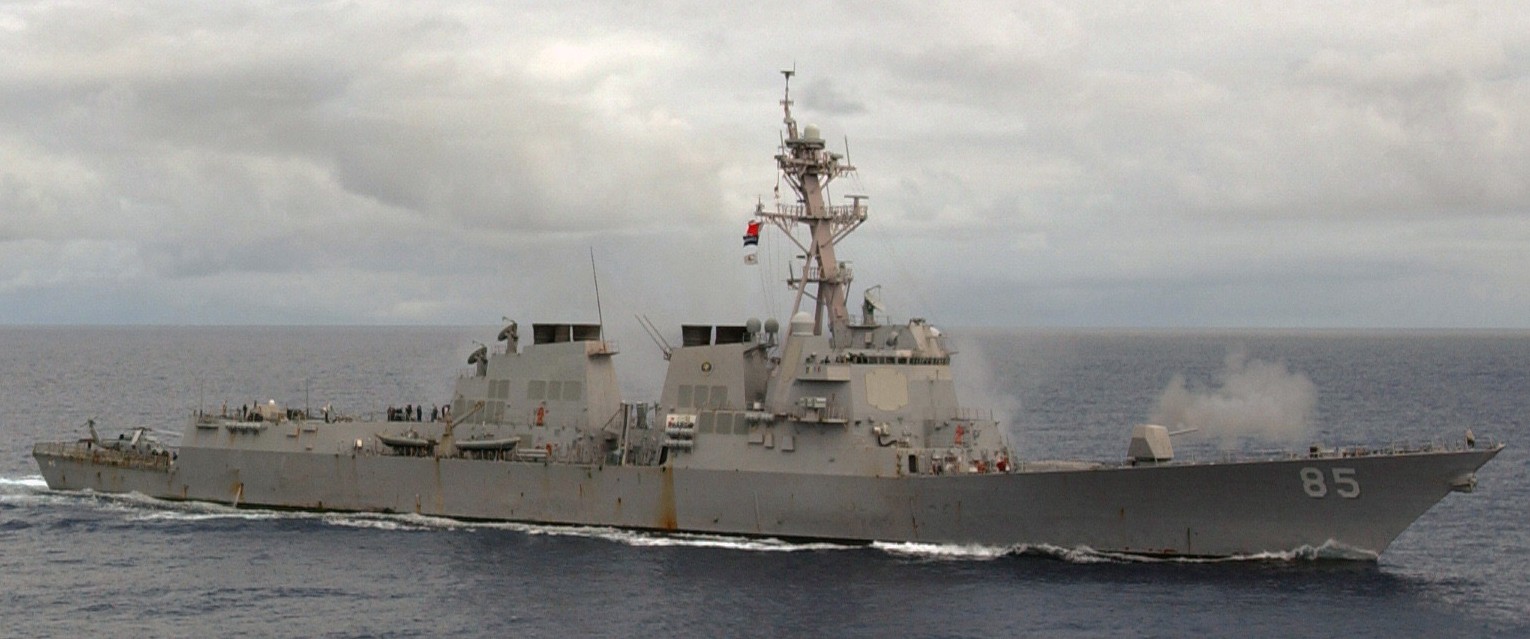 Pacific Ocean - July 2004 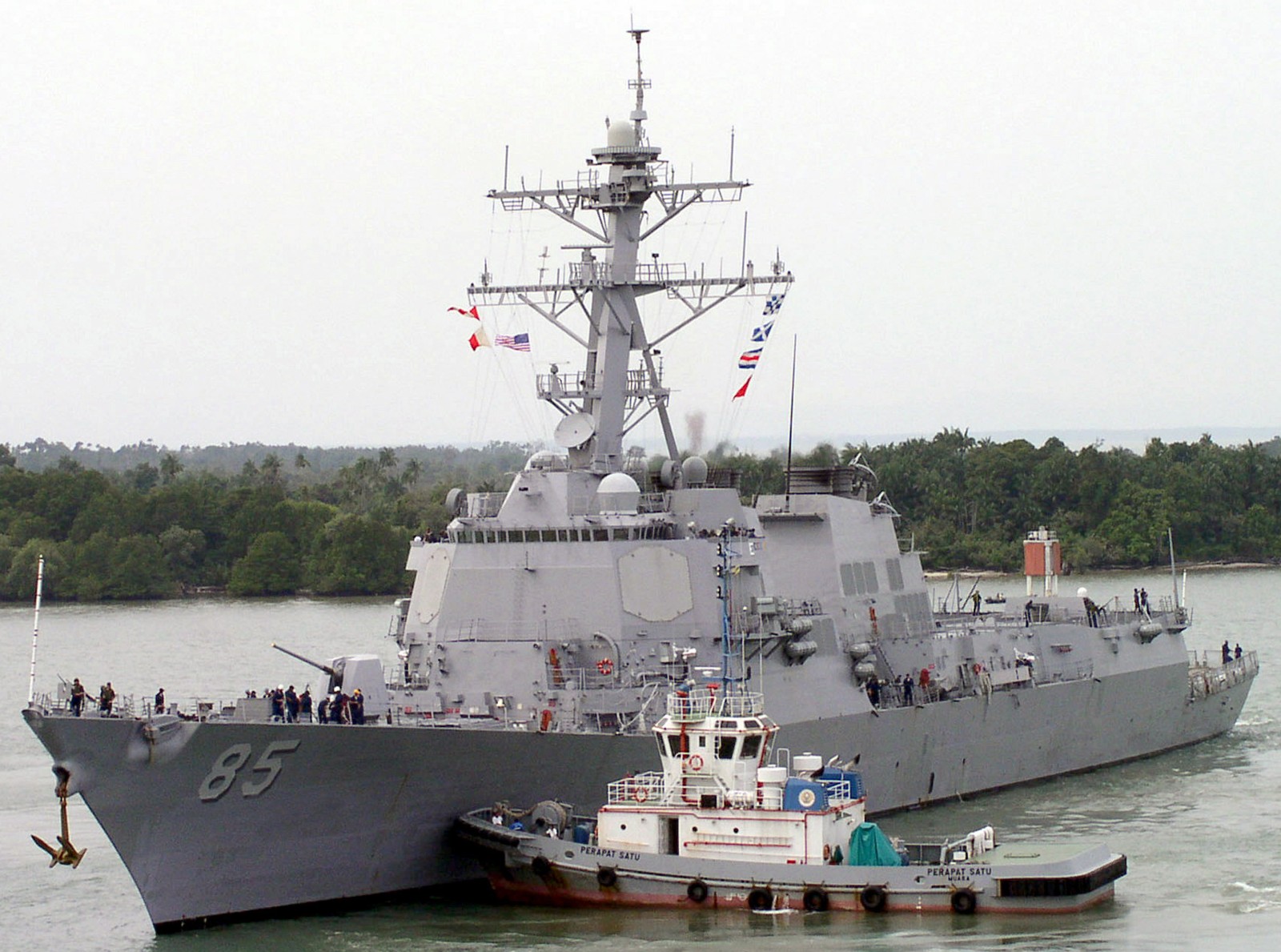 during Exercise CARAT - Port of Muara, Brunei - June 2004 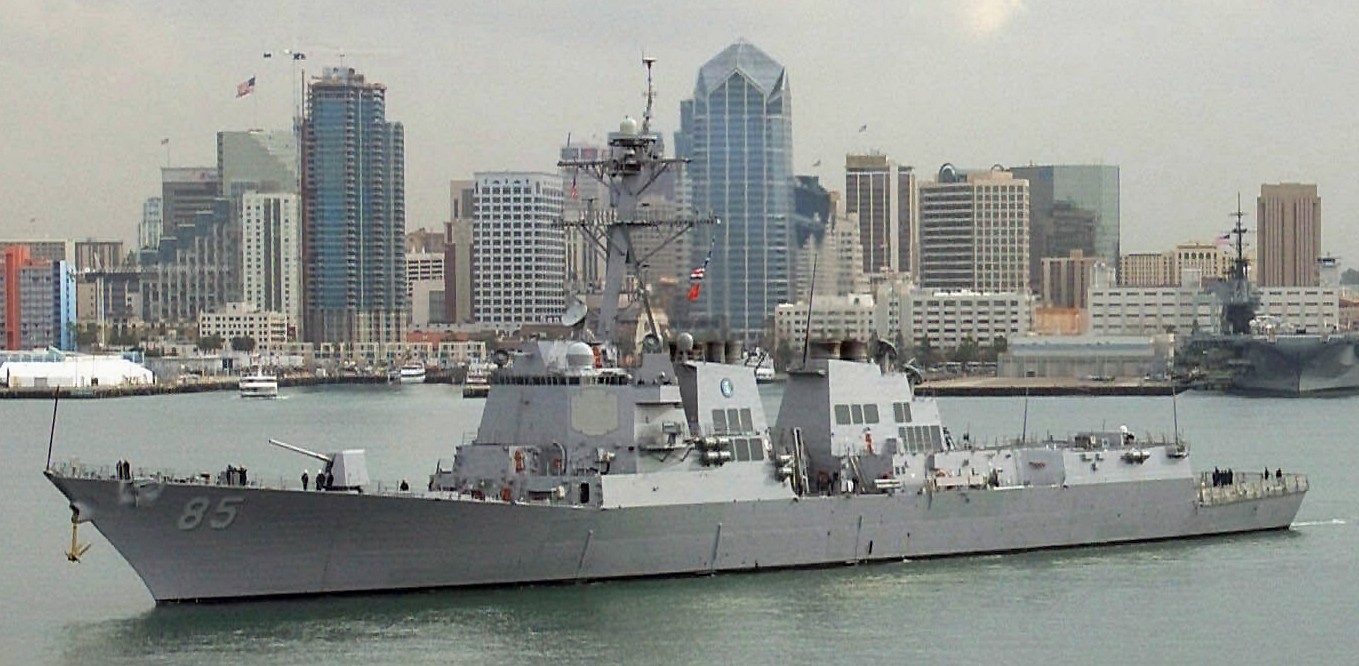 departing Naval Base San Diego, California - January 20, 2004  launching at General Dynamics Bath Iron Works, Maine - July 2, 2000 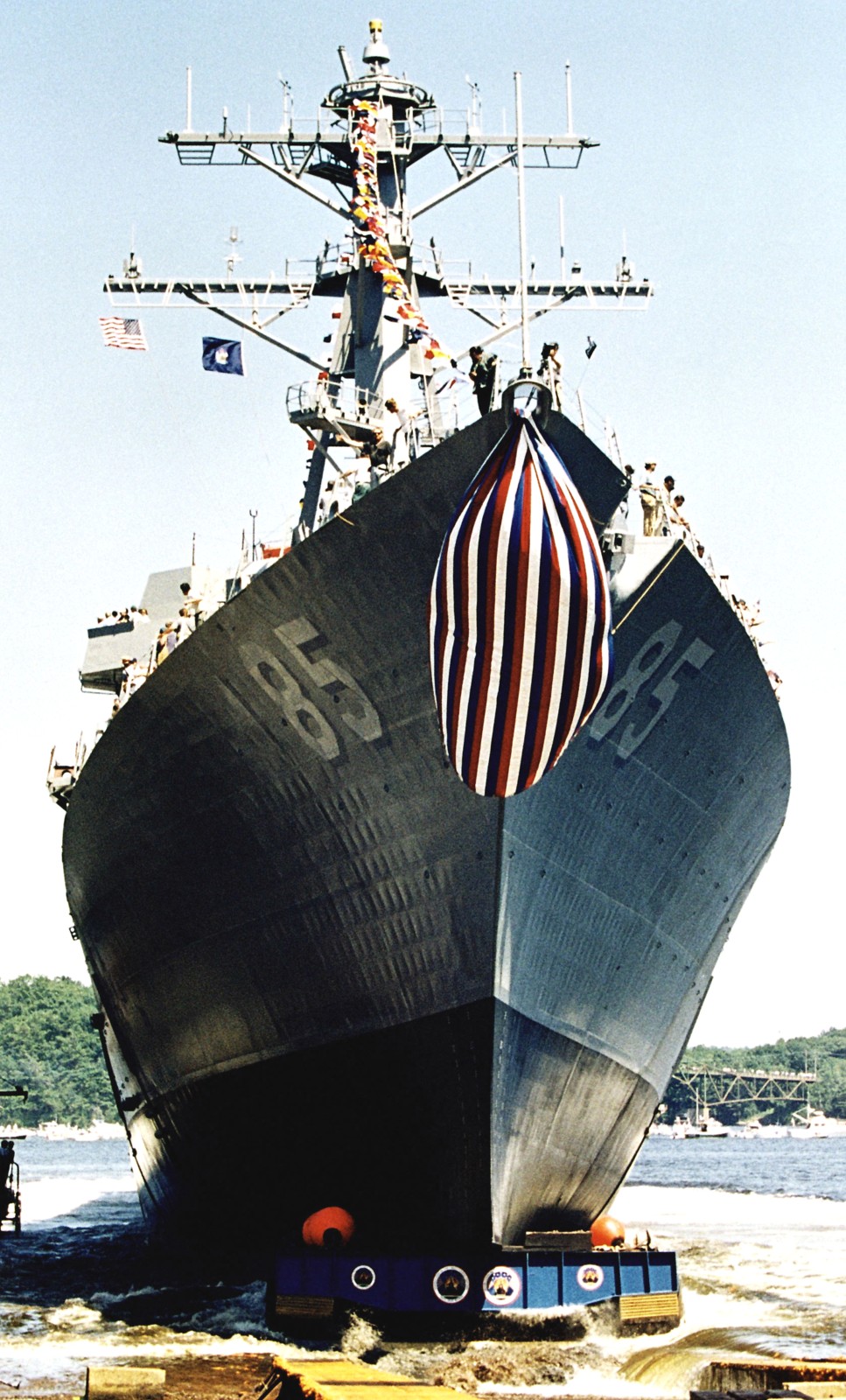 launching at General Dynamics Bath Iron Works, Maine - July 2, 2000 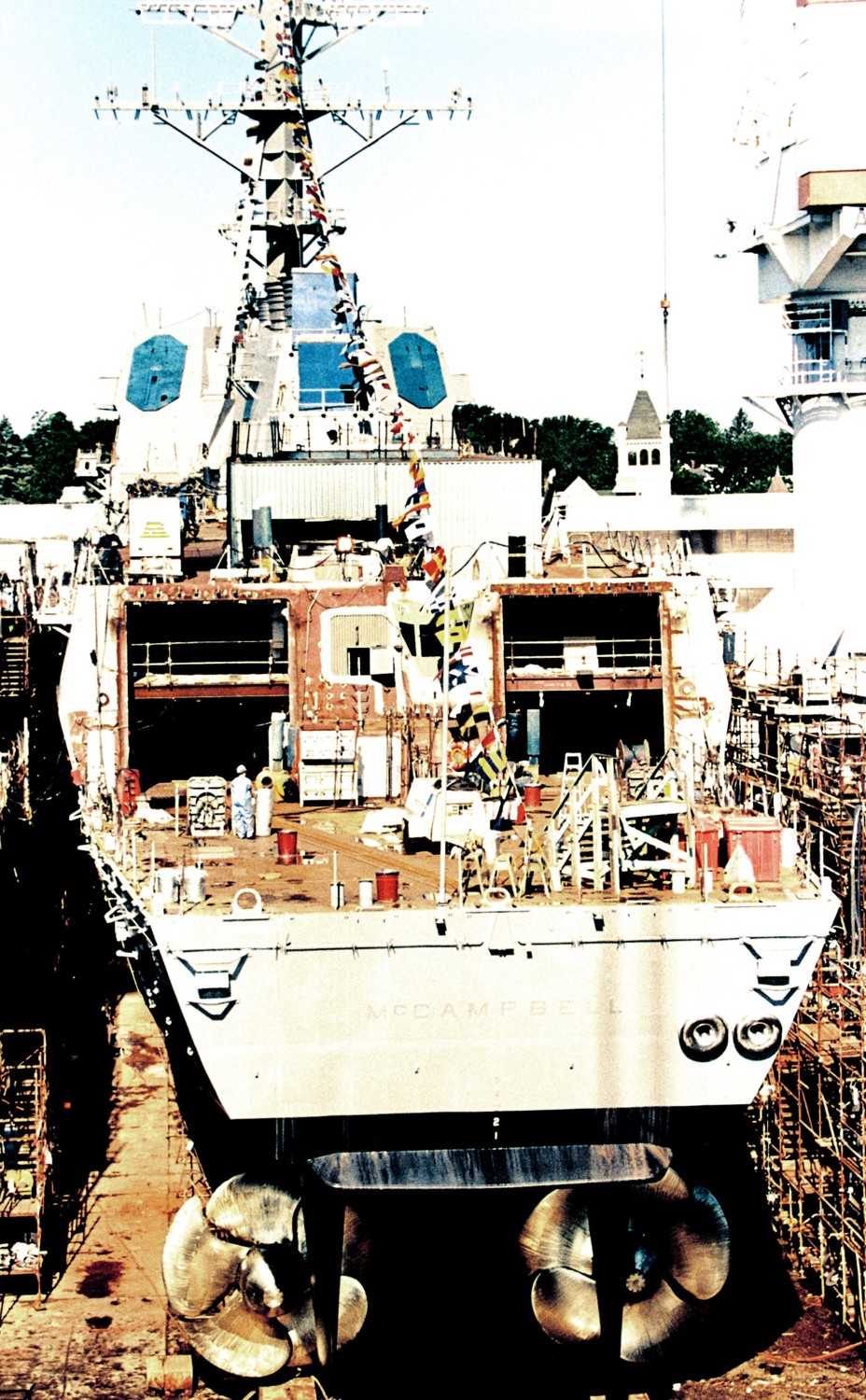 launching at General Dynamics Bath Iron Works, Maine - July 2, 2000 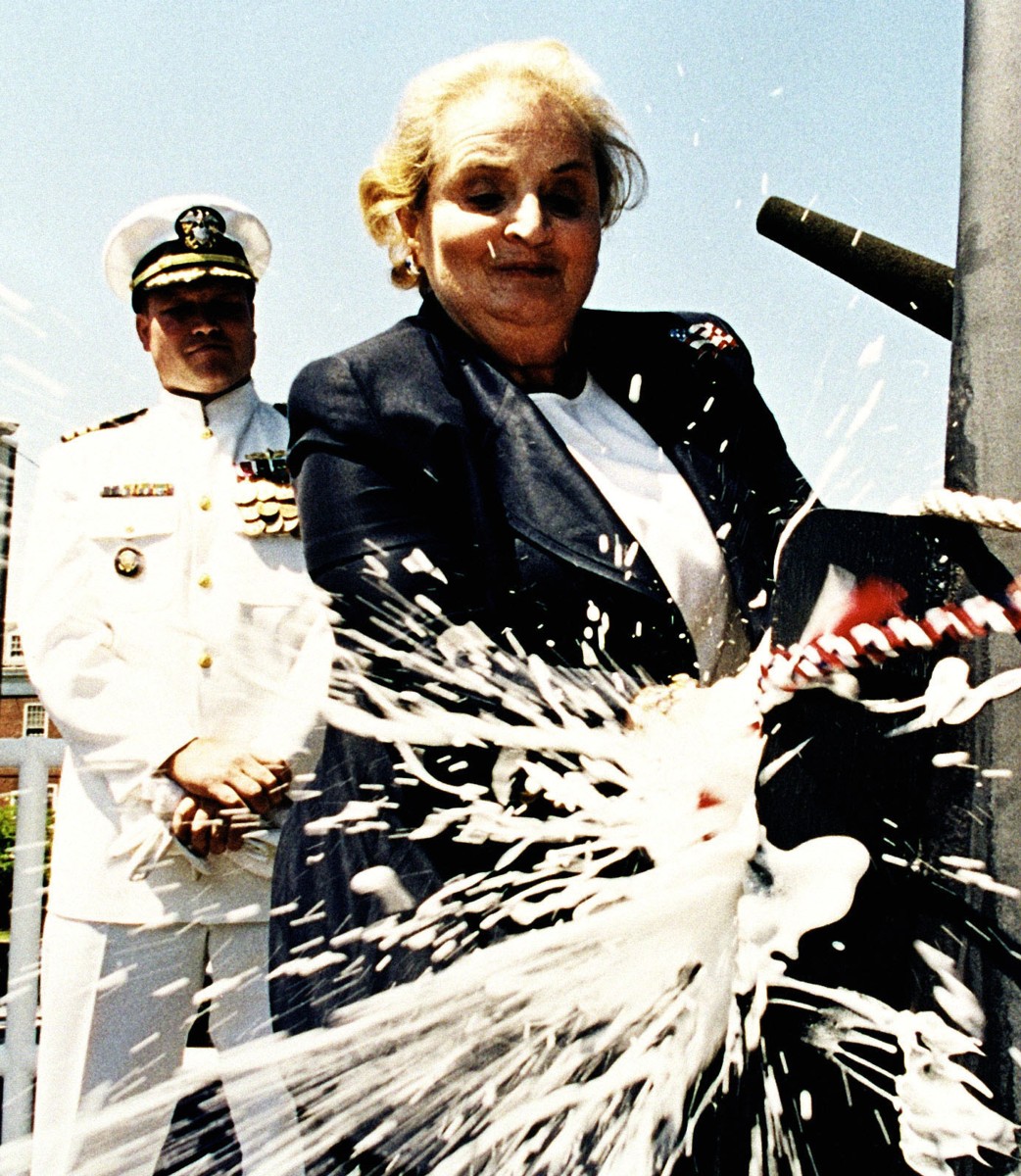 Madeleine K. Albright, Secretary of State and ship's sponsor christens USS McCampbell at Bath Iron Works, Maine - July 2, 2000 |
||
|
USS McCampbell (DDG 85): She arrived at Yokosuka Naval Base in Yokosuka, Japan as part of the Navy's Seventh Fleet in July 2007, and was then permanently forward deployed there. On 23 June 2009, McCampbell replaced USS John S. McCain in shadowing the North Korean ship Kang Nam 1 toward Burma in enforcement of a new United Nations resolution, United Nations Security Council Resolution 1874. In March 2011, McCampbell was the first US Navy vessel on station off northeastern Honshu, Japan to assist with relief efforts after the 2011 Tohoku earthquake and deliver food, supplies, and other material aid directly to survivors. Later, after the arrival of the aircraft carrier Ronald Reagan, the ship continued relief efforts as an element in Carrier Strike Group Seven, using the carrier as a supply distribution hub through early April. On 13 June 2011, McCampbell intercepted the North Korean-flagged merchant vessel MV Light, en route to Myanmar, on 26 May, south of Shanghai. McCampbell requested permission to board the vessel, which was suspected of carrying missile technology, but was refused. After several days MV Light turned around and returned to North Korea, tracked by surveillance aircraft and satellites. McCampbell rescued five Philippine fishermen on or about 24 October 2012. During a routine night mission, the embarked helicopter crew of McCampbell discovered five men signaling for help aboard a mostly-sunk fishing vessel. The helicopter crew deployed flotation rafts while McCampbell dispatched two boats, along with a translator, to assist in the rescue. McCampbell was operating with George Washington and Carrier Strike Group Five at that time. McCampbell maintains on board an active VBSS team to conduct anti piracy, anti-smuggling, and anti-terrorist operations. The ship was an active participant in IMDEX, and the VBSS team was a centerpiece in the multilateral training effort held in conjunction with the exposition. On 24 January 2019, McCampbell sailed through the Taiwan Strait on orders from the USS Pacific Fleet. McCampbell and replenishment oiler Walter S. Diehl "conducted a routine Taiwan Strait Transit" that was "in accordance with international law." In July 2020 the ship left Yokosuka for Portland, Oregon to begin a midlife update at Vigor Shipyards. While the update has a set cost of US$133.4 million, with contract options that could rise up to as much as US$155.6 million. On 5 February 2024, the U.S. Navy announced that USS McCampbell (DDG 85) will forward deploy to Yokosuka, Japan. McCampbell will replace USS Antietam (CG 54), which will depart Yokosuka, Japan, and move to Pearl Harbor, Hawaii, as part of a scheduled rotation of forces in the Pacific. On 8 February 2024, the USS McCampbell, in collaboration with the Missile Defense Agency (MDA), successfully conducted Flight Test Other-23 (FTX-23), also known as Stellar Sisyphus, off the coast of the Pacific Missile Range Facility, Kauai, Hawaii. This two-part developmental test involved evaluating sensor tracking and communications link capabilities. On 2 March 2024, USS McCampbell returned to Yokosuka, Japan after a four year long modernization period in the United States rejoining her sister ships as part of Destroyer Squadron Fifteen. source: wikipedia |
||
|
Captain David S. McCampbell (January 16, 1910 - June 30,
1996): David McCampbell was born on 16 January 1910 in Bessemer, Alabama. Appointed to the Naval Academy from Florida, he graduated in June 1933. However, economy measures resulting from the Great Depression delayed receipt of his commission as an Ensign in the regular Navy until a year later. Reporting to USS Portland, he later served with Scouting Squadron Eleven on board that cruiser. In May 1937, he was promoted to Lieutenant Junior Grade and soon began flight training at Naval Air Station, Pensacola, Florida. Designated a Naval Aviator in April 1938, he served with Fighting Squadron Four (VF-4) on USS Ranger. Later transferred to the Air Group on the new aircraft carrier Wasp, McCampbell was promoted to Lieutenant in May 1941. On 15 September 1942, during the Guadalcanal Campaign, Wasp was sunk by Japanese submarine I-19. A month later he was promoted to Lieutenant Commander and returned to the United States, subsequently serving at Naval Air Stations at Jacksonville and Melbourne, Florida. Prior to his January 1944 promotion to Commander, McCampbell commanded Fighting Squadron 15 (VF-15), attached to USS Essex, and shortly afterwards was placed in charge of that ship's air group. Leading his aviators against an attacking force of eighty Japanese aircraft during the Battle of the Philippine Sea on 19 June 1944, he destroyed seven of the enemy planes. Four months later, during the Battle of Leyte Gulf on 24 October, he shot down nine more, disorganizing a sixty plane hostile strike group. For his "conspicuous gallantry and intrepidity" on these occasions, McCampbell was awarded the Medal of Honor. During his tour of duty as Essex's Air Group Fifteen, he became the U.S. Navy's leading ace, credited with downing a total of 34 Japanese aircraft. The entire air group was credited with 315 planes shot down in aerial combat, 348 more destroyed on the ground, nearly 300,000 tons of enemy shiping sunk and an even greater tonnage damaged. From March 1945 until January 1947, McCampbell served as Chief of Staff to Commander, Fleet Air, Quonset Point, and as Commander, Carrier Air Groups, Hampton Roads, Virginia. He was then at the Armed Forces Staff College as both a student and as a staff member. In October 1948, he became the Senior Naval Aviation Advisor to the Argentine Navy. Service as Executive Officer of USS Franklin D. Roosevelt followed during most of 1951 and into the following year. Assigned to the Headquarters of Commander Aircraft Atlantic at Norfolk in March 1952, McCampbell was promoted to Captain in July. The following summer, he commanded the Naval Air Technical Training Center at Jacksonville, Florida, then had duty as Flight Test Coordinator at Naval Air Test Center, Patuxent River, Maryland. After a 1956-1958 tour with Commander, Sixth Fleet, he was Captain of the oiler Severn and, in 1959-1960, the aircraft carrier Bon Homme Richard. Beginning in May 1960, he served in the Nation's Capital with the Joint Chiefs of Staff and the Bureau of Naval Personnel. In August 1962, Captain McCampbell received orders to the staff of Commander in Chief, Continental Air Defense Command. He retired from active duty in 1964. David McCampbell died on 30 June 1996 and is buried at Arlington National Cemetery, Arlington, Virginia. For his brilliant record in command of Air Group 15, Captain McCampbell was awarded the Medal of Honor, the Navy Cross, the Legion of Merit with Combat “V,” the Silver Star Medal, the Distinguished Flying Cross with two Gold Stars in lieu of the second and third awards, and the Air Medal (shown below). After the war, his assignments included command of the carrier Bon Homme Richard and service as plans division chief of the Joint Chiefs of Staff. He retired from active duty in 1964 and was interred at Arlington National Cemetery after his death on June 30, 1996. Medal of Honor Citation: McCampbell, David S.: Rank and organization: Commander, U.S. Navy, Air Group 15. Place and date: First and second battles of the Philippine Sea, 19 June 1944. Entered service at: Florida. Born: 16 January 1910, Bessemer, Alabama. Other Navy awards: Navy Cross, Silver Star, Legion of Merit, Distinguished Flying Cross with 2 Gold Stars, Air Medal. Citation: For conspicuous gallantry and intrepidity at the risk of his life above and beyond the call of duty as commander, Air Group 15, during combat against enemy Japanese aerial forces in the first and second battles of the Philippine Sea. An inspiring leader, fighting boldly in the face of terrific odds, Comdr. McCampbell led his fighter planes against a force of 80 Japanese carrier-based aircraft bearing down on our fleet on 19 June 1944. Striking fiercely in valiant defense of our surface force, he personally destroyed 7 hostile planes during this single engagement in which the outnumbering attack force was utterly routed and virtually annihilated. During a major fleet engagement with the enemy on 24 October, Comdr. McCampbell, assisted by but one plane, intercepted and daringly attacked a formation of 60 hostile land-based craft approaching our forces. Fighting desperately but with superb skill against such overwhelming airpower, he shot down 9 Japanese planes and, completely disorganizing the enemy group, forced the remainder to abandon the attack before a single aircraft could reach the fleet. His great personal valor and indomitable spirit of aggression under extremely perilous combat conditions reflect the highest credit upon Comdr. McCampbell and the U.S. Naval Service.
|
||
| patches + more | ||
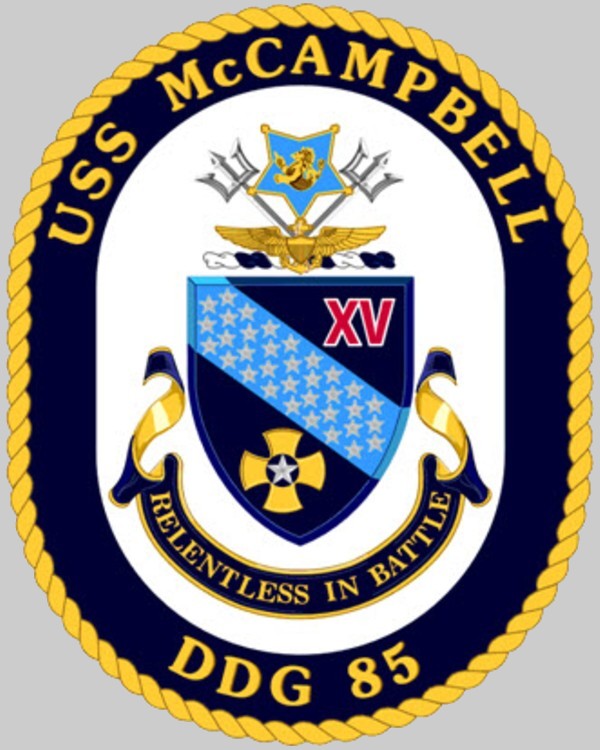 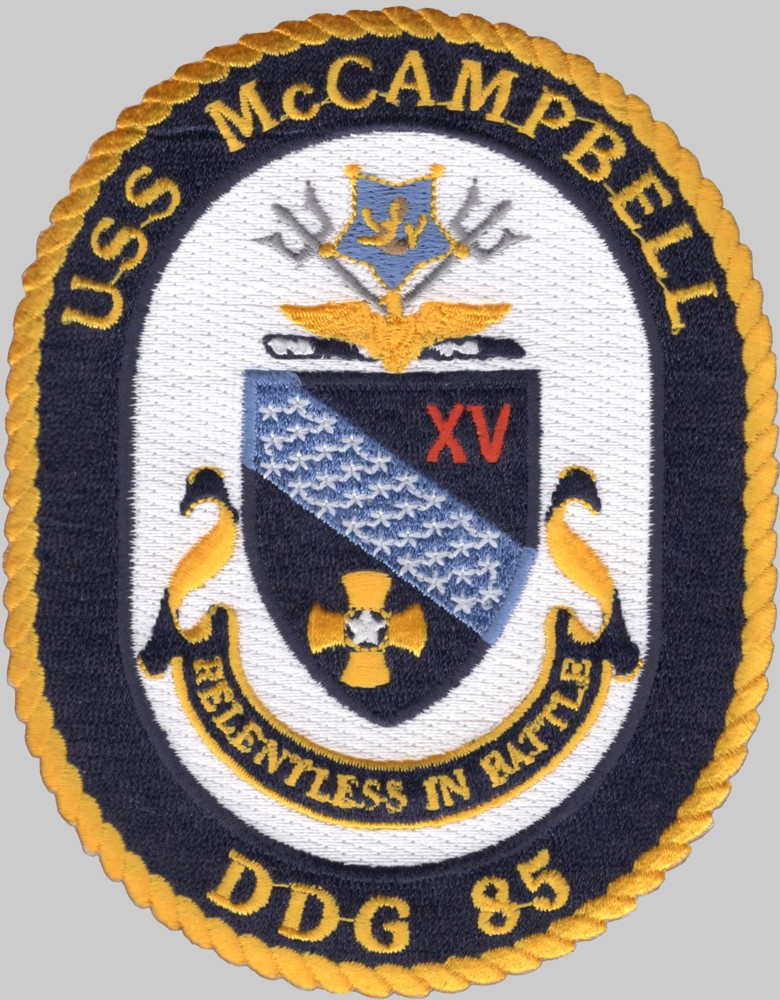 |
||
|
|
seaforces.org
|
USN ships
start page | |
